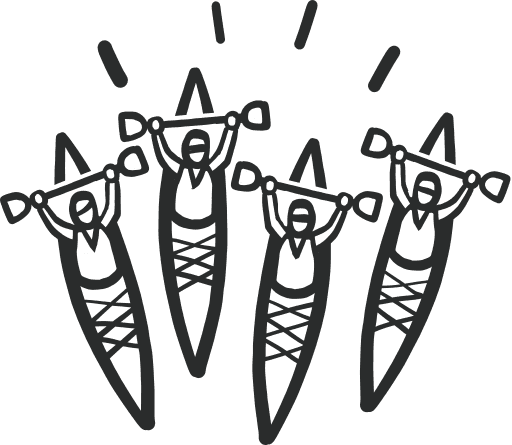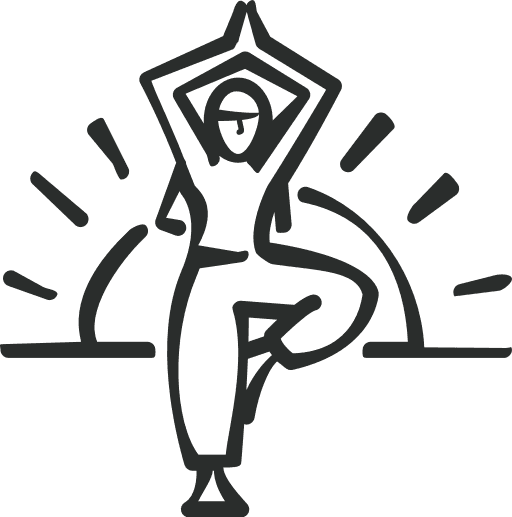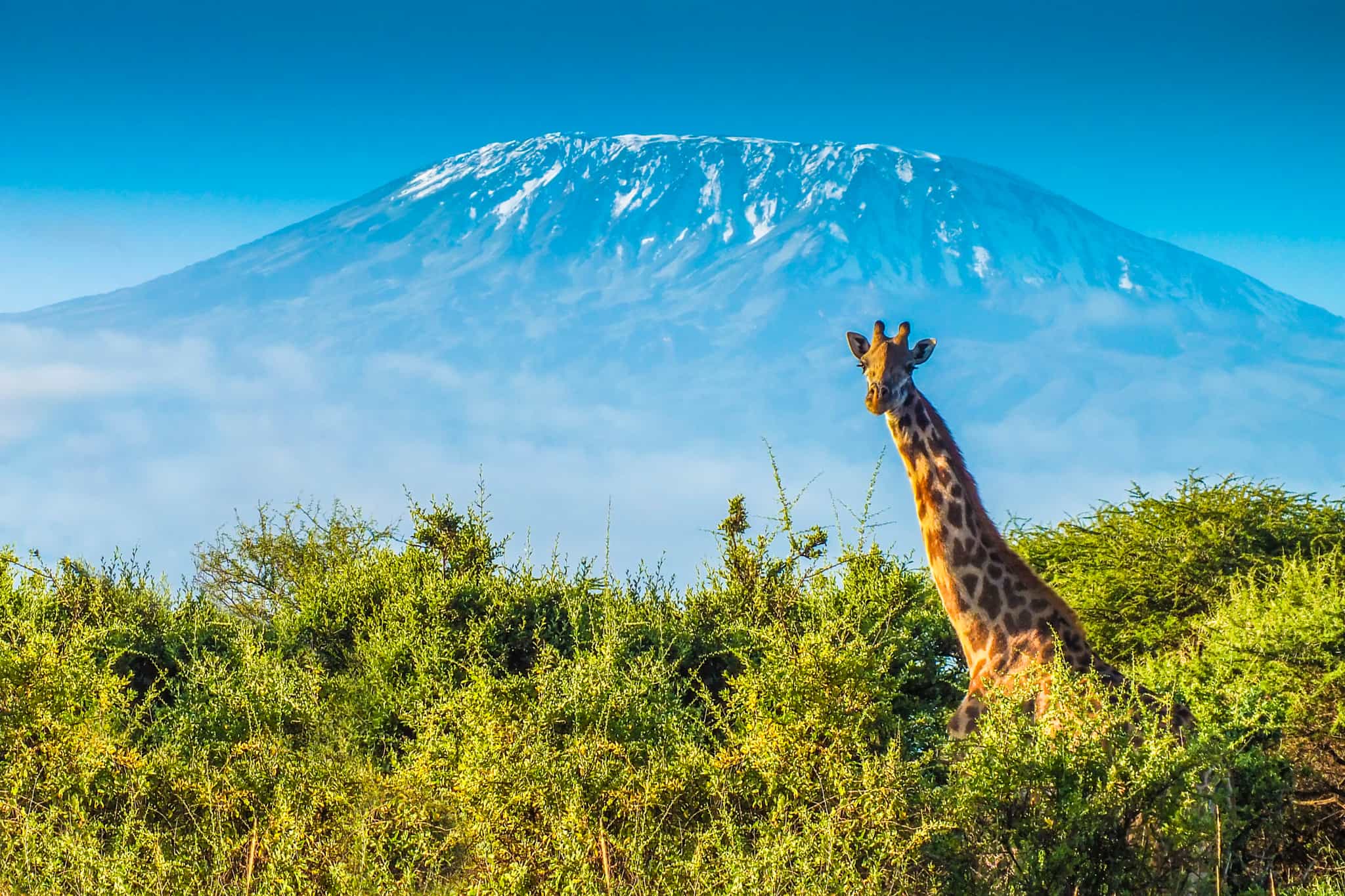
Climb Kilimanjaro (5895m) via The Machame Route & Go On Safari
Summit Africa's highest mountain via the scenic Machame route and then recuperate on safari
What's Included?
Activities & Certified Guides
All itinerary activities with local, certified trekking and safari guidesHotel & Camping
6 nights camping, 3 nights in a hotel and 2 nights in a lodgeMeals
All your breakfasts, lunches and dinners are includedTransfers
To and from the airport and everything in betweenPermits
All permits, taxes and licensesSmall Like-minded Groups
Solo-friendly by design, join our small n’ sociable groups of up to 12 like-minded, active and outdoorsy people…
…
What's it like?















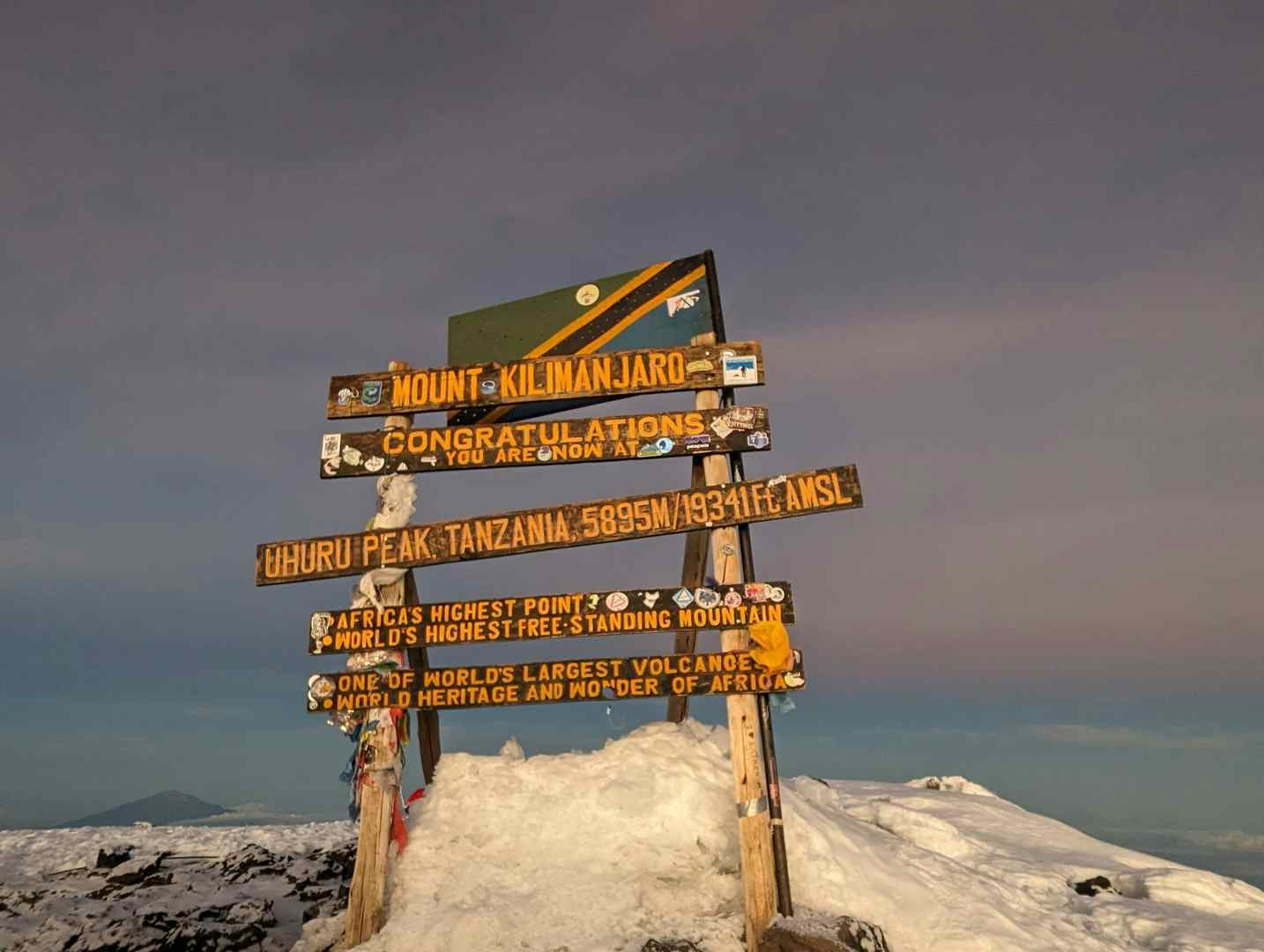
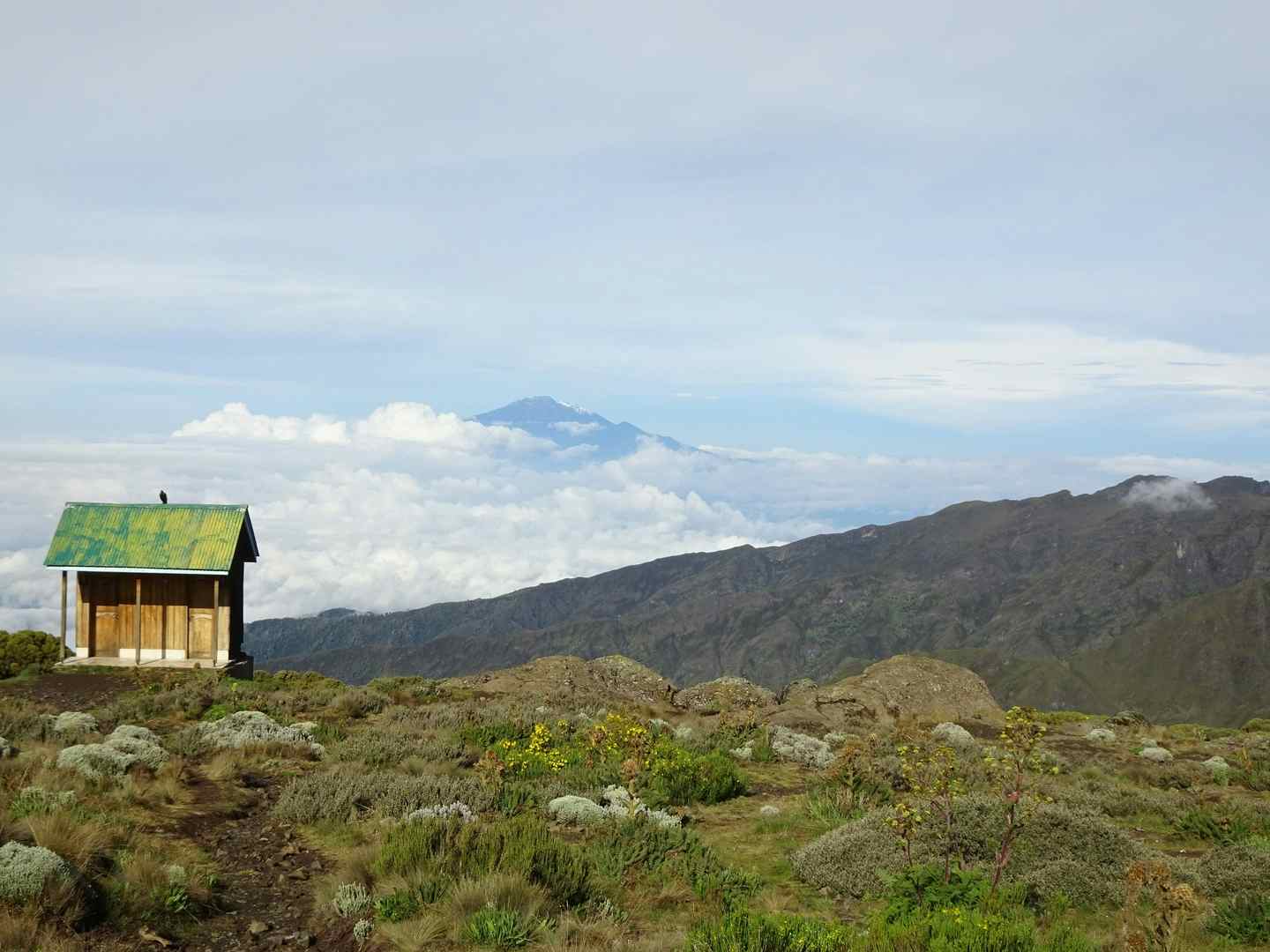
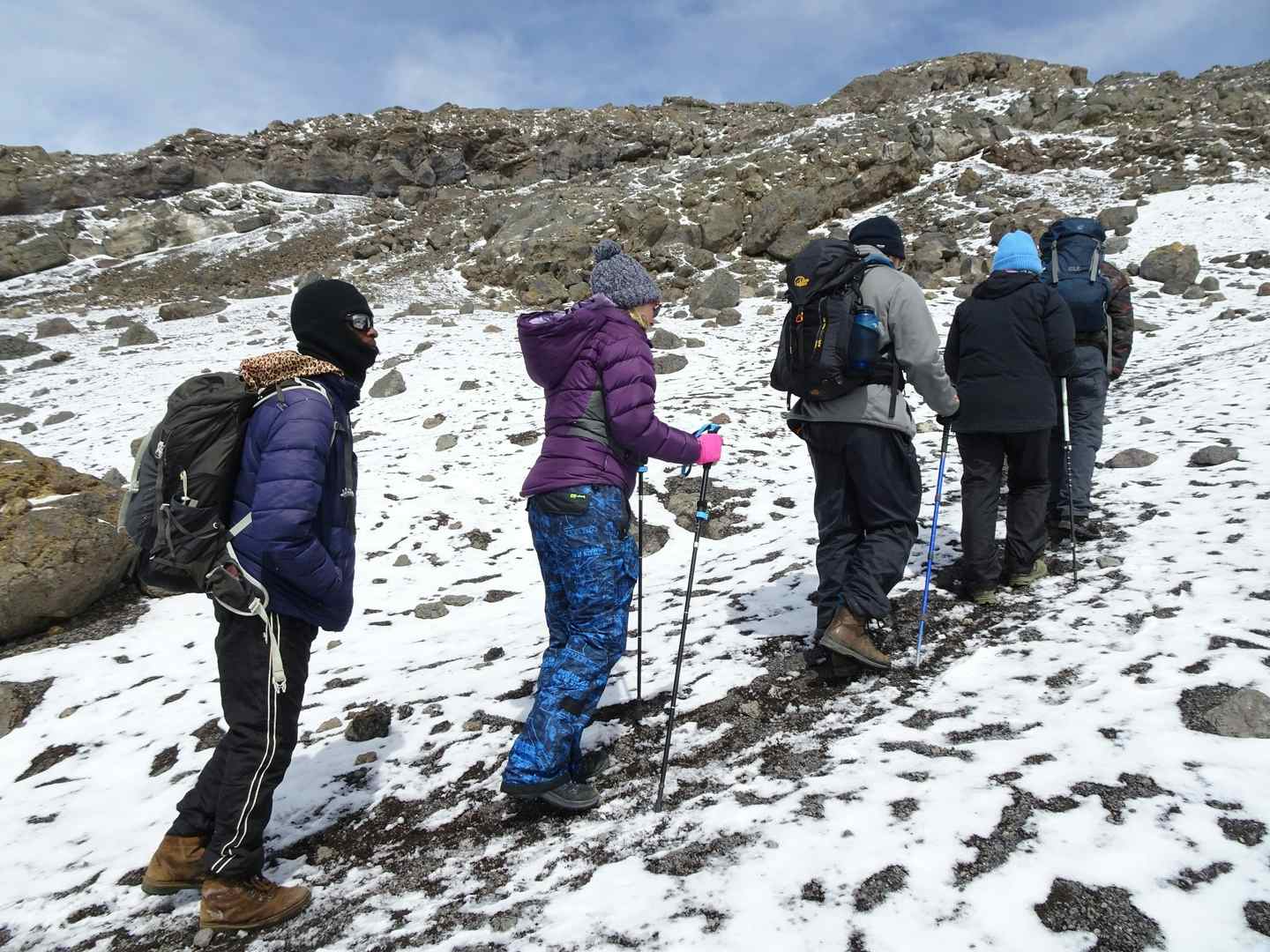
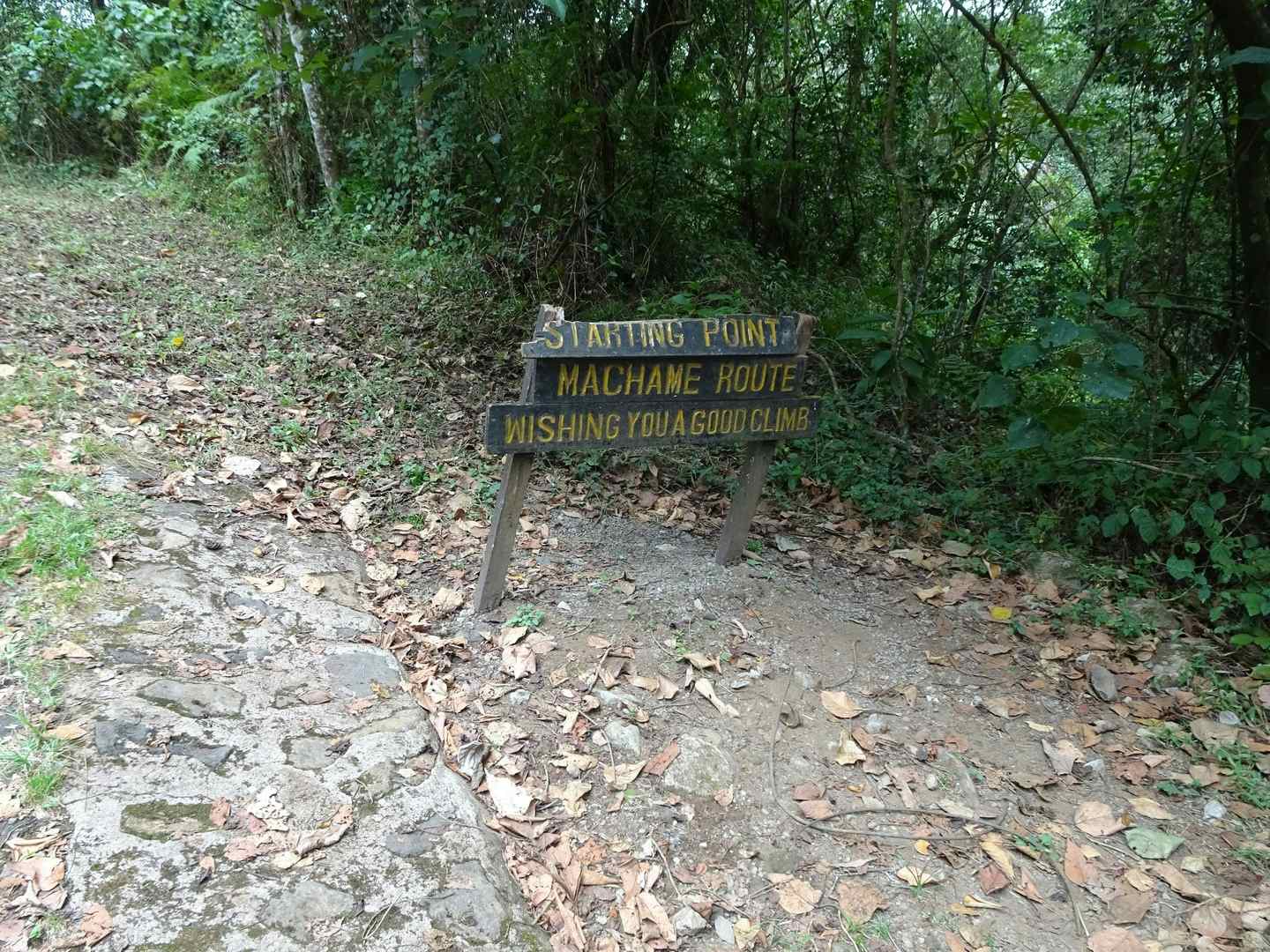
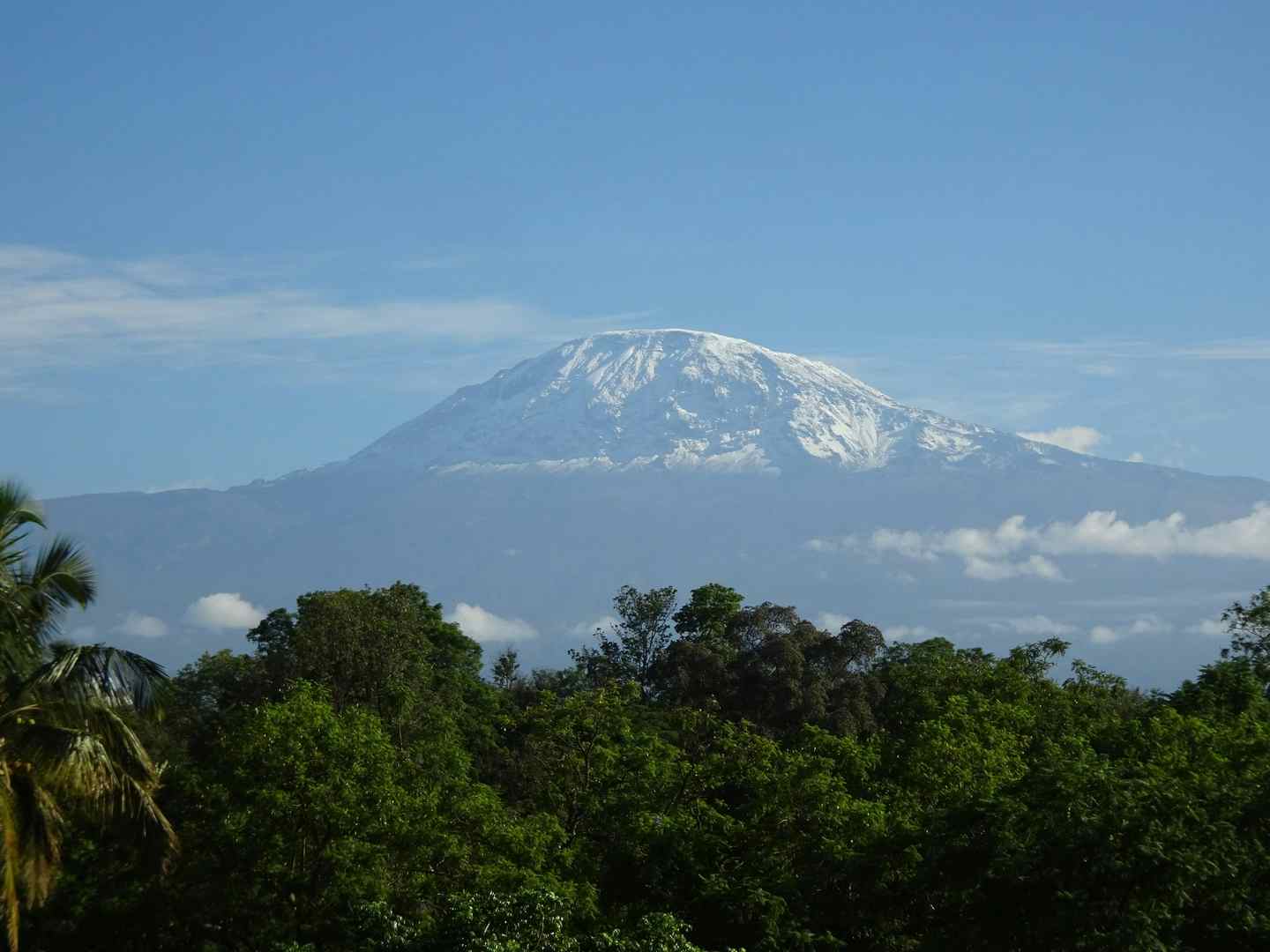
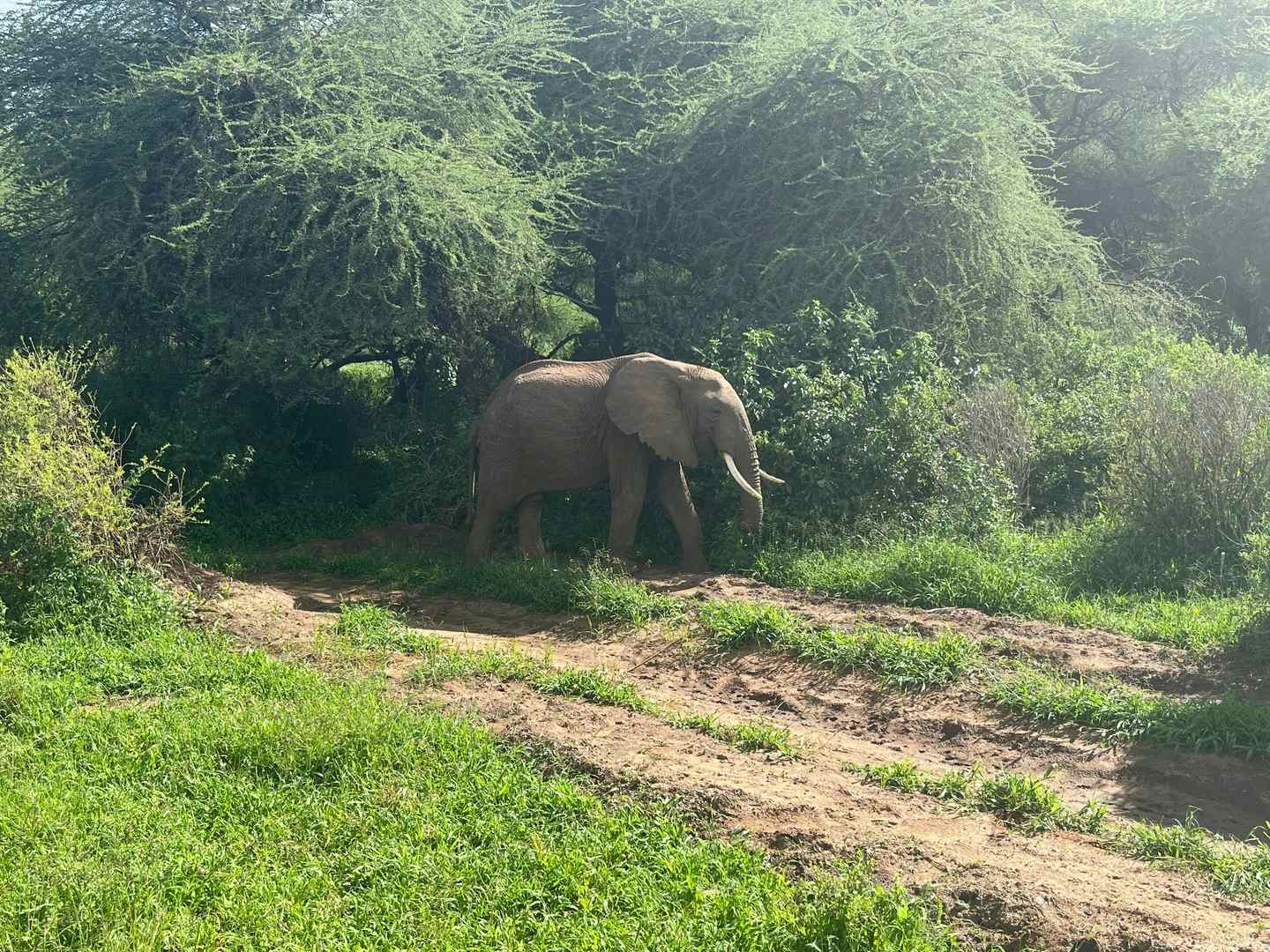
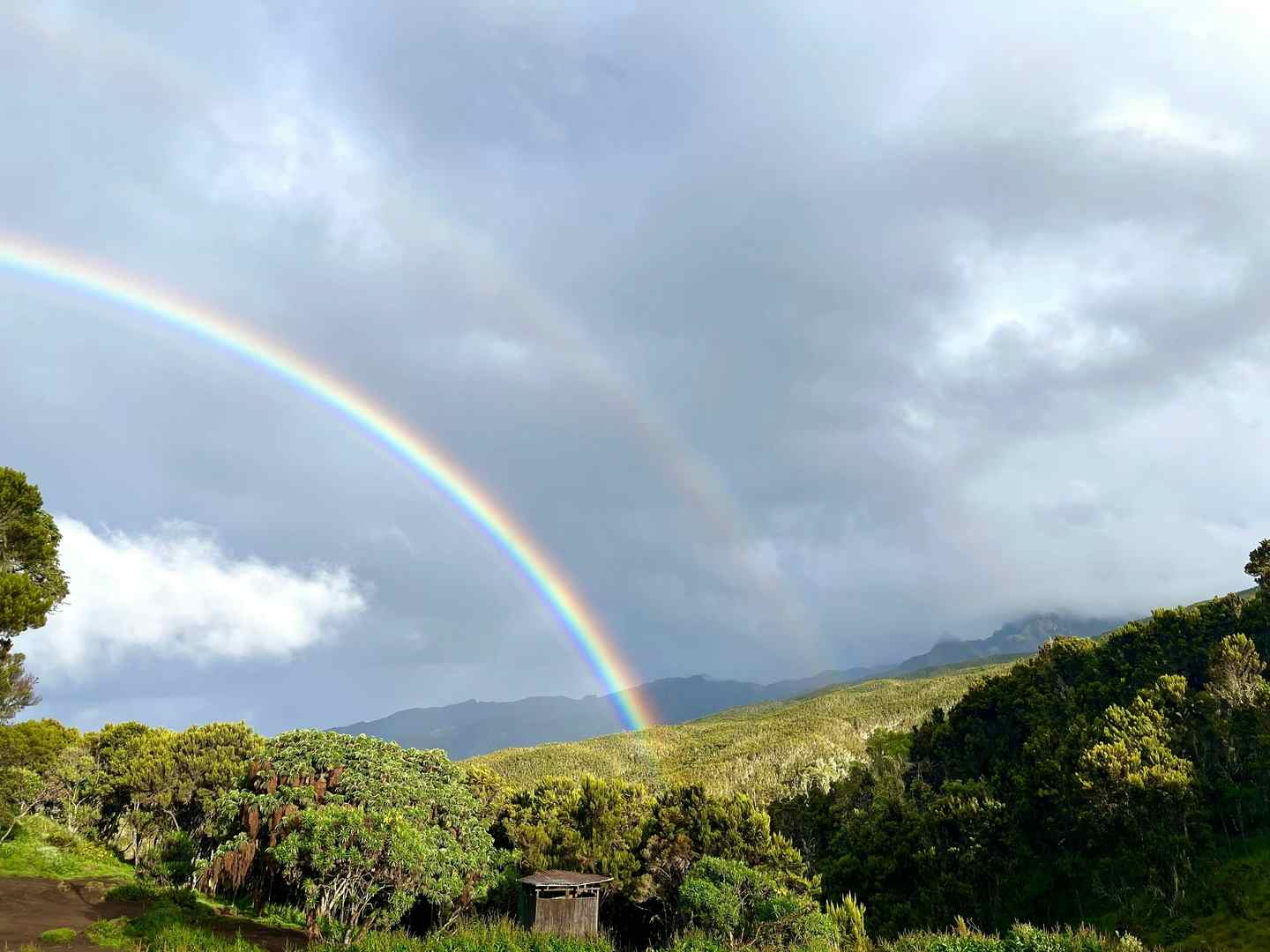
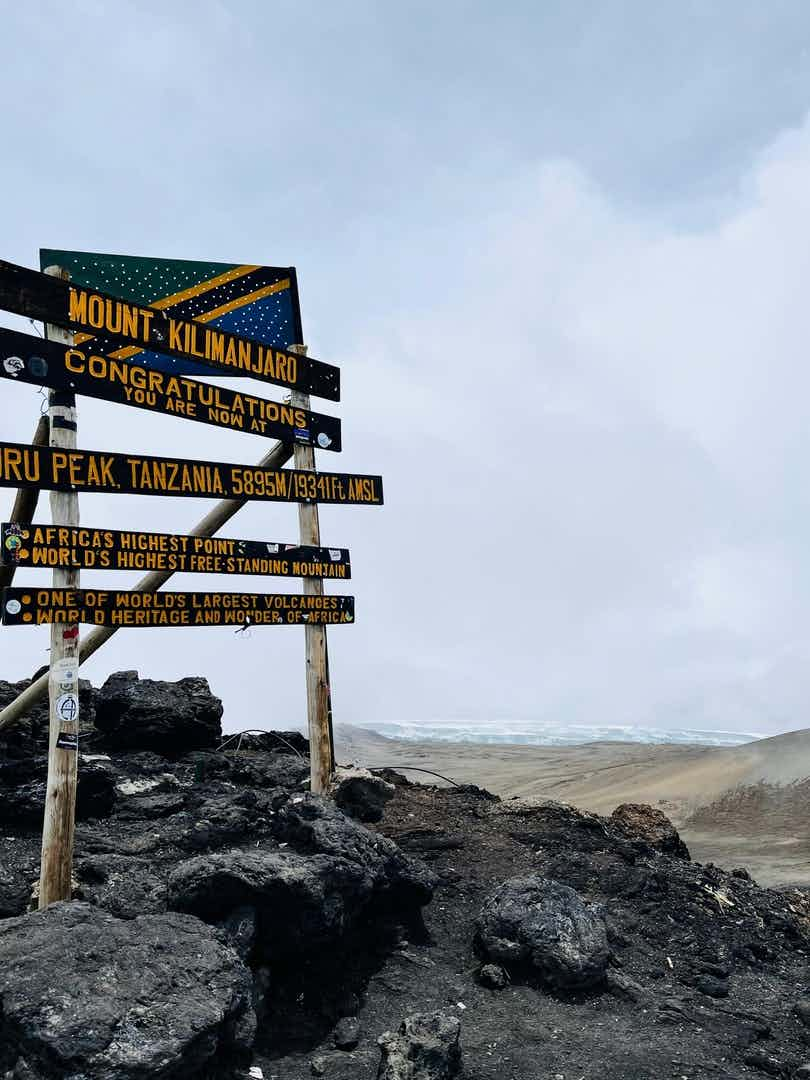
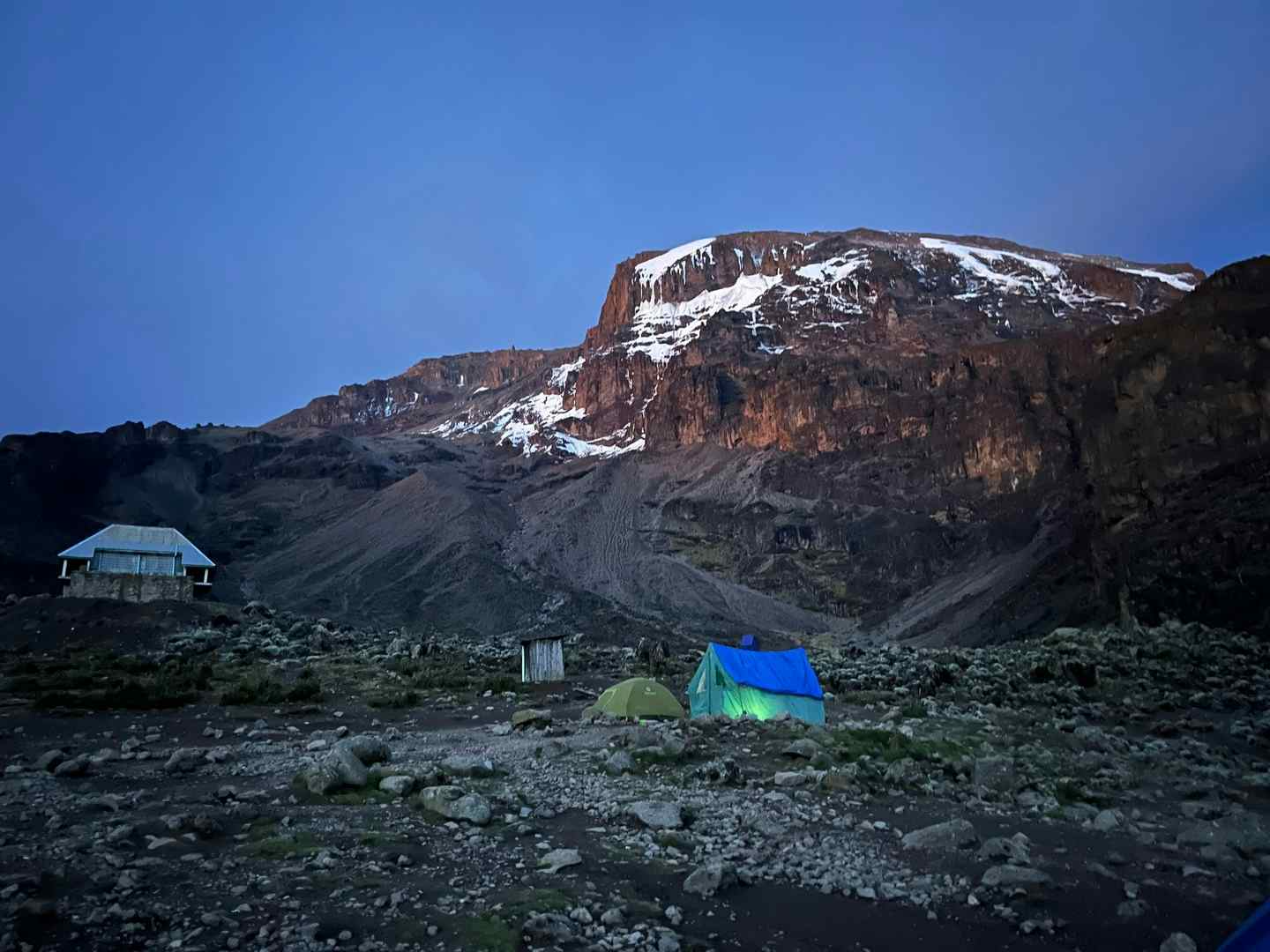
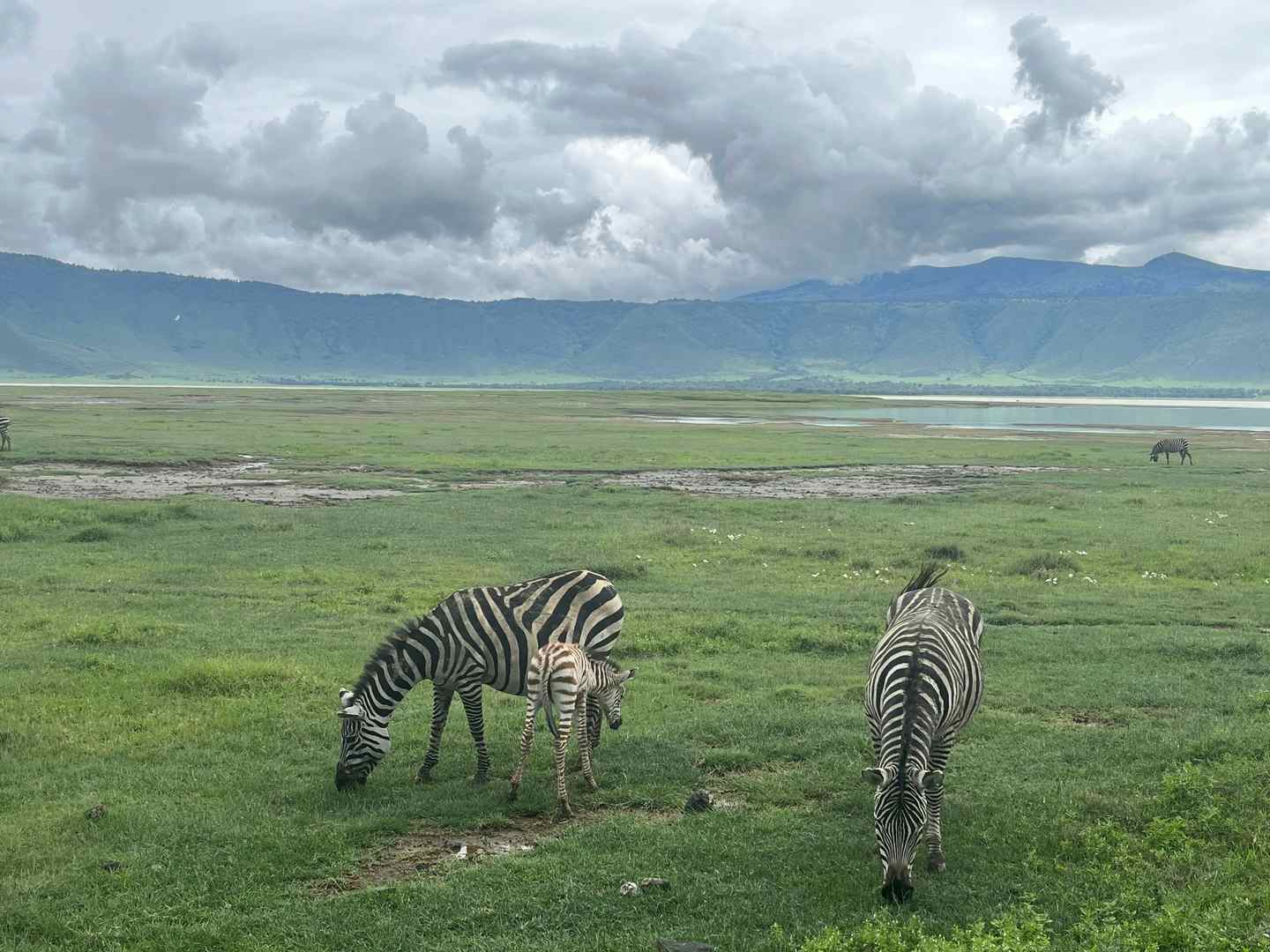
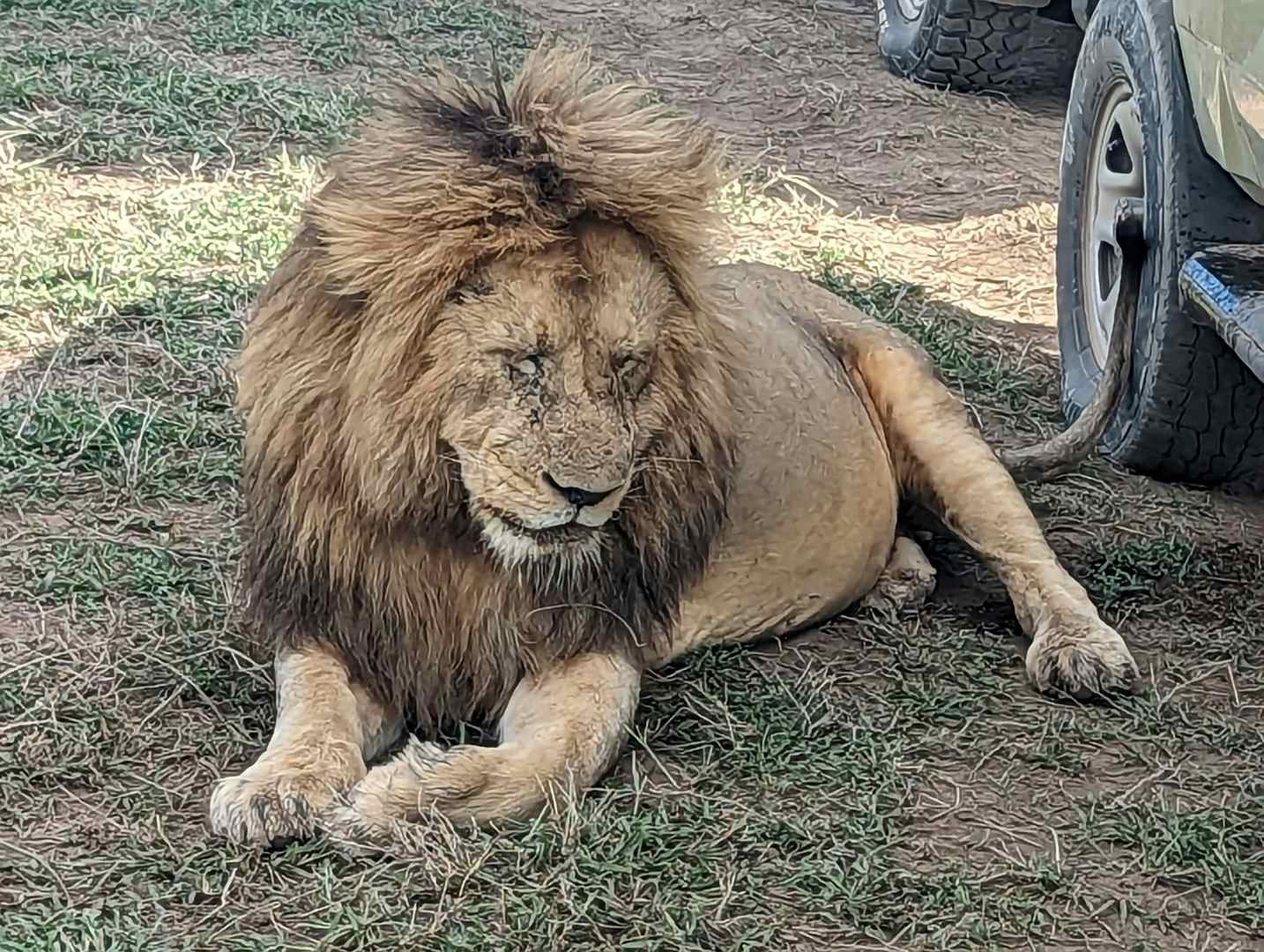
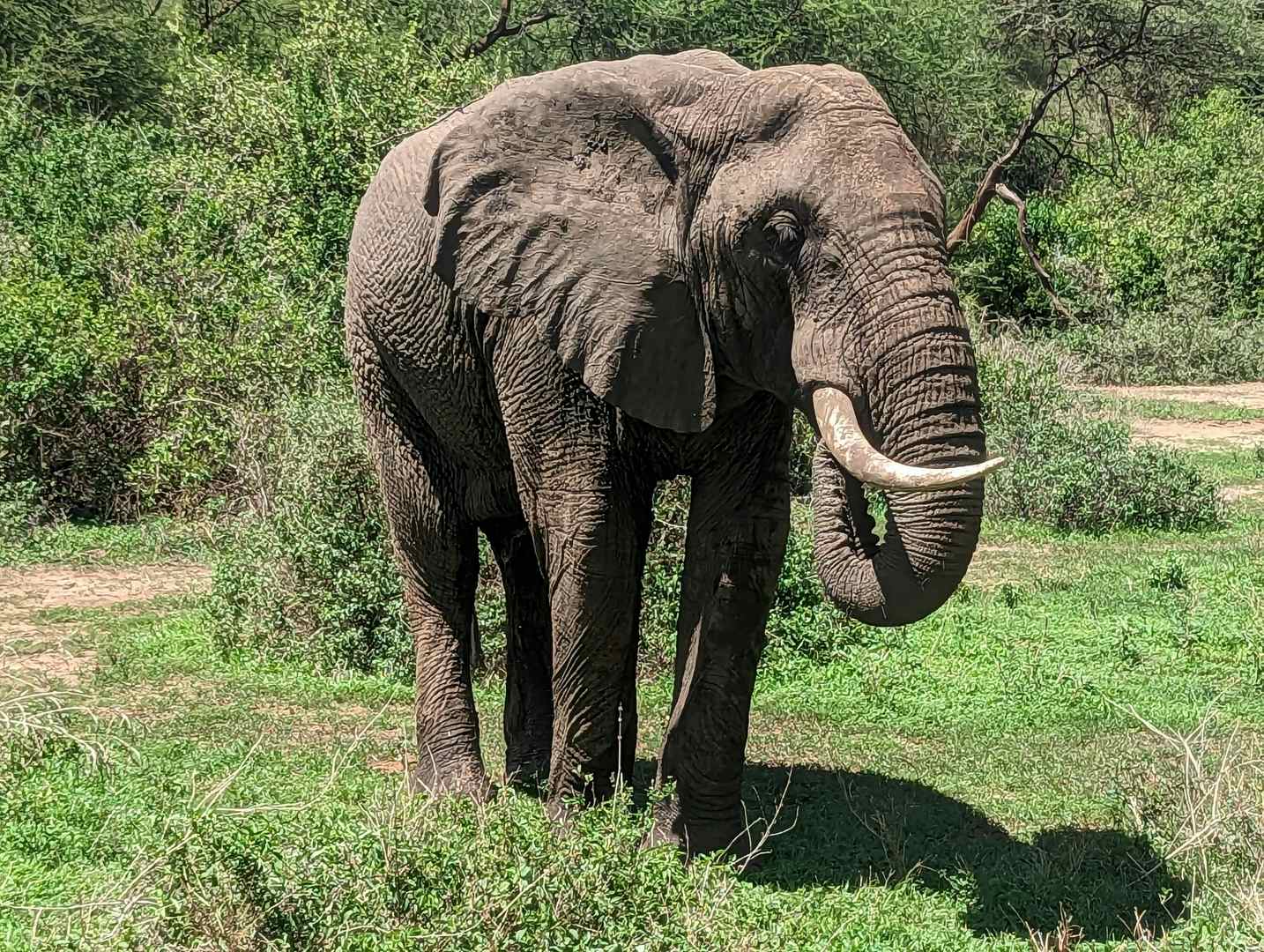
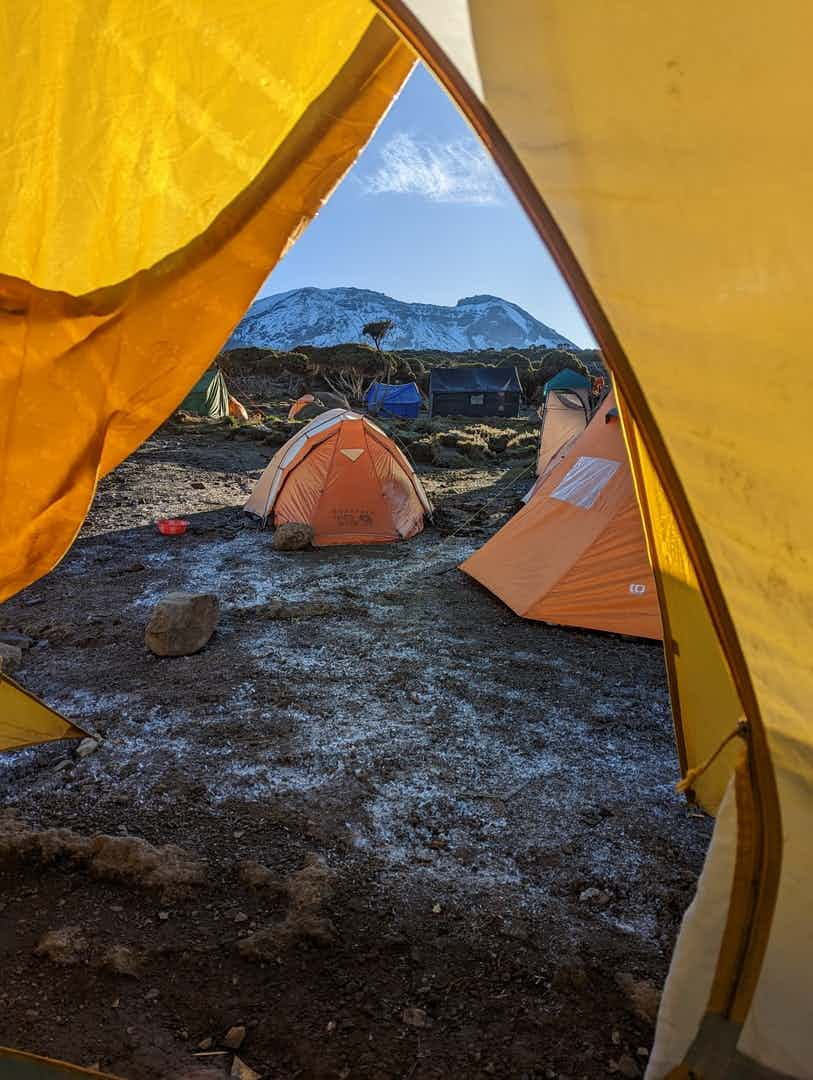
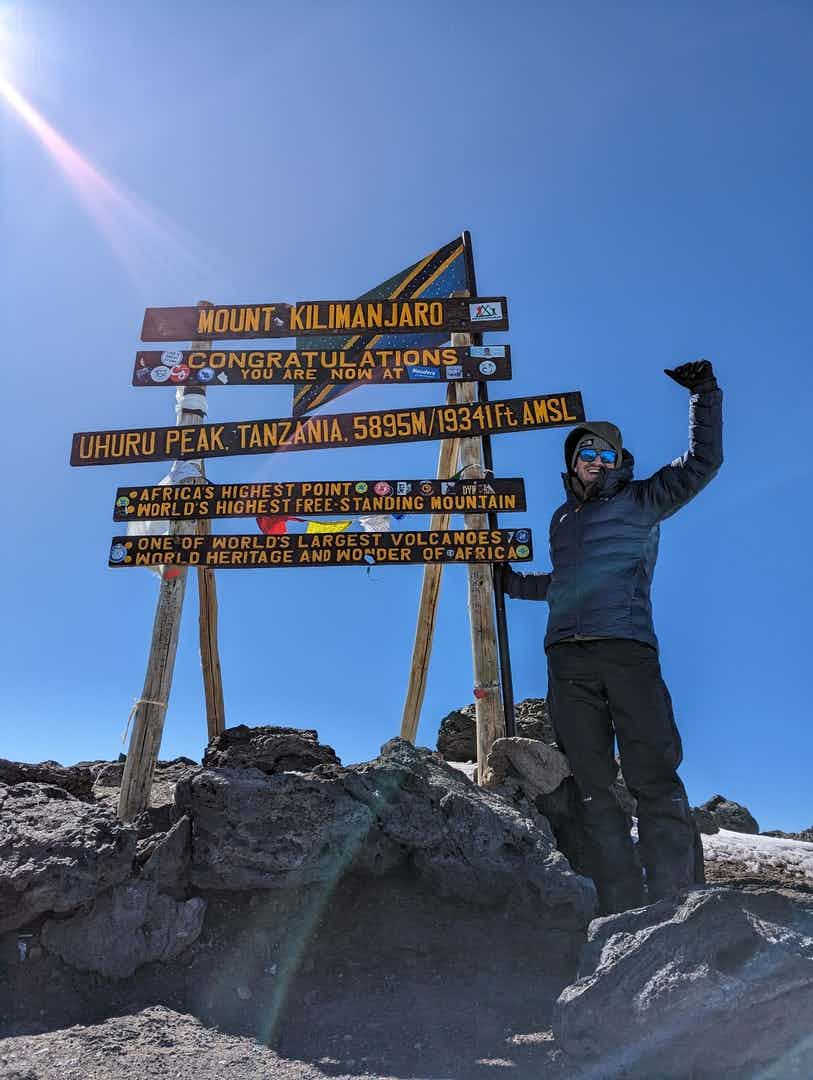
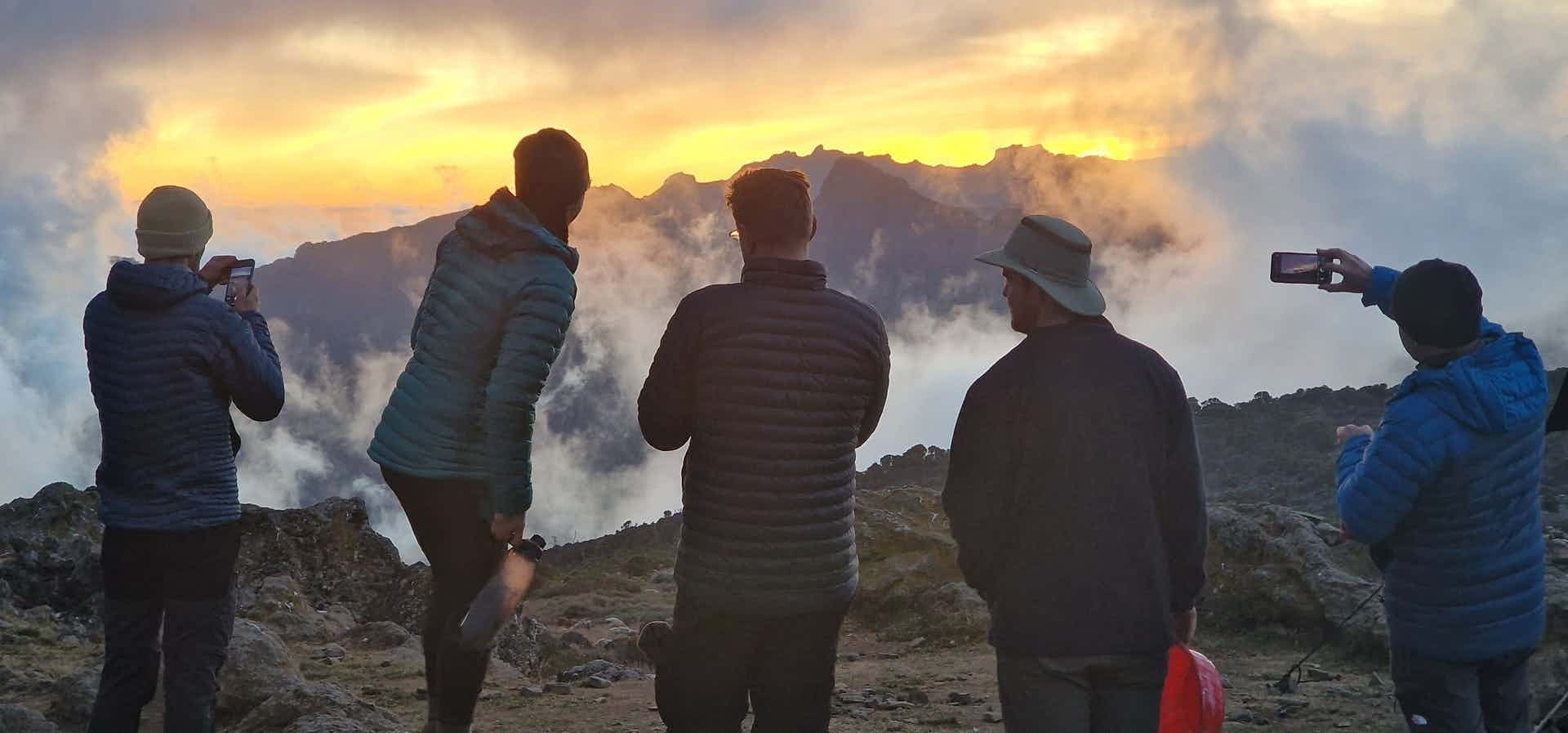
Tackle a multi-day trek to stand on the highest point of an entire continent: the stuff an adventurer’s dreams are made of
Hike the popular Machame Route to the summit, traversing varied climactic zones against a backdrop of endless vistas
Embark on a three-day game safari to see elephants, rhinos, giraffes, lions and more in their raw and natural habitat
Key Information
Day 1
Welcome to Tanzania!
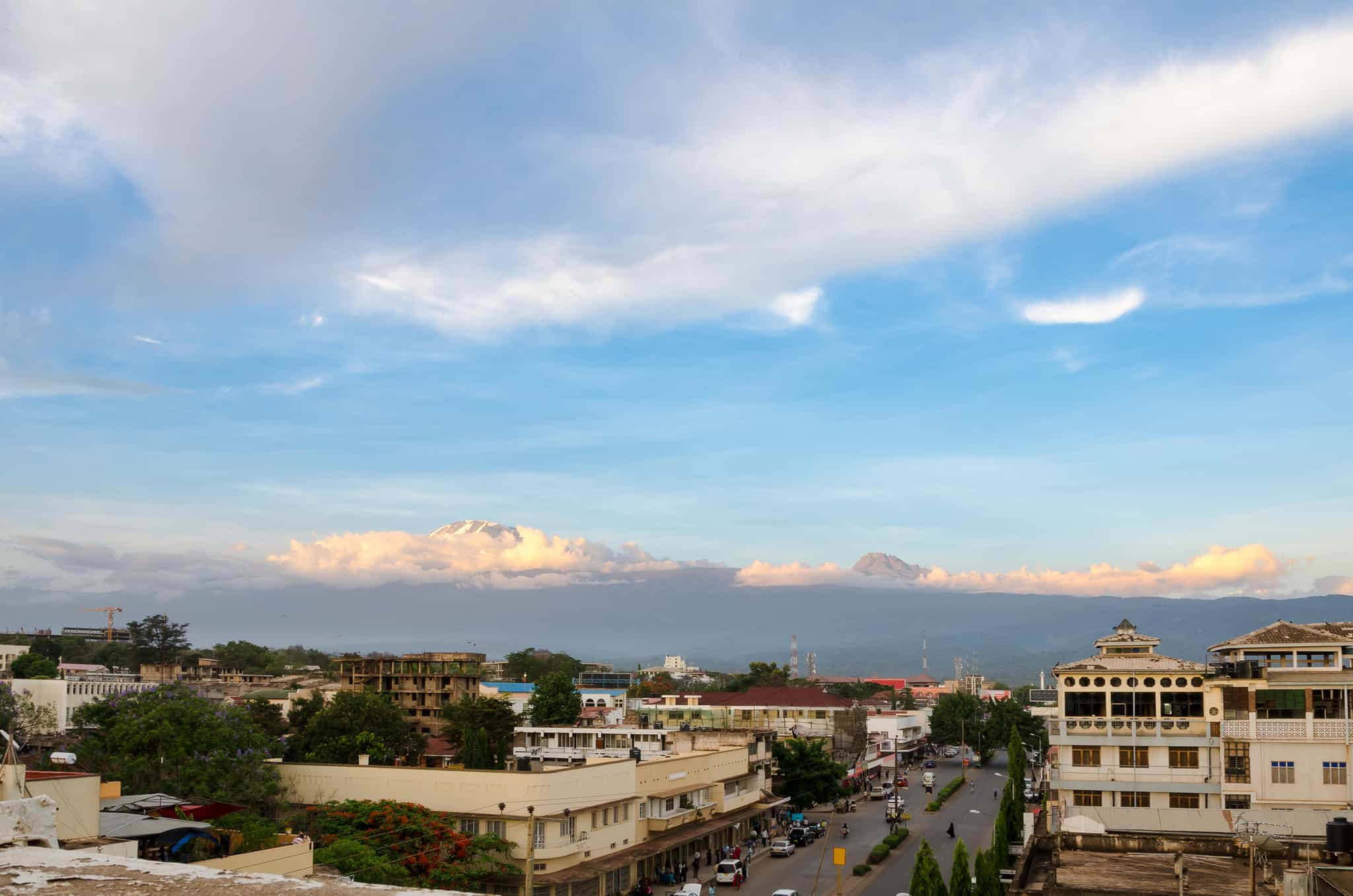
Fly into Kilimanjaro International Airport and transfer to your accommodation at the Weru Weru River Lodge, where your host will be waiting for you. After meeting your guide for a detailed briefing and equipment check, you can get to know your fellow travellers and then retire for an early night, ready for tomorrow’s adventure.
Day 2
Machame Gate (1800m) to Machame Camp (3050m)
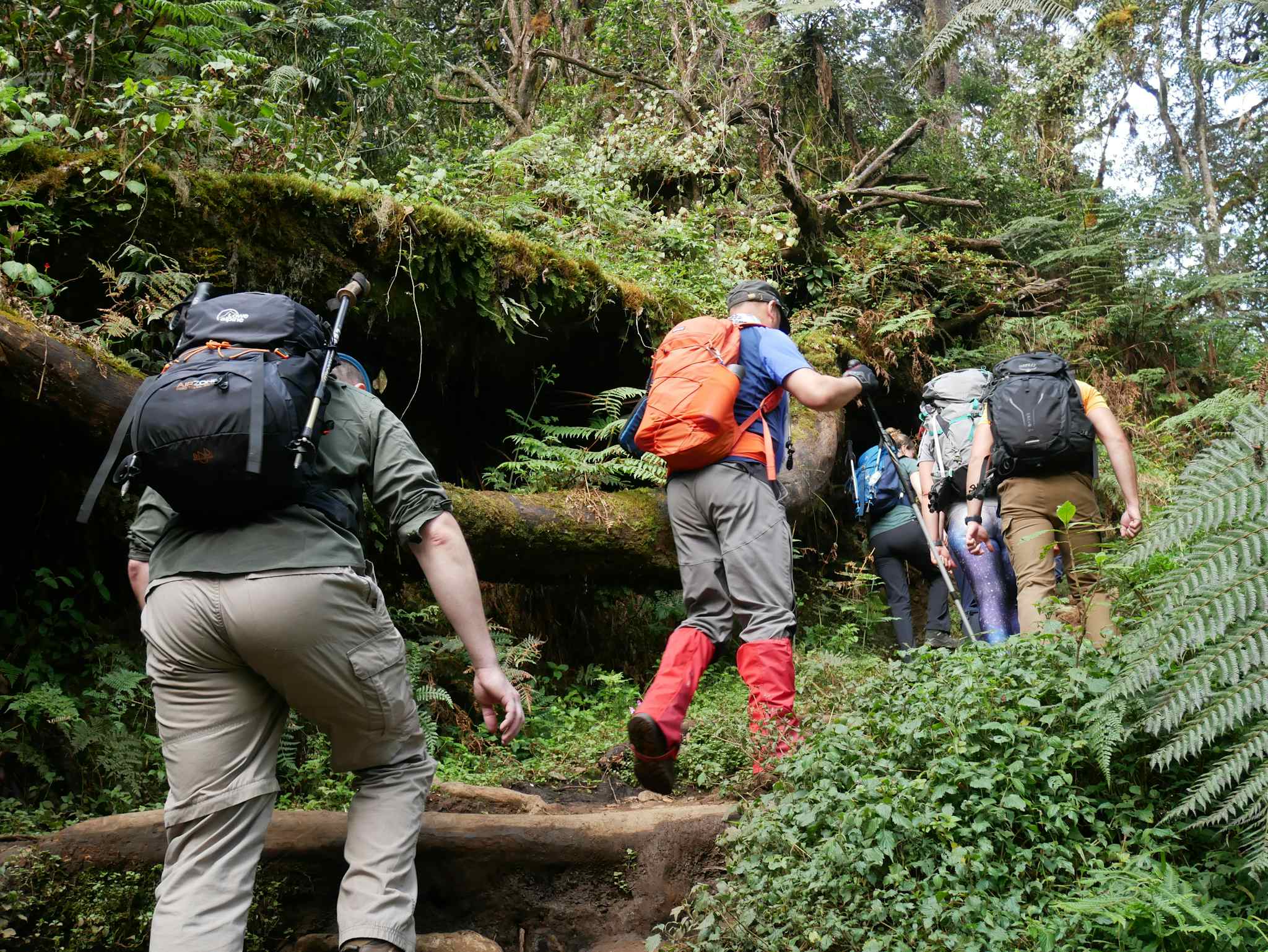
Hiking
Take a 45-minute drive through the mountain village of Machame to the Kilimanjaro National Park Gate where your ascent will begin. Hike through the lush rainforest and along winding trails and learn about the local wildlife, perhaps even spotting a blue monkey or a tree hyrax. Have your gaiters and trekking poles at the ready, as the trail can be muddy and slippery at the lower elevations. Reach your campsite, settle in and enjoy your first night on the trek.
Day 3
Machame Camp (3050m) to Shira Camp (3800m)
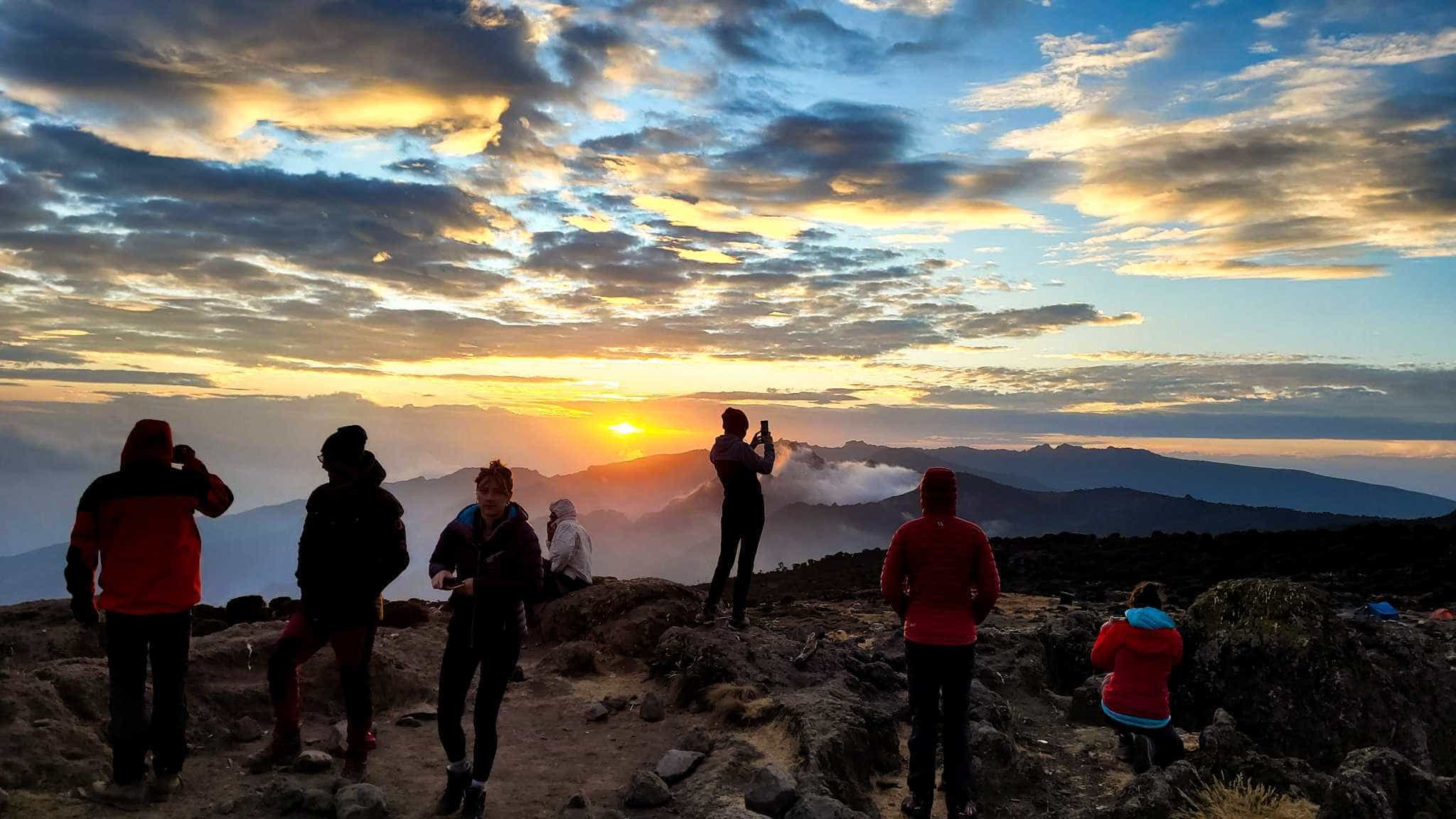
Hiking
Leave the rainforest behind you and take the ascending path through the valley and along a steep rocky ridge. From here, the route turns west into a river gorge which you will follow all the way up to Shira Camp. Drop off your daypack in your tent and climb the slope above camp for dramatic views over the surrounding plateau and the alpine landscape that awaits you next.
Day 4
Shira Camp (3800m) to Barranco Camp (3950m), via Lava Tower (4600m)
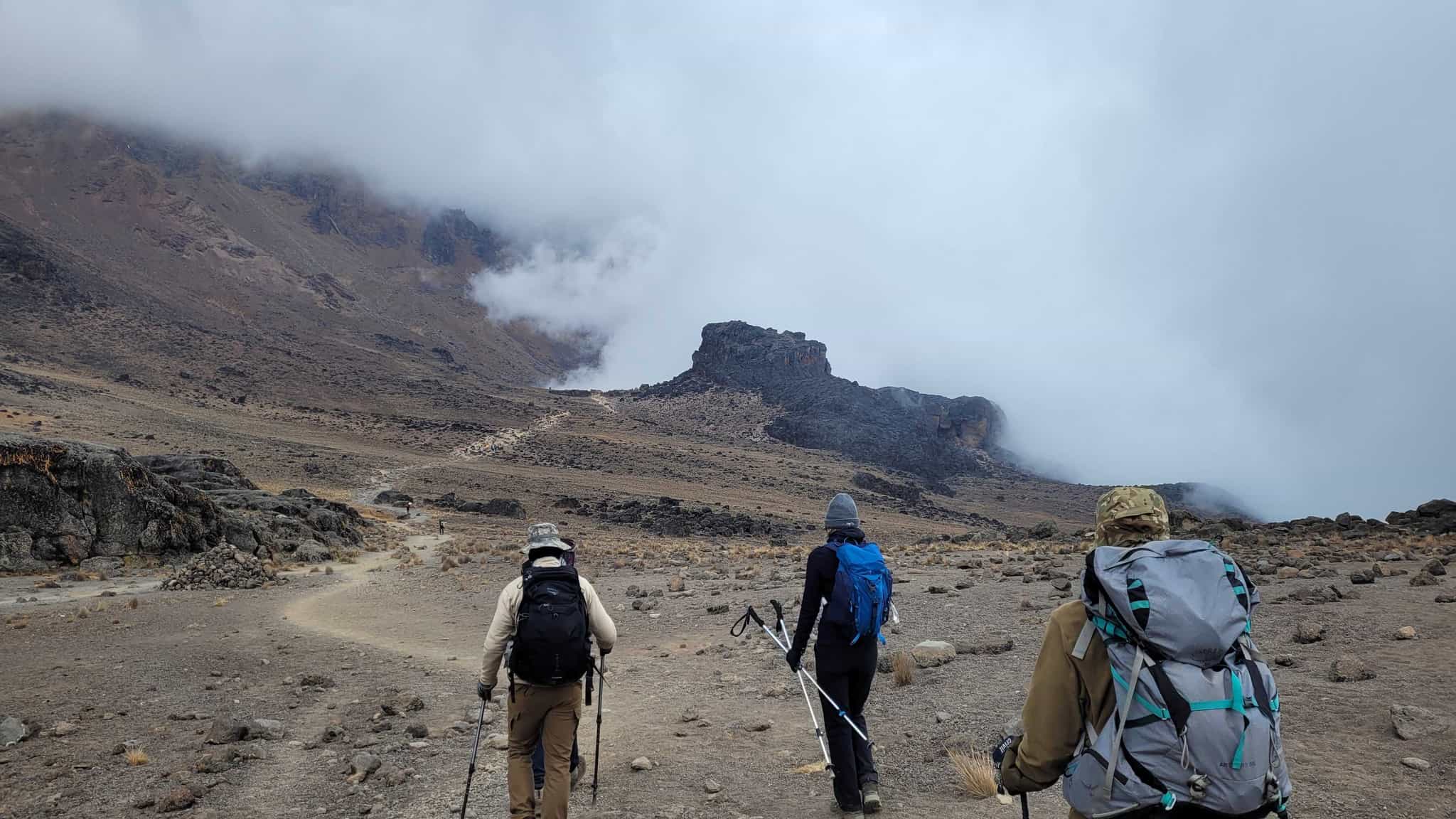
Hiking
Spend the day acclimatising as you continue the route along the alpine desert of the Shira Plateau. Hike east towards Kibo’s glaciated peak, then southeast towards Lava Tower (also known as the Shark's Tooth) at 4600m. You'll stop for lunch here to aid with acclimatisation before continuing your trek through moorland dotted with Giant Senecio trees, descending slightly to your overnight camp at Barranco where you'll have a hearty dinner and a good night’s rest.
Day 5
Barranco Camp (3950m) to Karanga Camp (4000m), via the Barranco Wall
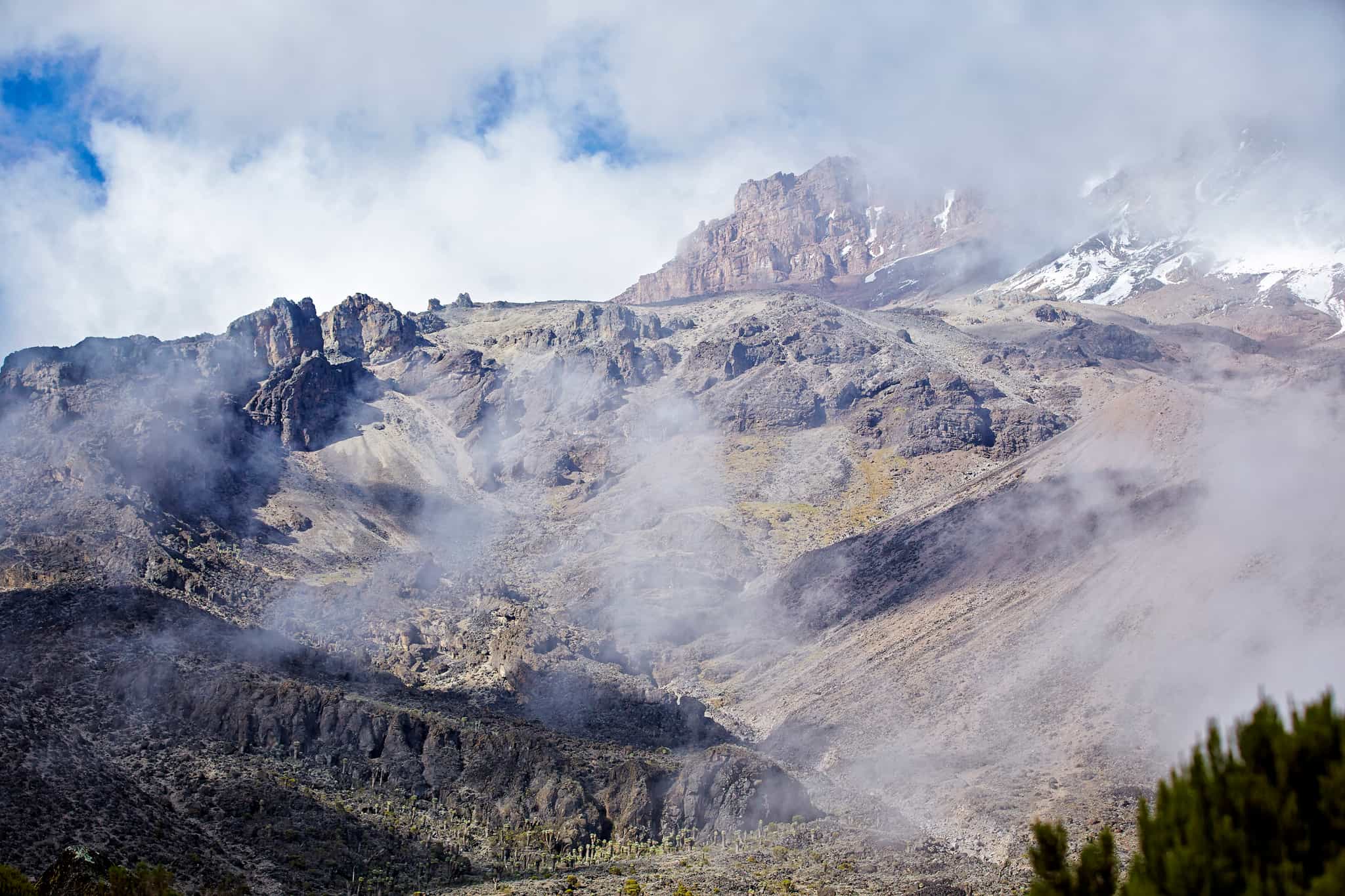
Hiking
Today is another important acclimatisation and contingency day to boost your chances of summit success. After breakfast, follow a steep ridge to the base of the Barranco Wall. This is a challenge both physically and mentally, as the wall appears higher than its 257m. Slow and deliberate steps are the trick to an easier scramble to the top (most hikers find it easier than anticipated, so fear not!). At the top, look out over the Heim Glacier and then wind up and down the Karanga Valley to reach your base for the night.
Day 6
Karanga Camp (4000m) to Barafu Camp (4650m)
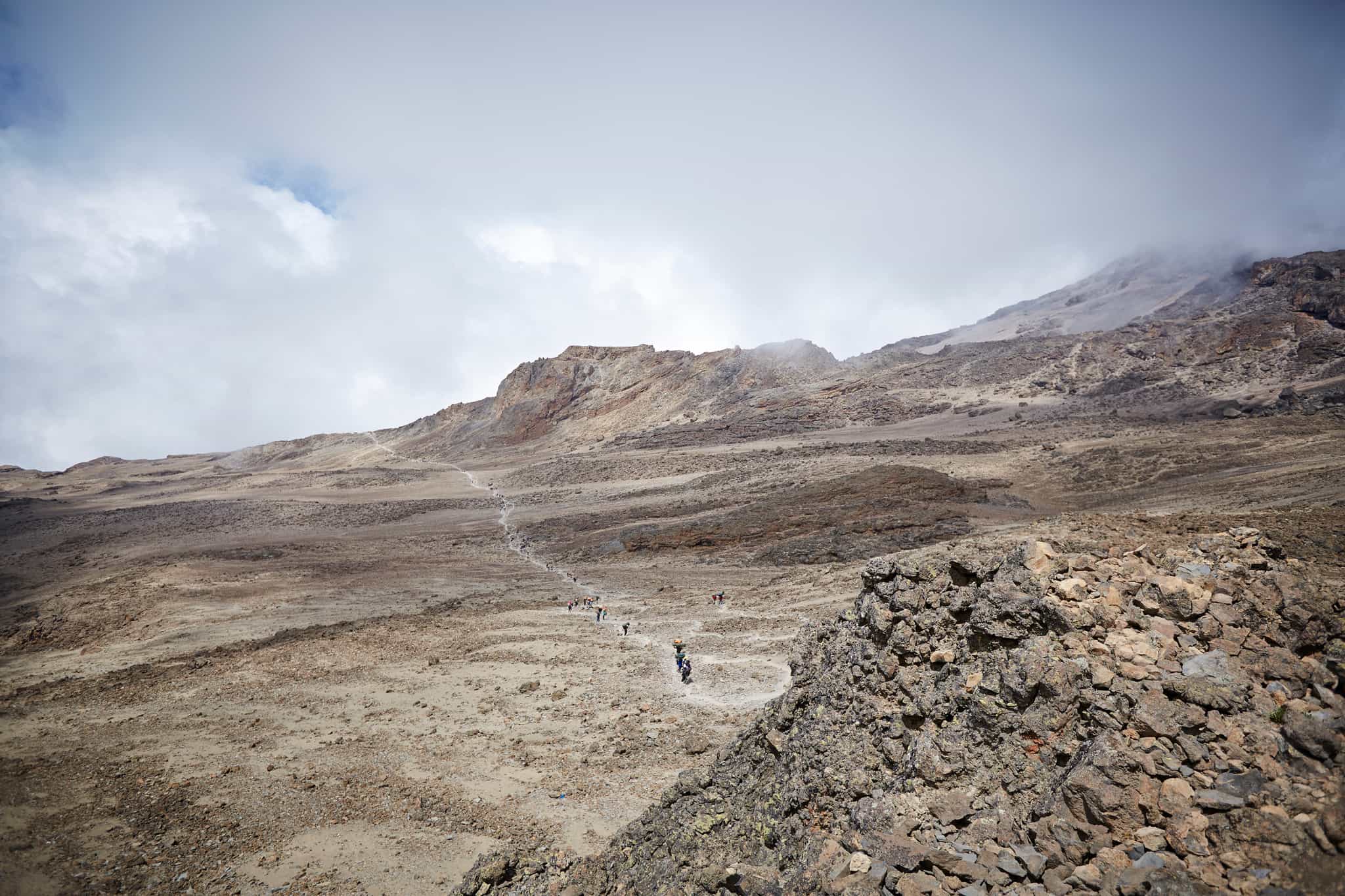
Hiking
Follow a short but steep trail through the ever-thinning air to Barafu Camp – your last stop before summit day. This camp is located on a rocky and exposed ridge, 'barafu' means 'ice' in Swahili. Have an early dinner, get yourself ready for the summit push in the morning and get some sleep. Nearly there!
Day 7
Summit day
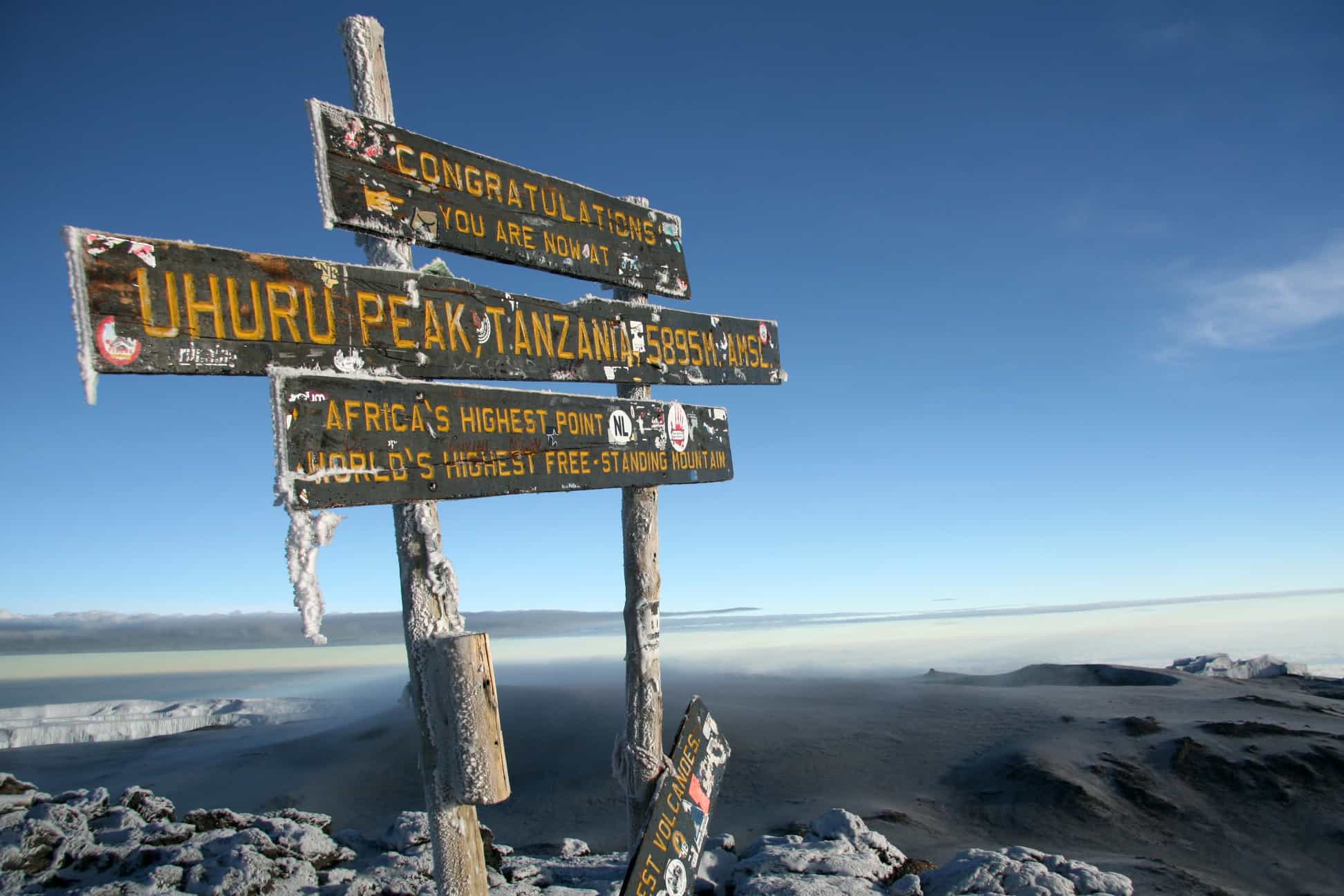
Hiking
Set off in the dead of night to begin the most physically and mentally challenging part of the trek. With head torches on, ascend slowly through heavy scree towards Stella Point (5756m) on the crater rim, followed by a further ascent to Uhuru Peak (5895m) – the highest peak on Mount Kilimanjaro, the highest point in the whole of Africa and possibly your greatest trekking accomplishment. After a rest and some photographs, begin the long descent over dusty terrain forged by volcanic ash, eventually dropping back down into moorland as you reach Millenium Camp (3800m) for a well-deserved rest.
Day 8
Descend from Millenium Camp (3800m) to Mweka Gate
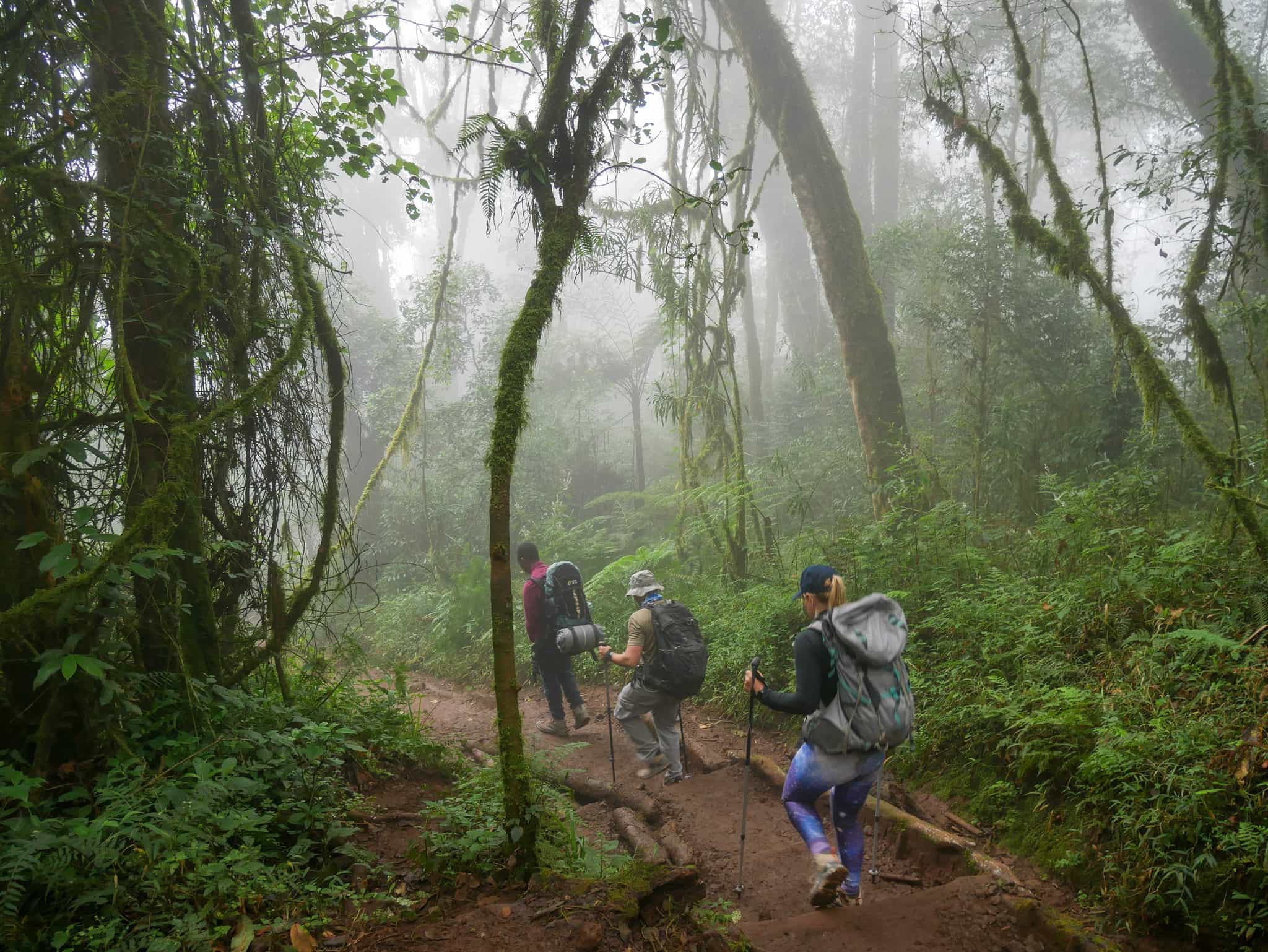
Hiking
Continue your descent to the Mweka Park Gate through lush forest – eyes peeled for fluffy black and white colobus monkeys as you reach the lower elevations. The weather here will be significantly warmer making the terrain wet and muddy so have your gaiters and trekking poles handy. When you reach the park gate, you’ll collect your summit certificate before driving back to your hotel in Moshi where you can enjoy a hot shower and celebrate the end of the first part of your adventure. Following your trek, there will be a tipping ceremony for the crew who helped you to scale the mountain – please see the FAQs below for more information on this important local custom.
Day 9
Lake Manyara National Park
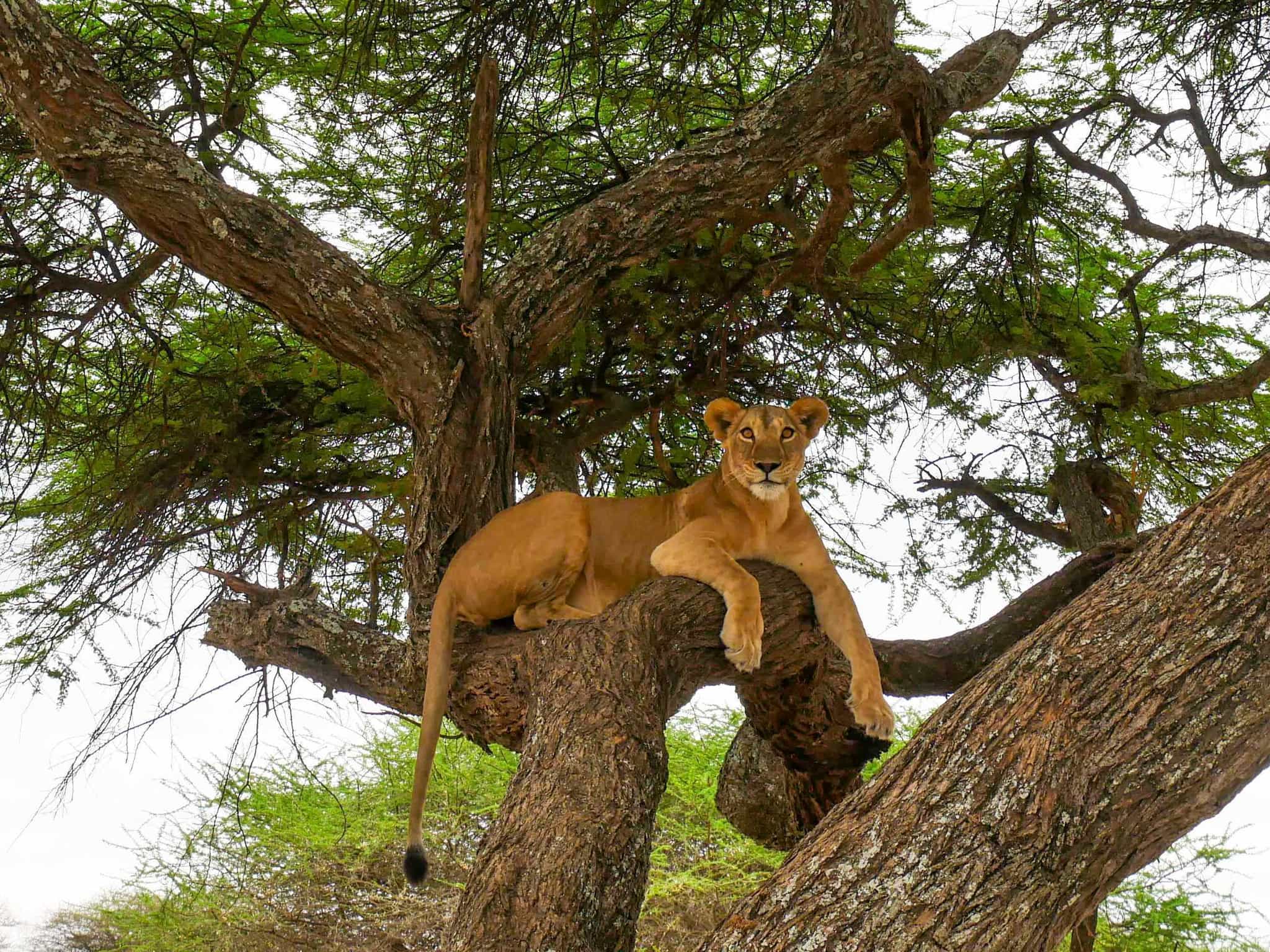
Driving
Wildlife Watching
Travel to the second part of your adventure – visiting three of Tanzania's top wildlife hotspots on a spectacular game safari – beginning with the beautiful Lake Manyara National Park. This impressive reserve is one of Tanzania's most dramatically located wildlife areas, with an enormous soda lake that covers two-thirds of the entire park. It's home to a wide variety of animals – including tree-climbing lions, one of Africa’s largest concentrations of elephants and at certain times of year, large flocks of flamingos. After a mesmerizing day, head to your countryside lodge where you’ll enjoy dinner and a good night's sleep.
Day 10
The spectacular Ngorongoro Crater
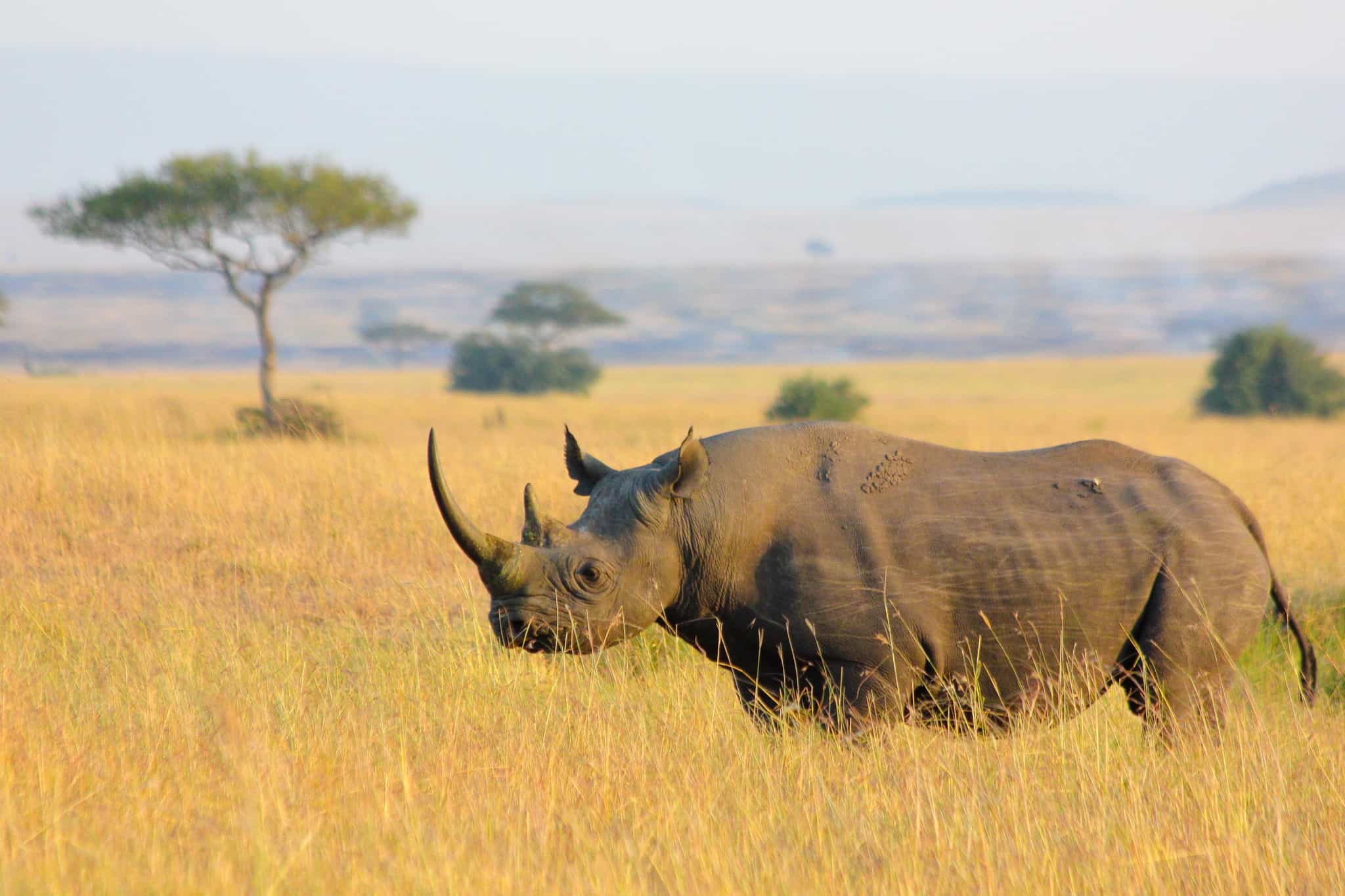
Wildlife Watching
Well rested after a comfy night and hearty breakfast at your lodge, you'll head out early to drive up and over the rim of the Ngorongoro Crater. Descend 600m to the crater floor, into one of the most densely populated wildlife areas in Africa. A UNESCO World Heritage Site, the conservation area is home to approximately 25,000 large mammals, including some of Tanzania's last remaining black rhino. Supported by year-round water and food, the crater is packed with game animals, including herds of wildebeest, zebras, buffalos, warthogs, hippos and elephants, as well as their predators such as lions, hyenas, jackals and cheetahs. Enjoy lunch in the crater and then make your way back to the hotel in the afternoon, to enjoy another relaxing evening.
Day 11
Tarangire National Park
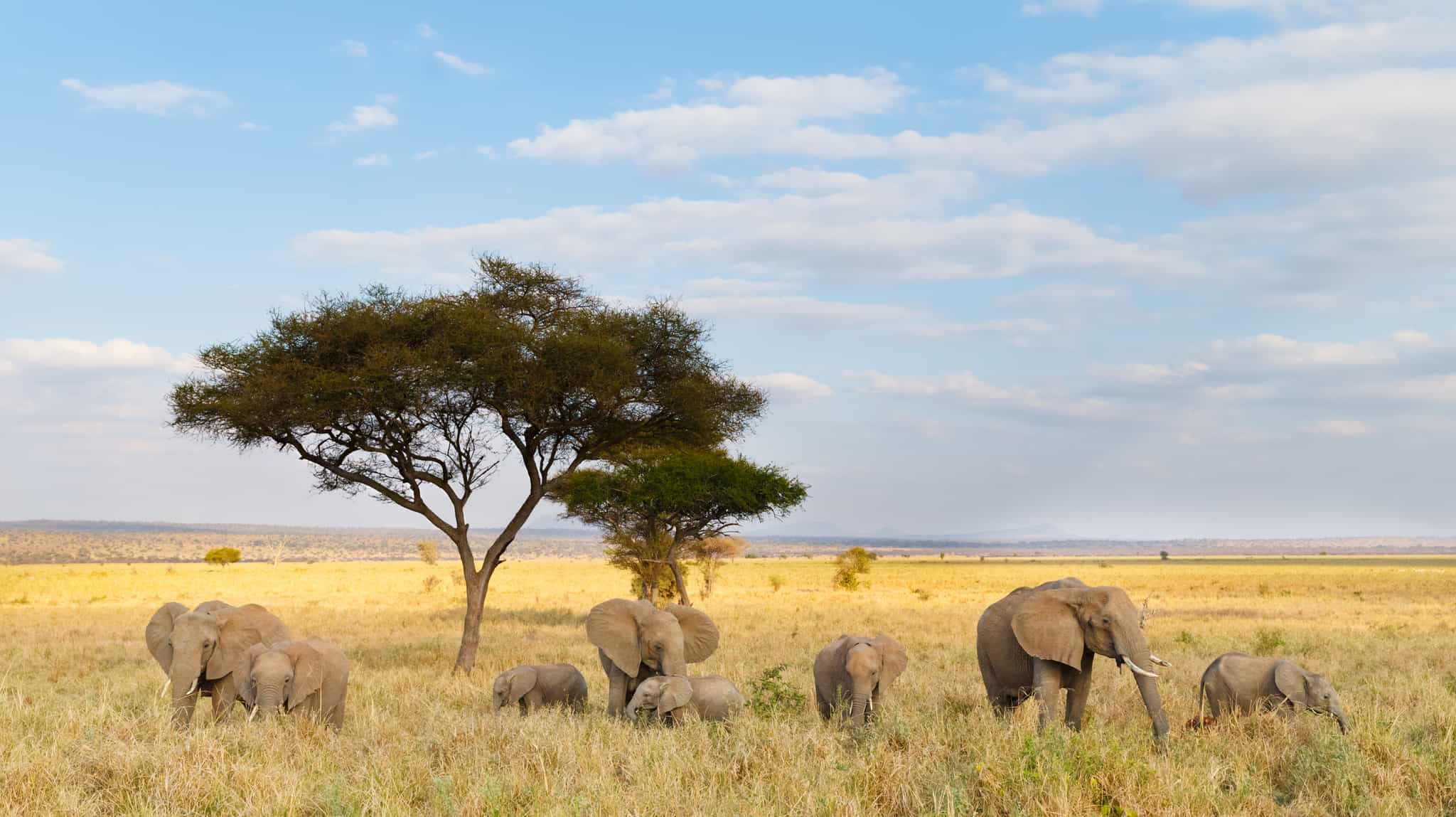
Driving
Wildlife Watching
Travel into the Tarangire National Park for a morning game drive. Covering 2,850 square kilometres, Tarangire is the sixth-largest national park in Tanzania, famous for the diversity of its wildlife, which congregates here thanks to its freshwater sources. Keep your eyes peeled as you’re likely to see large herds of elephants wandering through the long grass, giraffes munching on acacia trees, and if you're lucky, tree-climbing pythons in the massive baobab trees. The Tarangire National Park is also home to three rare species of animals – the Greater Kudu, the Fringed-eared Oryx and a few Ashy Starlings. Leave this wonderful park behind and return to Moshi, where you'll probably want to grab a final farewell dinner with your fellow travellers.
Day 12
Time to head home
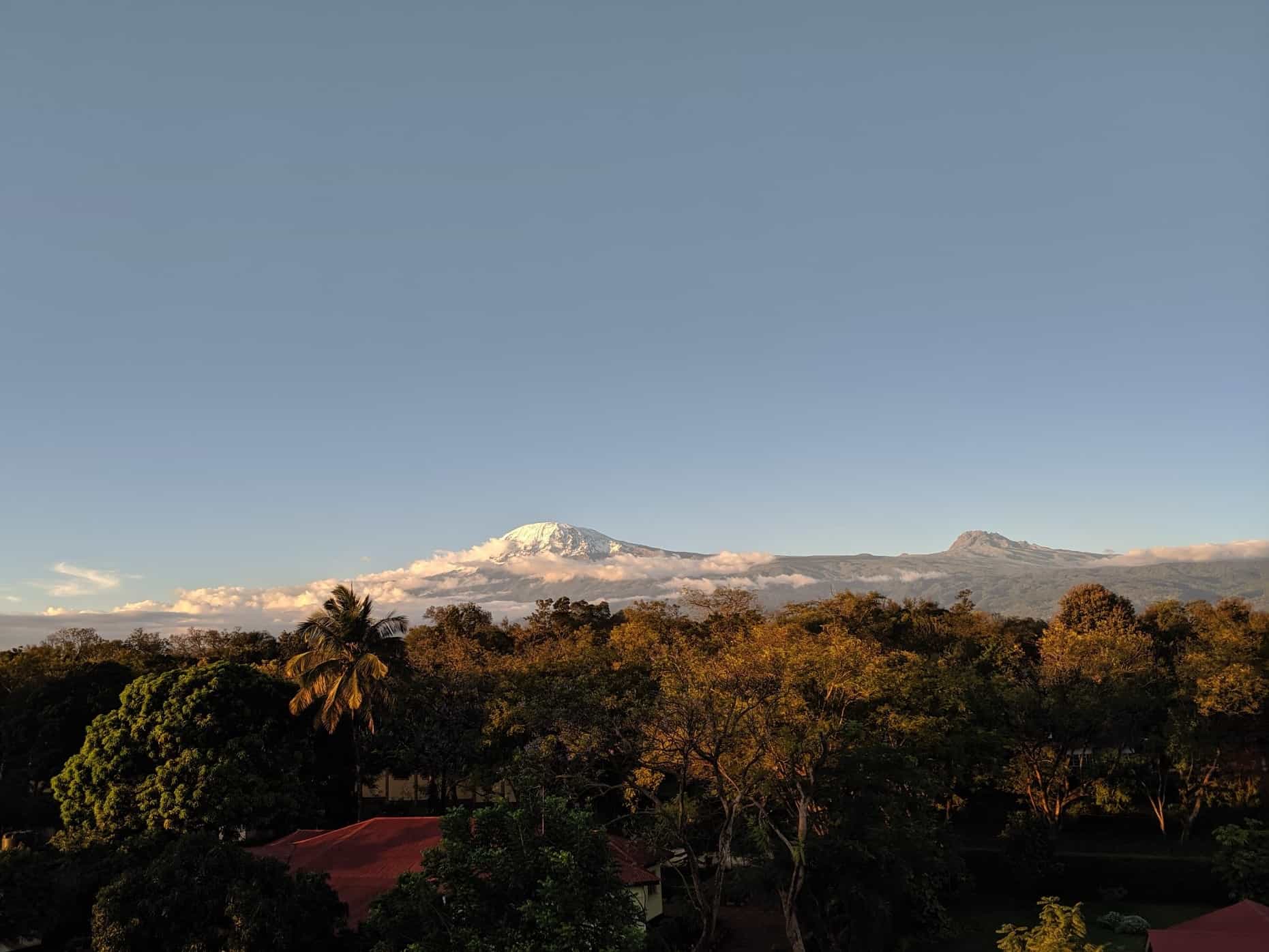
Enjoy a relaxed hotel breakfast to mark the end of a remarkable trip and then head back to the airport, or continue your adventure in Tanzania.
The Area
Logistics
Starts
Kilimanjaro Airport
Any time on Day 1
Ends
Weru Weru River Lodge in Moshi or Kilimanjaro Airport
Any time on Day 12
Transfers
Your adventure begins at Kilimanjaro Airport (JRO) where your driver will be waiting for you outside the Arrivals area. Alternatively, if you’re already in Tanzania, your host can arrange a pick-up from any point upon request (not included). Your adventure ends with an overnight stay at the Weru Weru River Lodge in Moshi; from here you may decide to continue your adventure in Tanzania or ask your host to arrange an airport transfer for any flight departing that day. The airport transfer takes around an hour.
Airport transfers are included in the price if you arrive on Day 1 and depart on Day 12. For those arriving early or wanting to stay on longer, extra nights at the hotels and airport transfers can be arranged with your host at an additional cost. Please see Optional Extras for more information.
Travel options
There are frequent flights to Kilimanjaro (JRO) from major airports across the UK and Europe.
Day 1
Breakfast
Lunch
Dinner
Day 2 – Day 7
Breakfast
Lunch
Dinner
Day 8 – Day 11
Breakfast
Lunch
Dinner
Day 12
Breakfast
Lunch
Dinner
What is the food like?
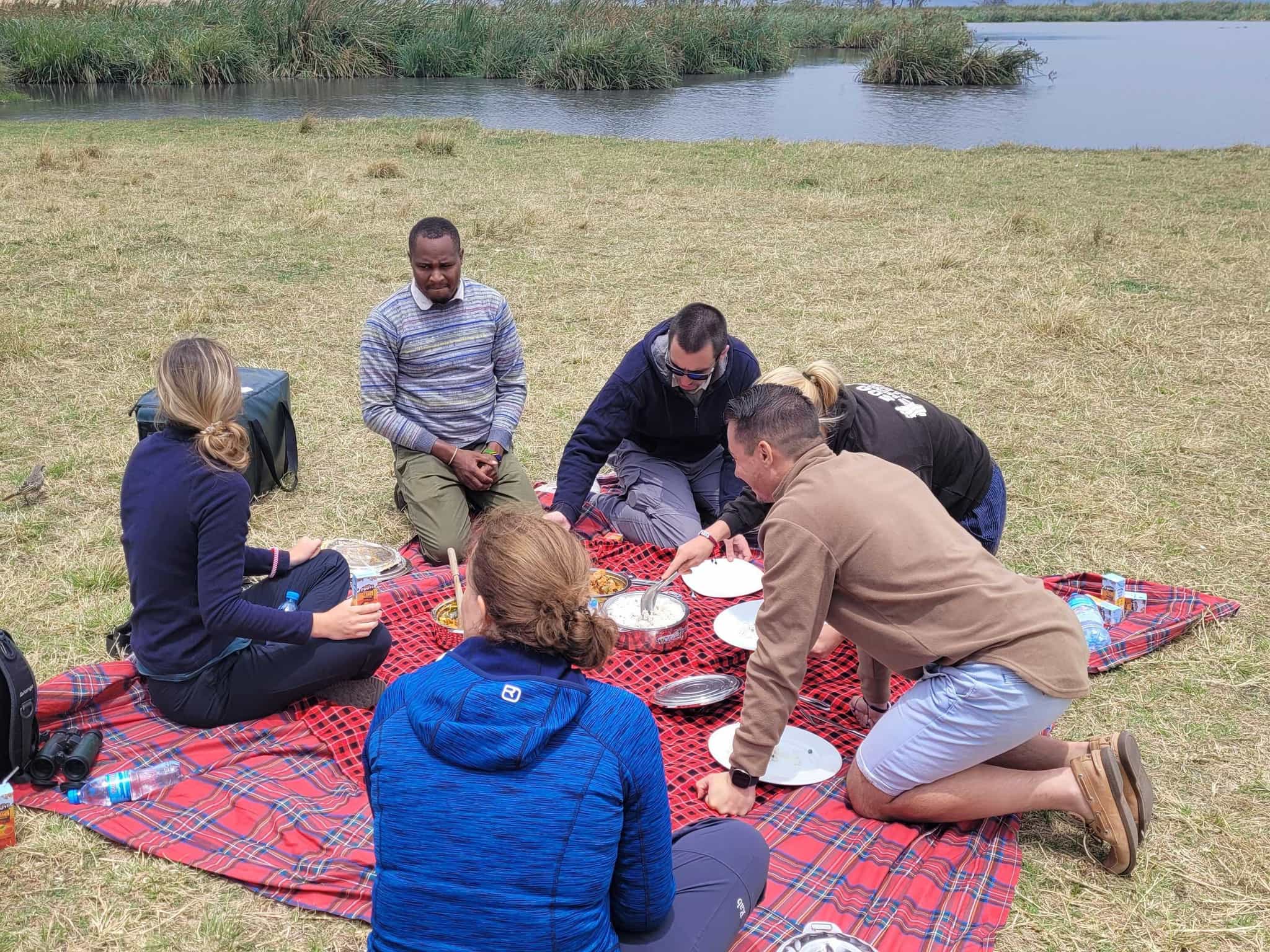
Throughout your trip, a team of experienced chefs will cook and serve you nutritious meals. On the trek, breakfast will usually be some combination of fruit, porridge, eggs, bread, French toast, pancakes, sausage or bacon with tea, coffee and hot chocolate available. Lunch will be a mix of vegetables, meat stews or sauces, boiled eggs, soups or broths, rice and bread. Dinner, meanwhile, will usually consist of soup, bread, salads, rice, pasta, potatoes, roast or fried chicken, beef or fish, curry, mixed vegetables, lentils, and fruit. On summit night, you’ll enjoy a midnight snack with juice, soup, hot chocolate, tea or coffee and biscuits, and when you return to base camp, a nice meal will be waiting as a reward for all your hard work.
On safari, you'll have international and local options at breakfast and dinner in the lodge. You'll enjoy a picnic lunch in the national parks whilst you are out spotting wildlife.
If you have any special dietary requests, let your host know in advance and they will do their best to accommodate them. Vegan and vegetarian diets can be fully accommodated.
What is the accommodation like?
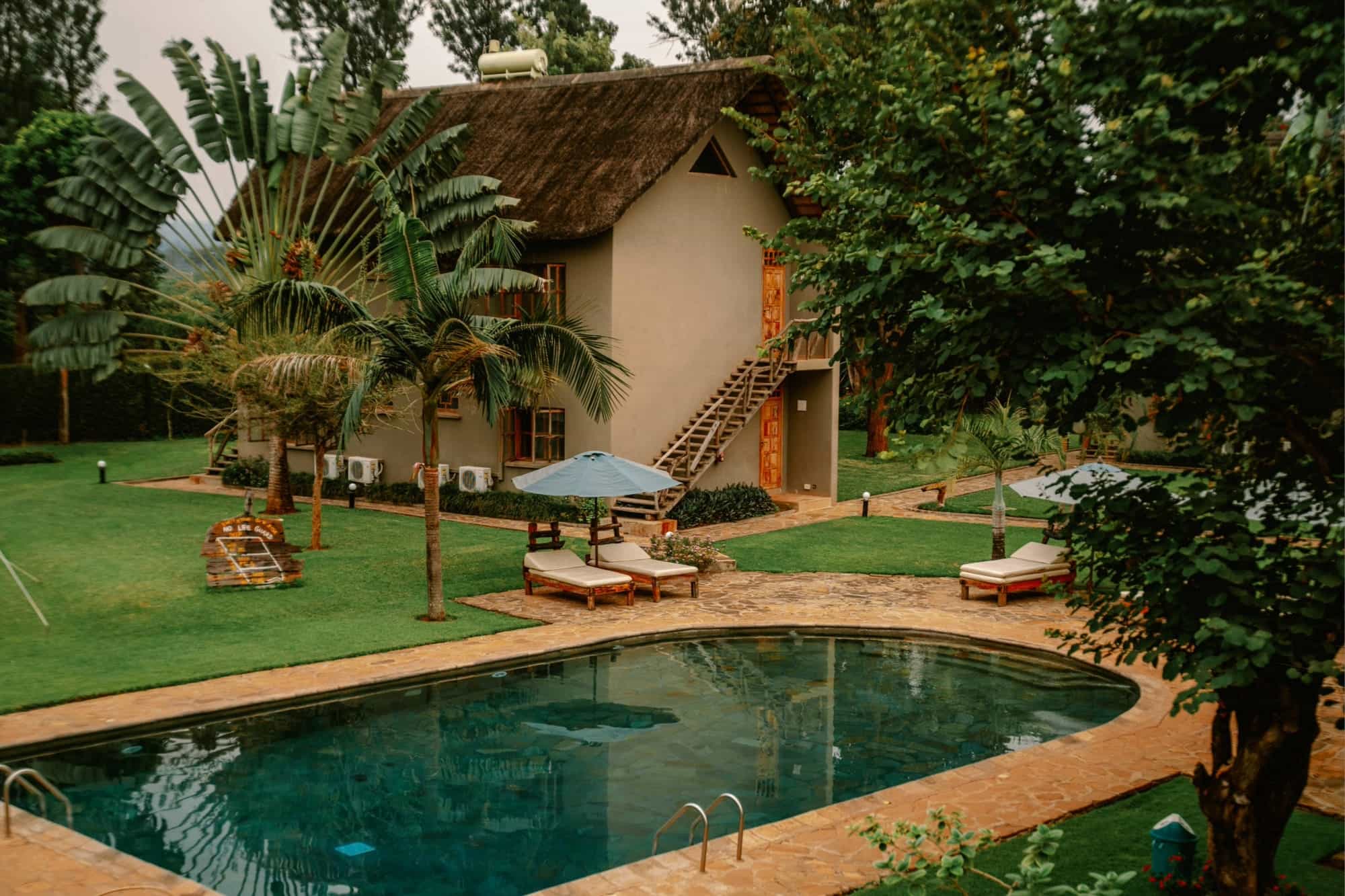
Moshi Town
You'll spend your first, eighth and last nights of the trip in a twin-share room at Weru Weru River Lodge, located on the quiet outskirts of Moshi Town around 30km from the airport. Rooms are modern and comfortable with ensuite bathrooms and free WiFi. Some departures also use the Panama Garden Resort or Kilimanjaro Wonders Hotel which are located more centrally in Moshi.
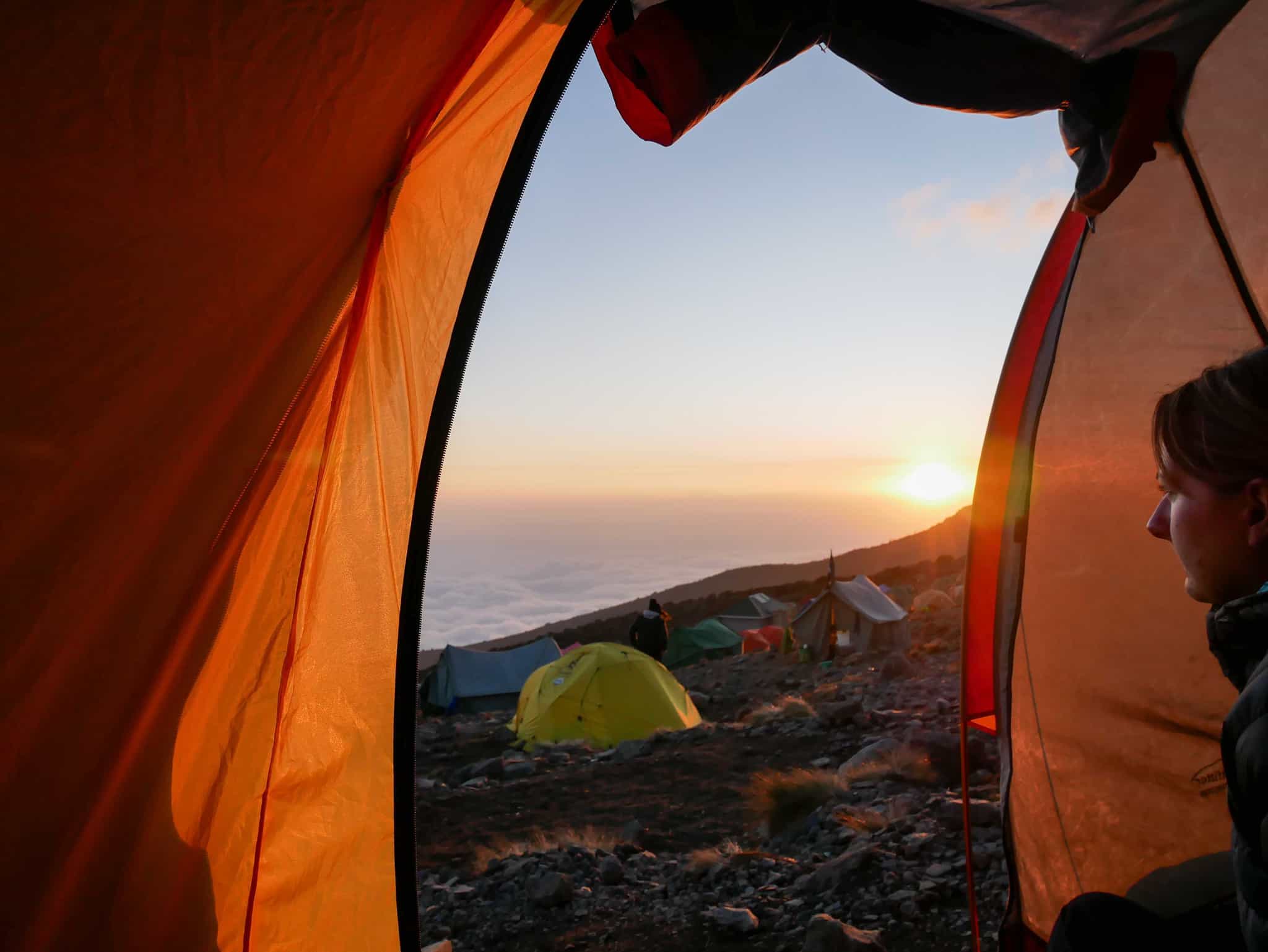
Along The Machame Route
During the trek, you will camp at a number of sites along the Machame Route in twin-share tents, with camping and cooking equipment provided (you'll need to bring your own sleeping bag, or hire one, though). You'll also have a mess tent where you'll be served all your meals. Your team of porters will set up and break down camp for you each day, so you can save your energy for the trek.
There are now several permanent public ‘long-drop’ toilets in most of the camps along the Kilimanjaro routes. In addition to this, when at camp, your porters will set up a private portable and flushable toilet especially for your group complete with washing station and bin. In between camps, you will need generally to find a convenient boulder or shrub. Whilst this is all part of a wilderness adventure, it can have a negative impact on the surrounding environment, if not practiced carefully.
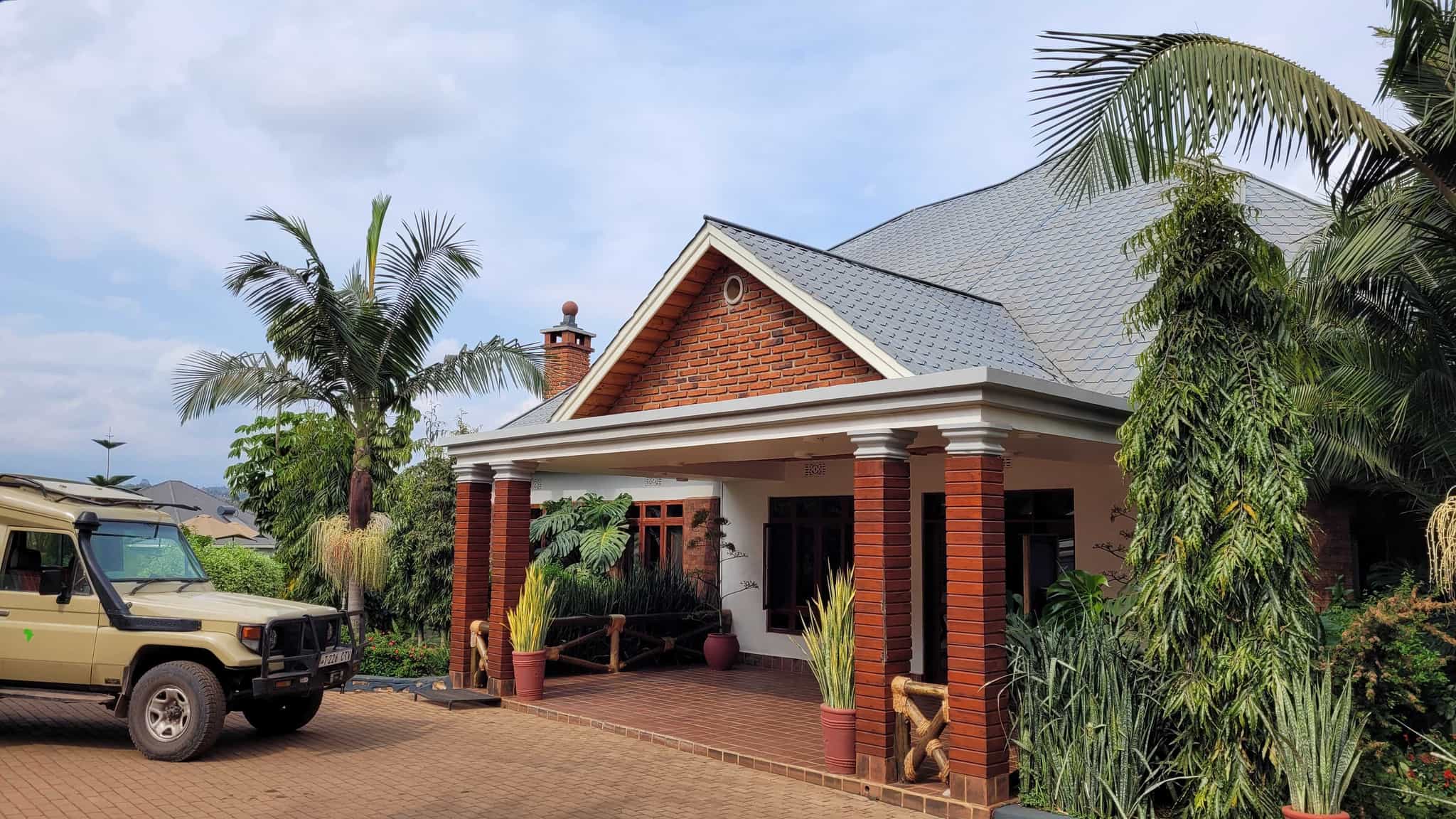
On Safari
You’ll stay in a twin-share room at the Marera Valley Lodge, a countryside hotel with beautiful landscaped gardens overlooking the verdant valley. There is a lounge, bar, restaurant (where they serve vegetables grown in the hotel's gardens) and swimming pool. The lodge has 18 large, cottage-style rooms with ensuite bathrooms and private decks with incredible views. Some departures may also use the Bougainvillea Safari Lodge, a similar-style lodge with swimming pool and gardens situated on the edge of Karatu town.
Upgrades
For solo travellers looking for their own space, an optional private room and tent can be requested for an extra charge, see Optional Extras for the price.
This trip has been rated as Challenging
An epic challenge! This trip has been rated as challenging due to consecutive days of around 6 or 7 hours trekking with plenty of elevation gain at high altitudes. Mount Kilimanjaro (5895m) isn’t a technical climb, but the route can be steep and rough underfoot. It is also important to note that trekking at altitudes above 3000m is more demanding on the body than walking at low elevations, and this will be the main challenge. Your guide will set the pace and as with all altitude treks, the theme is ‘pole pole’ (slowly, slowly in Swahili) to help you adjust to the high altitude.
Given the nature of the trip it is necessary to have some previous hiking experience under your belt. We would recommend working on your hill fitness over several weeks or months before attempting this climb. This would involve developing a reasonable base of cardio and strength fitness combined with some specific hiking preparation in the hills. Think of a few weekends of back-to-back walking days with as much up and down as you can fit in, if you want to make it harder carry a heavy backpack! This preparation will set you up to get the most out of your trek and enjoy yourself on your adventure!
This trip follows the Machame Route over 7 days on the mountain, however Much Better Adventures also offers you the chance to climb Kilimanjaro via the Lemosho Route which spends 8 days on the mountain or the Rongai Route which spends 7 days. See the FAQs below for more details on the individual routes.
What will I need to carry?
Your porters will carry your main kitbag allowing you to only have to carry a day pack with your basic kit for each day of walking. There is a limit to the weight that the porters can carry and therefore your main kitbag must be no heavier than 20kg. If you wish to bring more than 20kg it is best to arrange another bag and an extra porter charge will apply.
It's possible to climb Mount Kilimanjaro all year round, however, the months outside of the rainy seasons are more desirable. The best climbing months are from December to March and July to October. The best weather is usually at the beginning of the year from January to March, which are also typically the warmest and driest months.
Thanks to Tanzania’s proximity to the equator, the region doesn’t typically experience the extremes of winter and summer weather you might expect and instead has dry and wet seasons. The local weather conditions on Kilimanjaro can be somewhat unpredictable (to say the least) and rainfall varies from 2100mm per year in the rainforest belt to less than 120mm per year in the summit zone. Daily temperature changes are also unpredictable when compared to normal weather cycles, and are largely dependent on the altitude.




Worth every penny
The Kili experience was unreal. The guides William, Charles, Nelson, Seleh and Agustino as well as all the porters and crew couldn’t have been any better. The food was amazing, the toilet experience was way better than expected, and the whole group and vibe was fantastic the whole week.
The safari was the icing on the cake of an already amazing trip. The two drivers Joseph and Jamal were brilliant and we got to see more or less everything in the parks, completely blew me away how amazing it was.
It might seem a lot of money at first glance, and that almost made me hold off but trust me, it’s really worth every penny. Thanks again!



Amazing experience!
The trip of a lifetime. The guides (particularly William, Charles, Seleh, Nelson and Agustino) were so attentive and I do not think I could have summited without their support. I also got sick with a stomach bug after the hike and the hotel was amazing at getting me to a doctor for antibiotics. My only recommendation is DEFINITELY where as many layers as they recommend for summit night, even if it seems insane to wear 7 layers on top and 5 on bottom - it was unbelievable cold!
Incredible memories
What an experience! The porter team were so lovely and the group got on like a house on fire. I’ll be recommending this trip to anyone who will listen.
Epic Adventure
This was truly a trip of a lifetime; I didn't expect to make such great connections with my group as well as being humbled by the kindness of the MBA team helping us achieve our goals. It definitely helped the tough moments feel so much easier with my support team encouraging me and each other the whole way. I would definitely recommend this trip to anyone even slightly thinking of doing it themselves.
Amazing experience
Definitely the best trip of my life. The views on kili and during the safari and on their own worth the trip, but the human experience with the team during the climb were life changing!








Pull the trigger!
I waited years to finally do this, and thank god I did! MBA made the process so easy every step of the way. Very professional staff all around with THE BEST guides and porters making sure you’re safe and getting to the summit, and ensuring you have the best safari experience possible. You WILL NOT regret this life changing trip!
Amazing Trip
This was such a fantastic trip.
The support for the hike up Kilimanjaro was above and beyond what I could’ve expected. The positive energy and support from Hussein, David, Eric and the porters made sure the whole group summited.
It was great to follow up with safari and the Ngorongoro crater is such a highlight.
I’d really recommend this trip!
Fantastic Experience
We had an amazing experience in Tanzania. The trek up Mt Kilimanjaro was really well organised and we were supported beyond all expectations. Staff could not do enough to make the experience a trip of a lifetime and help us succeed in summiting. Whilst on safari we saw lots and were able to get really close to some lions and elephants. Overall this was the trip of a lifetime and exceeded all expectations.
Wow! What an unbelievable experience
Wow! What an unbelievable experience - the trip of a lifetime! The trek should by no means be underestimated, as it is really tough - I thought I was fit but I quickly realised I was the weakest in the group! BUT it is achievable, even for an unfit asthmatic diabetic! The guides and their crew are absolutely incredible; Andrew and the team took such extraordinary care of us all (including producing a cheeky bottle of coke for me whilst I was mid hypo at 0400 on summit night!) - they are your angels for the duration of the climb. The food is out of this world too, the group was in constant disbelief that the chef could make pizza from scratch halfway up a mountain! The safari is the perfect way to unwind after your challenging climb. Our guide, Octavian was very knowledgeable, and knew the best spots to get glimpses of the big five. I didn't want to come home!
All in all, an unforgettable trip that left me feeling invincible, and will forever hold a special place in my heart!
A must
Completely amazing. Hands down one of the best experiences of my life. The hike was really well planned and the whole team that came with us took such good care of us, nothing like being woken up with the offer of tea in your sleeping bag and a breath taking view. After the challenge of the hike, what better way to relax than 3 days on safari and staying in a beautiful lodge.

Clara
It was an unforgettable experience that would not have been possible without the aid of the crew that accompanied us to the summit and back. The food was delicious, warm and very abundant, always served by the waiter with a great smile (they know what they are doing, so if they ask you to eat more, do it! You will certainly need it for the hike) The guides were ever so helpful, always positive and encouraging you to keep going; always looking for the best ways for us to achieve the goal. All the porters rush from one camp to the other so you don´t feel you need to do any work. Tents are set up before you arrive, with a soft mat for the night, and the toilet is always clean and ready to use whenever you needed in the camp. The best way to finish the trip was with the Safari. Our guide, Octavian, was very knowledgeable and told us many stories and facts that I will remember for a long time, as well as helped us spot animals in the distance so easily!
Such an incredible time. I love the organisation and the commitment that goes into making this a wild fun adventure. Thank you, definitely booking another trip!
This is an amazing experience. It is definitely worth the money. The local guides are amazing, very knowledgeable and will go above and beyond for you on the trip. Watching the sunrise from the summit plateau is a once in a lifetime experience.
Awesome experience, I've been recommendeding this trip to everyone I know. Such a great introduction to major mountain climbs!




What an epic adventure!! The walk to the top of Kilimanjaro was really hard work but worth it. The whole support group were amazing and the 3 who summited with us were really positive and supportive and we all made it! The safari was a brilliant experience and we were so lucky to see so many animals in their natural habitat - and so many close up as well. I would definitely recommend this trip.





An awesome experience start to finish!
The Machame route is an epic climb with stunning scenery. Reaching the summit will give you such a buzz! Of course it's no easy task but is well worth it!
The safari was a brilliant experience too. Seeing so many different animals in their natural habitat is something special. Our guide was so friendly, knowledgeable and happy to answer all our silly questions.
Highly recommend trip.
Beautiful hike though I only made it to base camp due to a combination of Flu/gastroenteritis and altitude sickness. The Safari was great, Josephite was extremely knowledgeable, could spot animals at a distance and made the experience highly enjoyable. We saw 4 out of the big 5 and many more. Ngorongoro crater is amazing.
A trip of a lifetime. Much Better Adventures have thought of everything, and I was grinning from ear to ear most of the time. It's a big investment but worth it and the sense of achievement is amazing. The trip was harder than I expected, not physically or even mentally because of the mountain, but more preparing yourself mentally for the cold and the camping. Be sure to do your research on kit before you leave, especially if you feel the cold (a hot water bottle is a must). The team supporting us were amazing and very knowledgable. Booking to do Kilimanjaro and a safari is a must. The safari was the perfect way to wrap up the trip, the accommodation is second to none and the safari itself feels like you have been dropped into another world. From leopards, to a Black Rhino, we saw everything on our list, our guide really knew his stuff. Seeing the elephants was one of those moments which really took your breath away.




Wow, an incredible challenge! Whilst the earlier days of the trek shouldn't be underestimated, several having climbs in excess of 1000m over mixed terrain, reaching the summit will quickly become the centre of focus. After four fairly serene days, we were hit overnight with the "worst winds for 30 years", meaning our only hope of summiting was combining days 5 & 6 in the daylight. Physically and mentally the climb was tortuous, gasping for breadth every 10 or 20 steps. Without the support, encouragement and motivation from our amazing guide Stephen, there's no way I would have made it to the top!
Throughout, the local team went out of their way to give us the easiest and most enjoyable experience possible. Our guides Stephen and Eliakeney regularly checked in on the group for any signs of acute mountain sickness and kept morale high with their energy and positivity. The chef and waitor brought huge quantities of delicious and nutritious food to our table three-meals-a-day, whilst a pilot ensured we had our own private luxury toilet on the mountain! The heroic porters, carrying 20kg each, would race from one camp to the next to set up ready for our arrival. Thank you all!
After such an exhausting trek, the safari was the perfect antidote to relax and enjoy the scenery and wildlife from the comfort of the land cruiser. Our guide Josephad worked tirelessly to give us the best possible sightings of Africa's Big 5, including up-close encounters with elephants and a male lion! The Ngorongoro Coffee Lodge was the perfect place to unwind by the pool at the end of a long day in the bush.
All in all, an unforgettable couple of weeks covering several of Tanzania's highlights in a single, well-organised package!

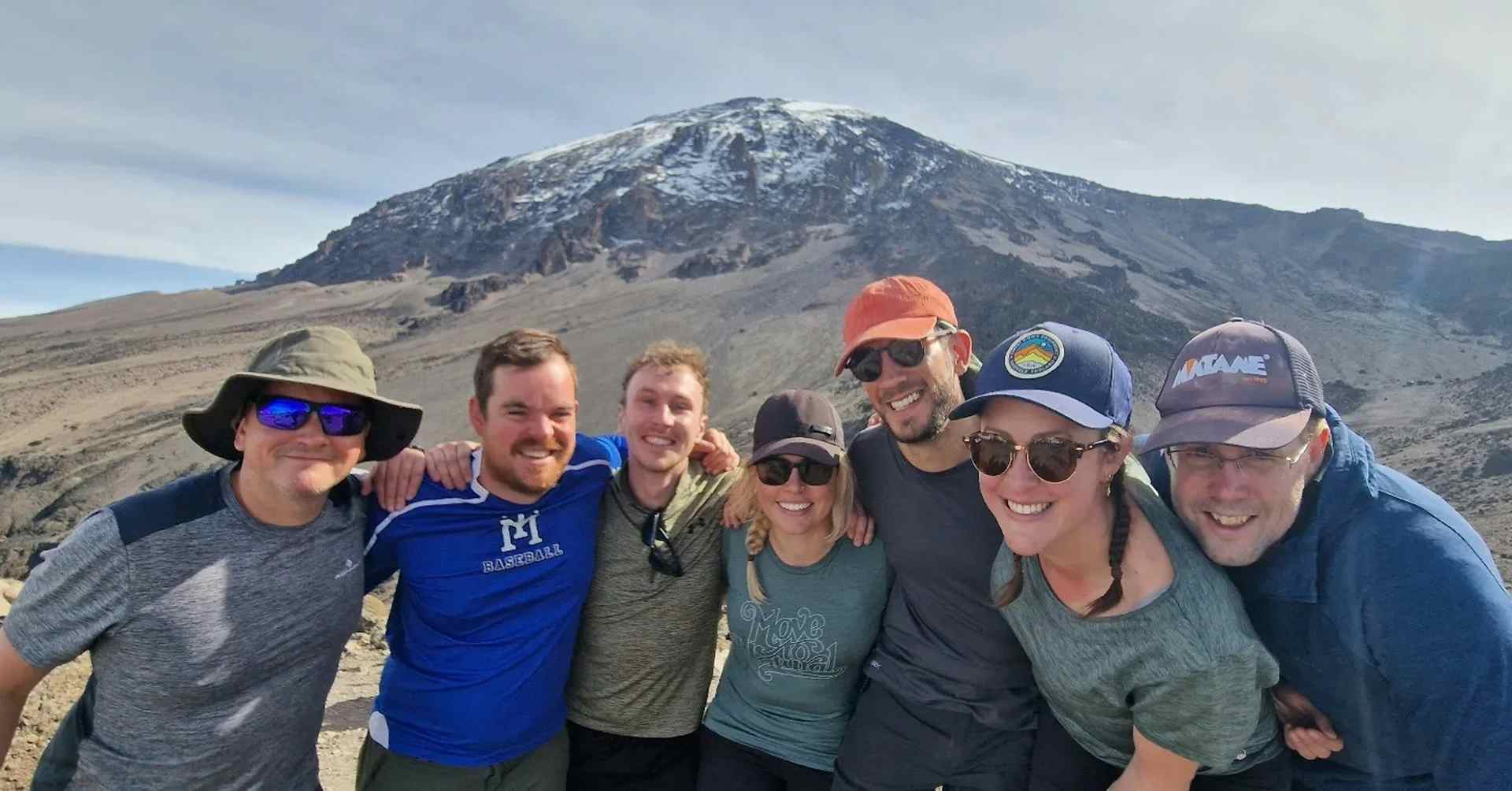
Incredible! MGana and the team made summiting Africa hakuna matata!
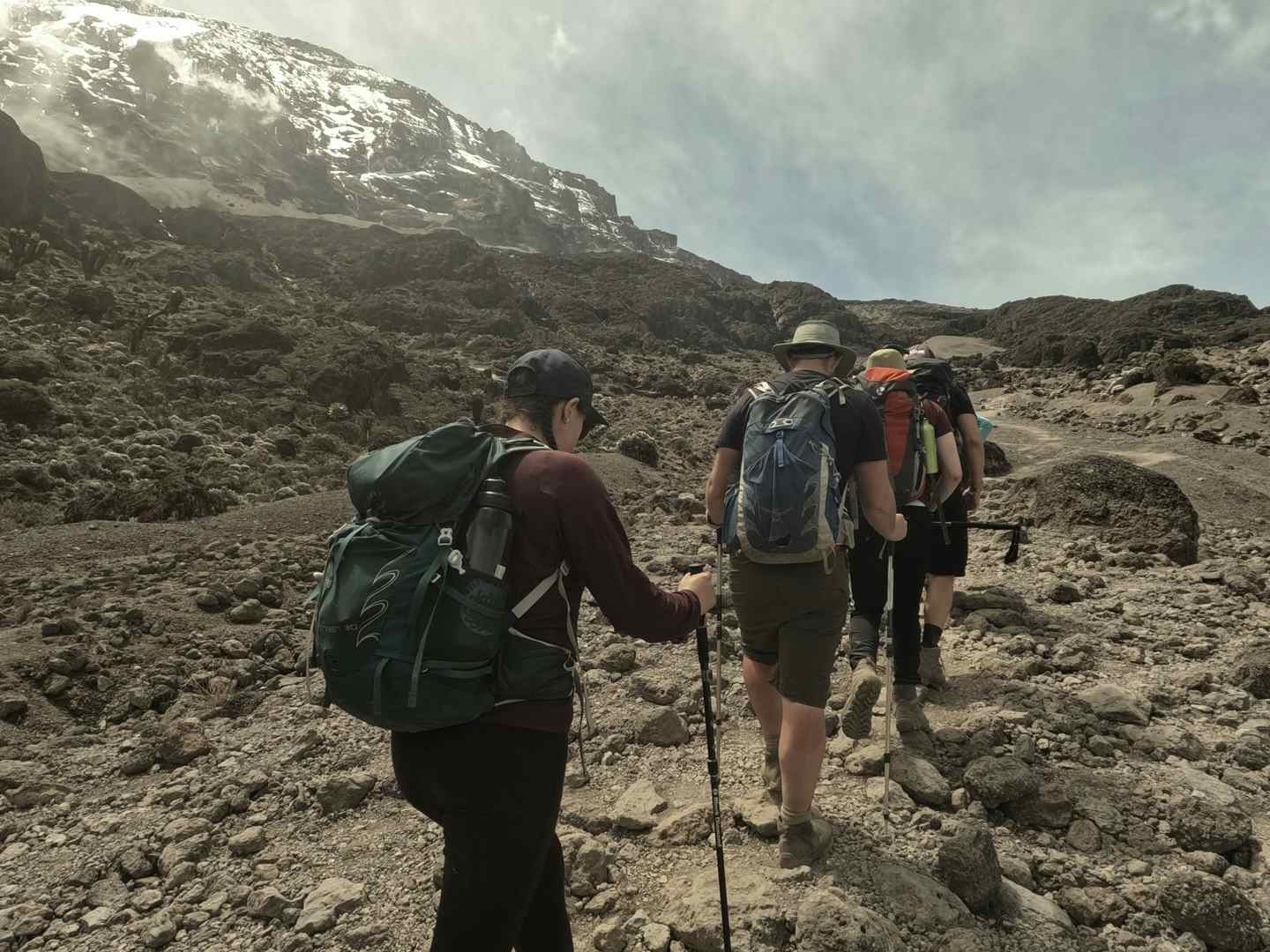
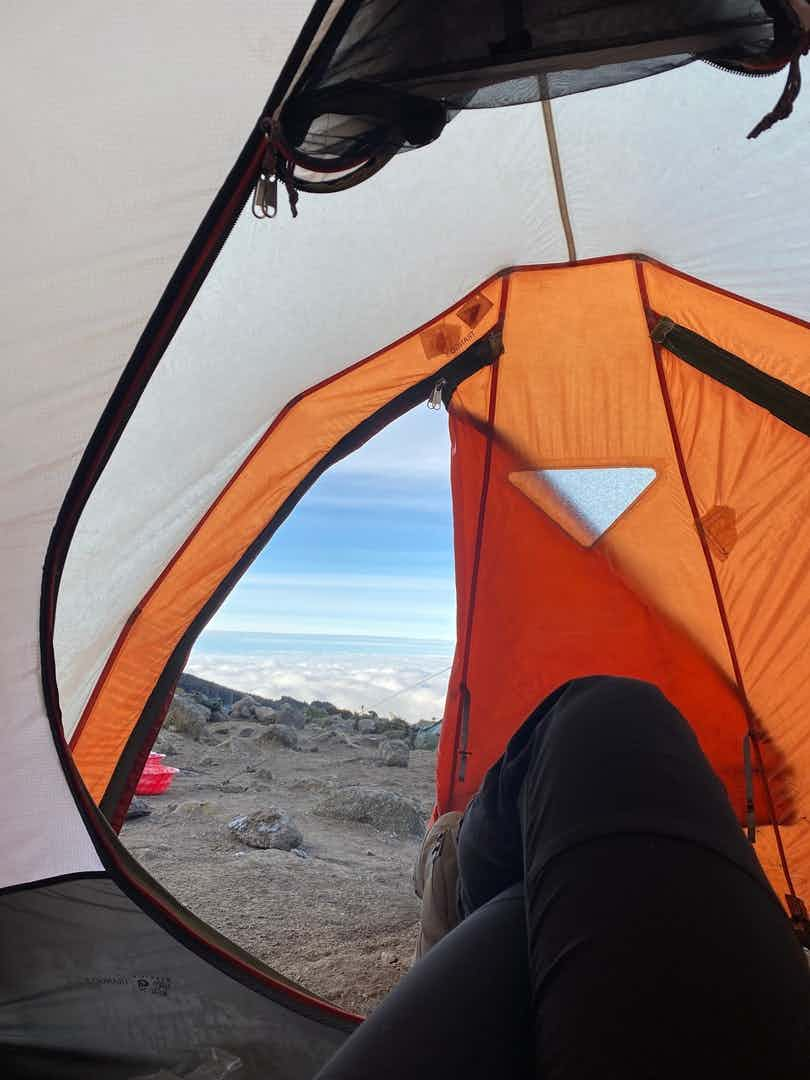
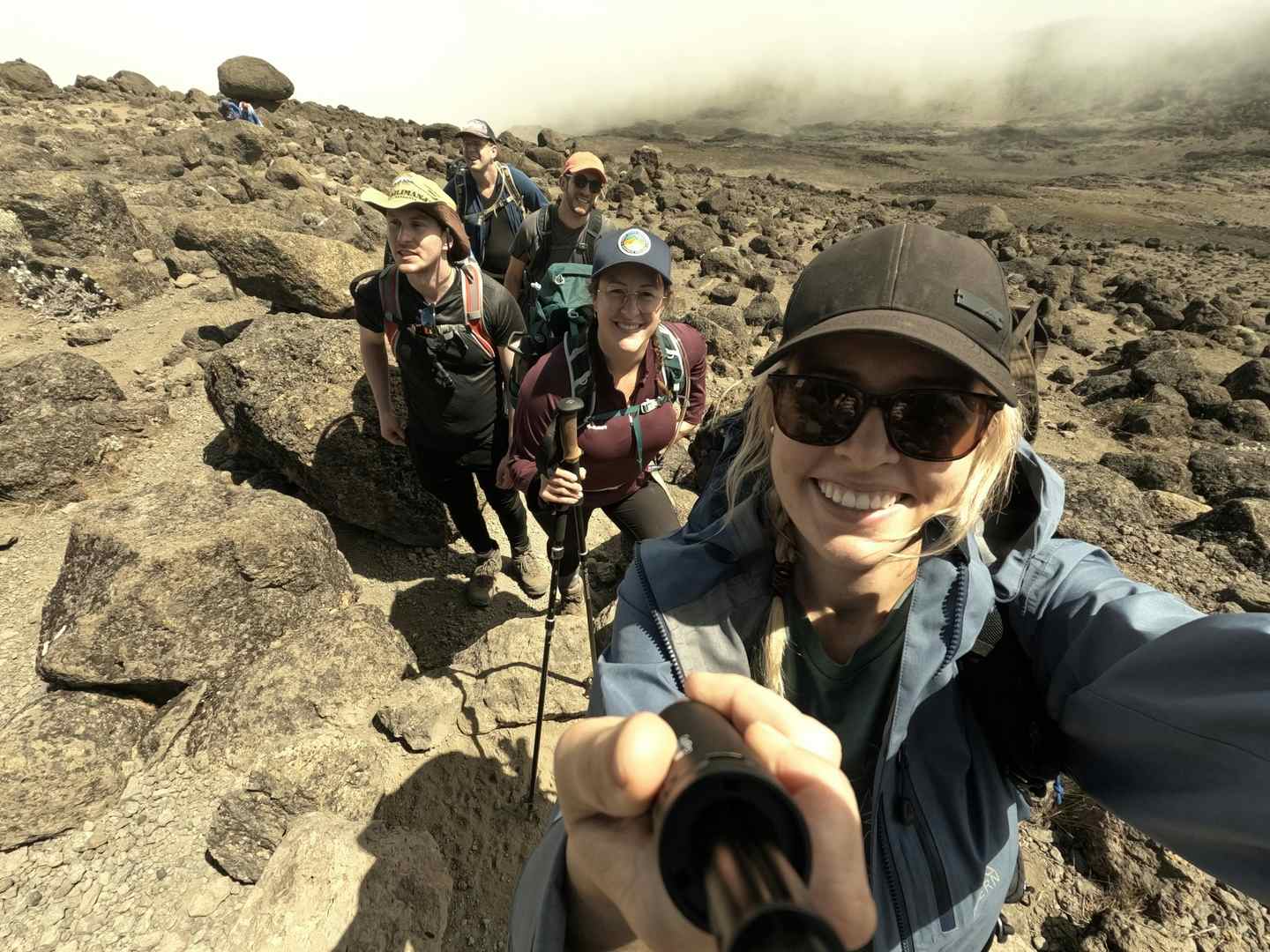
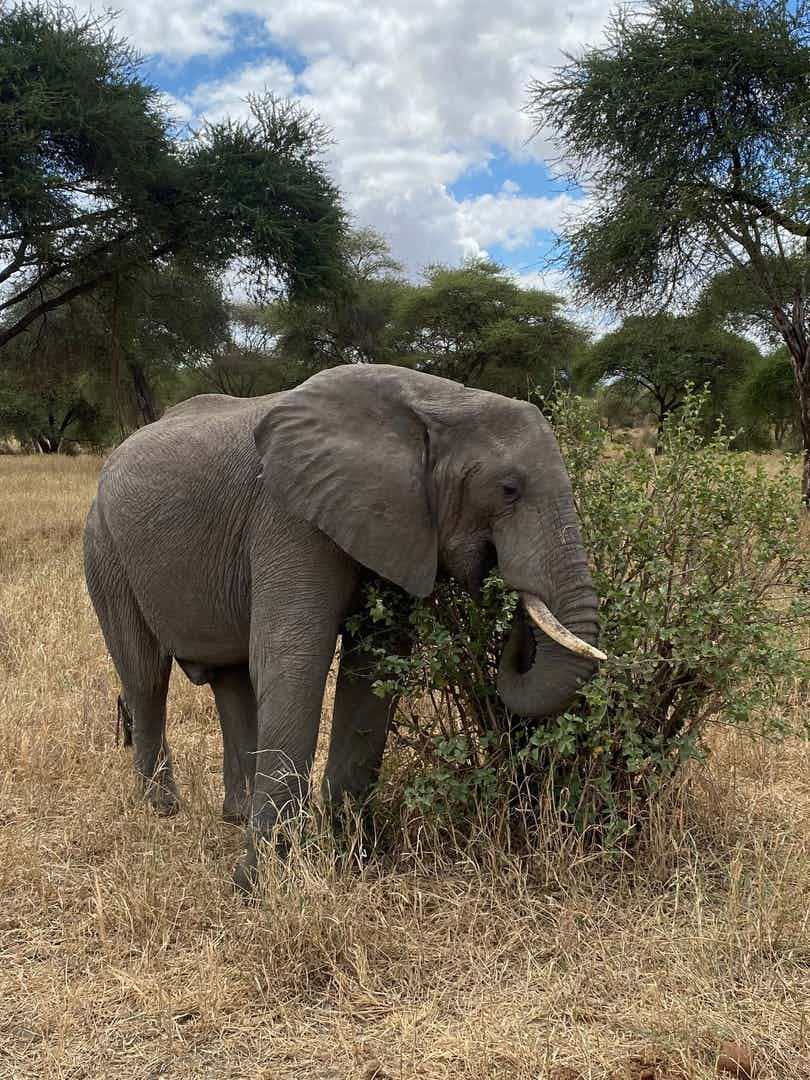
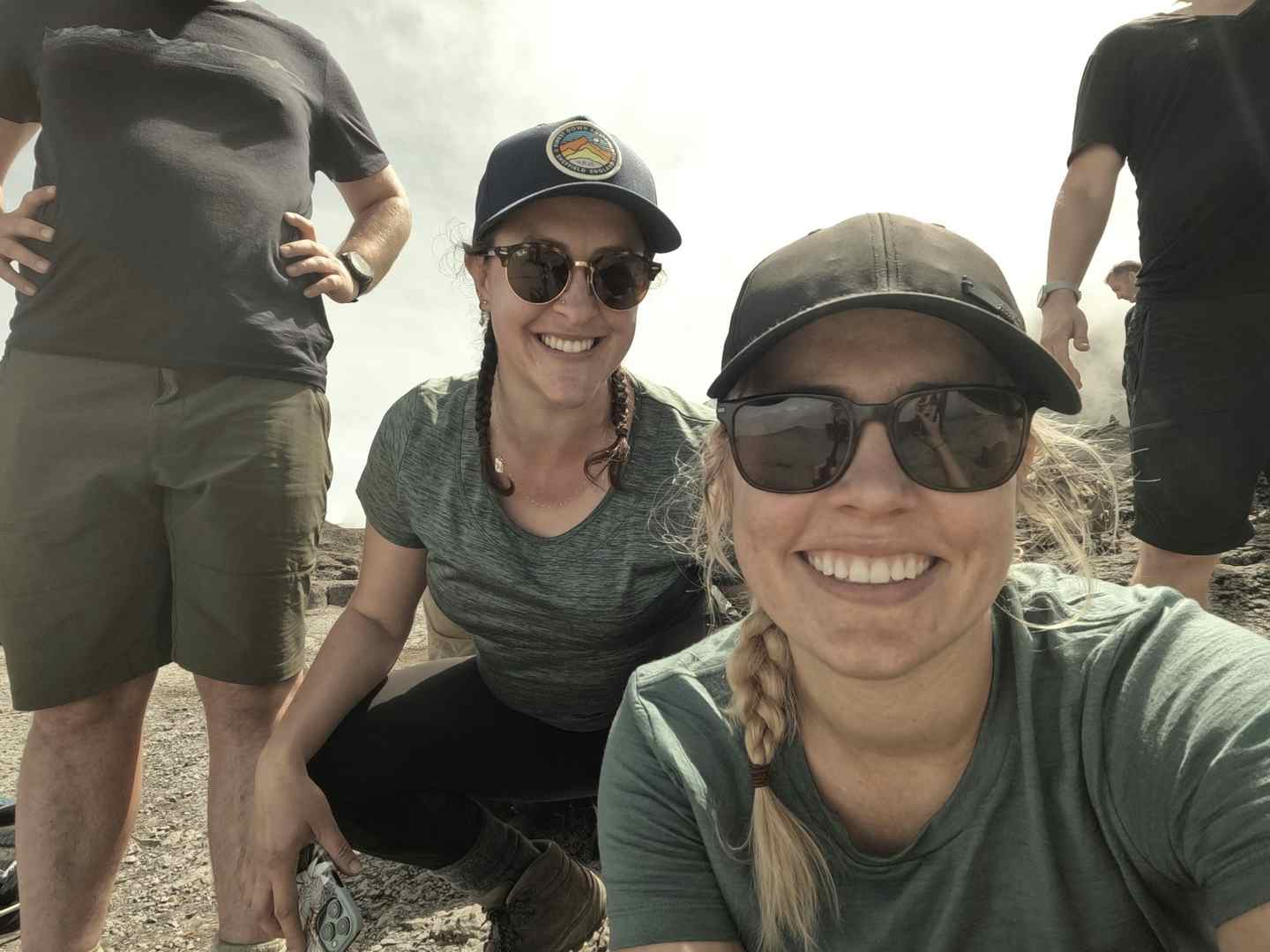
Fabulous experience. So wholesome!
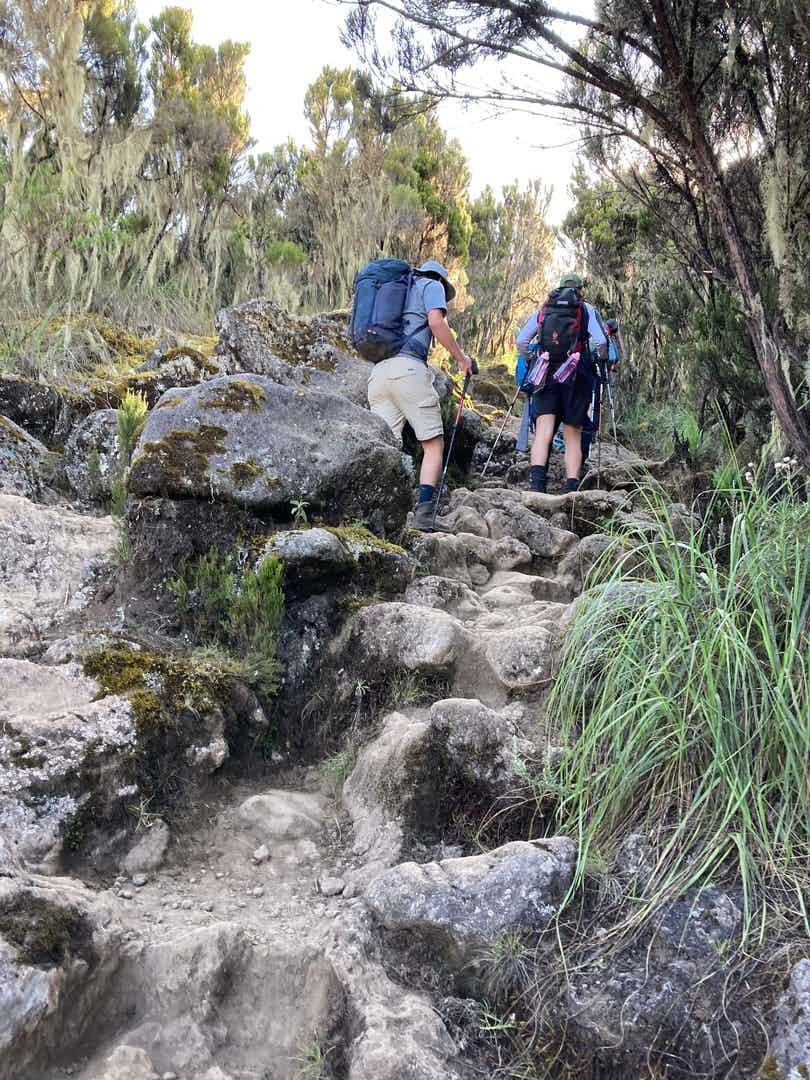
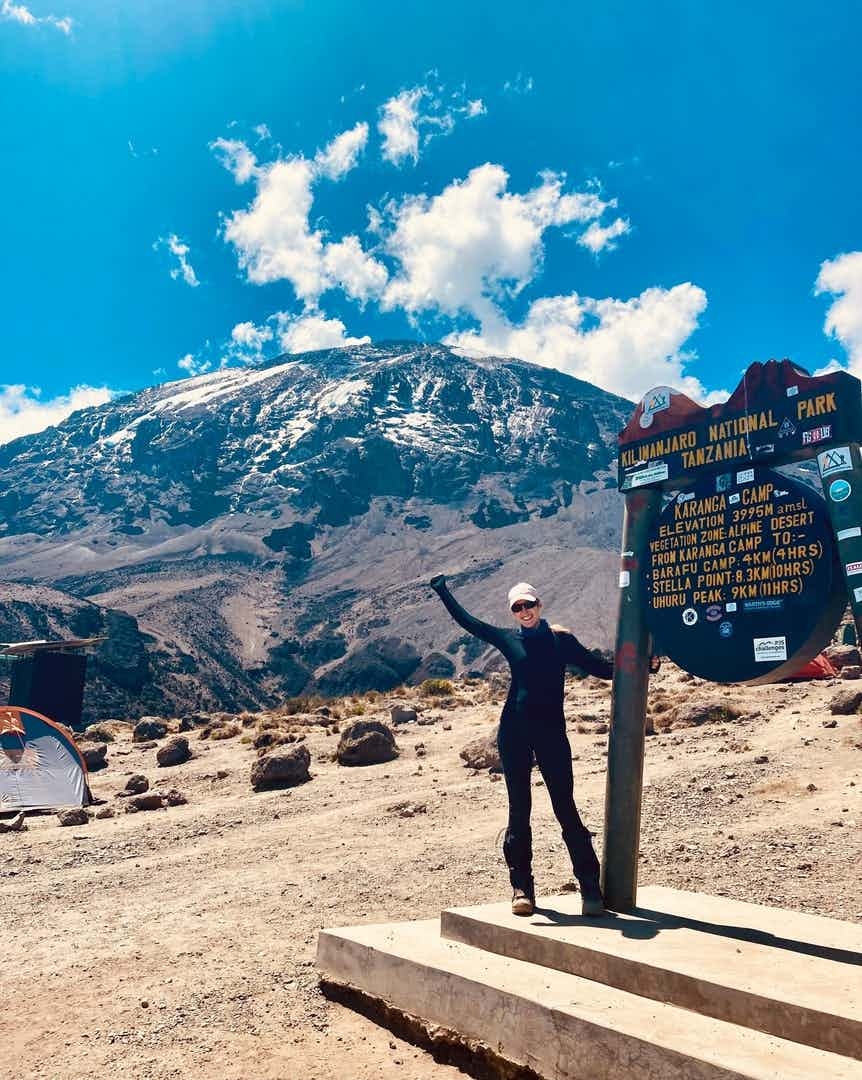
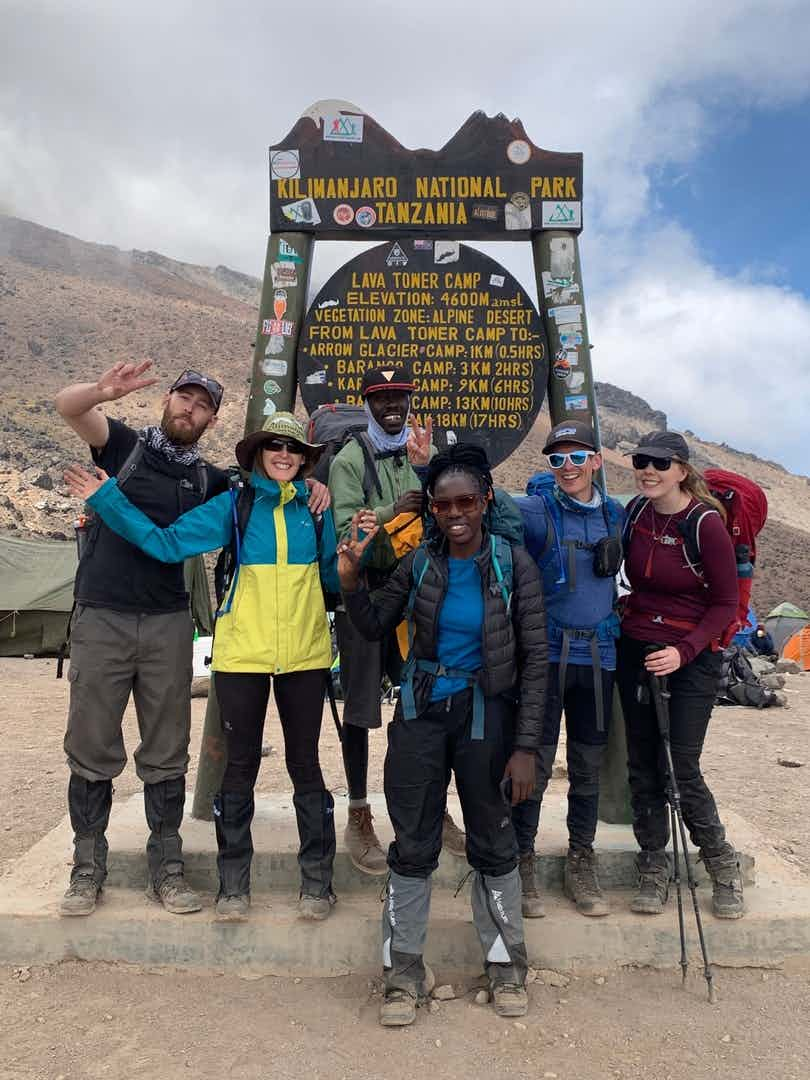
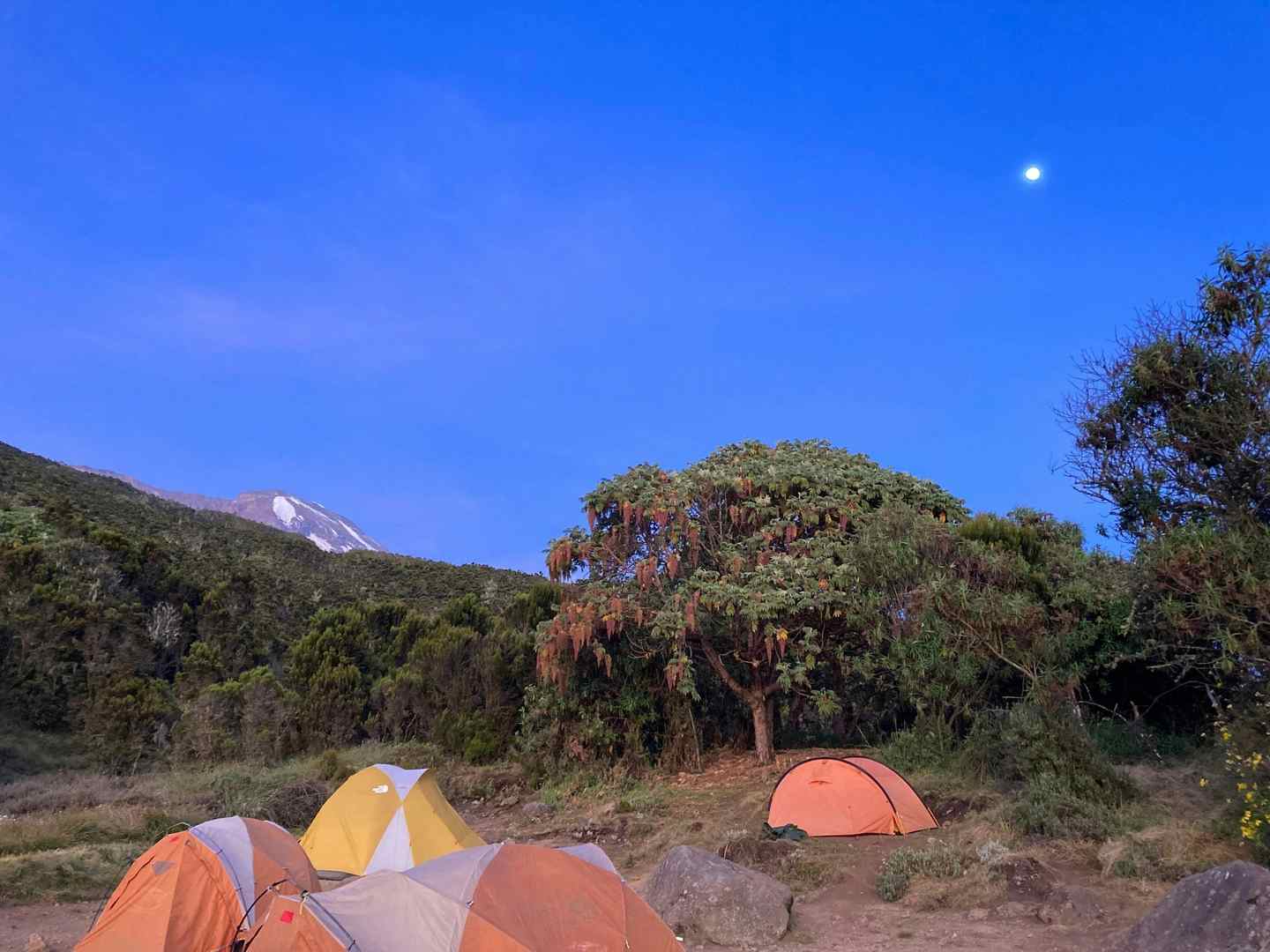
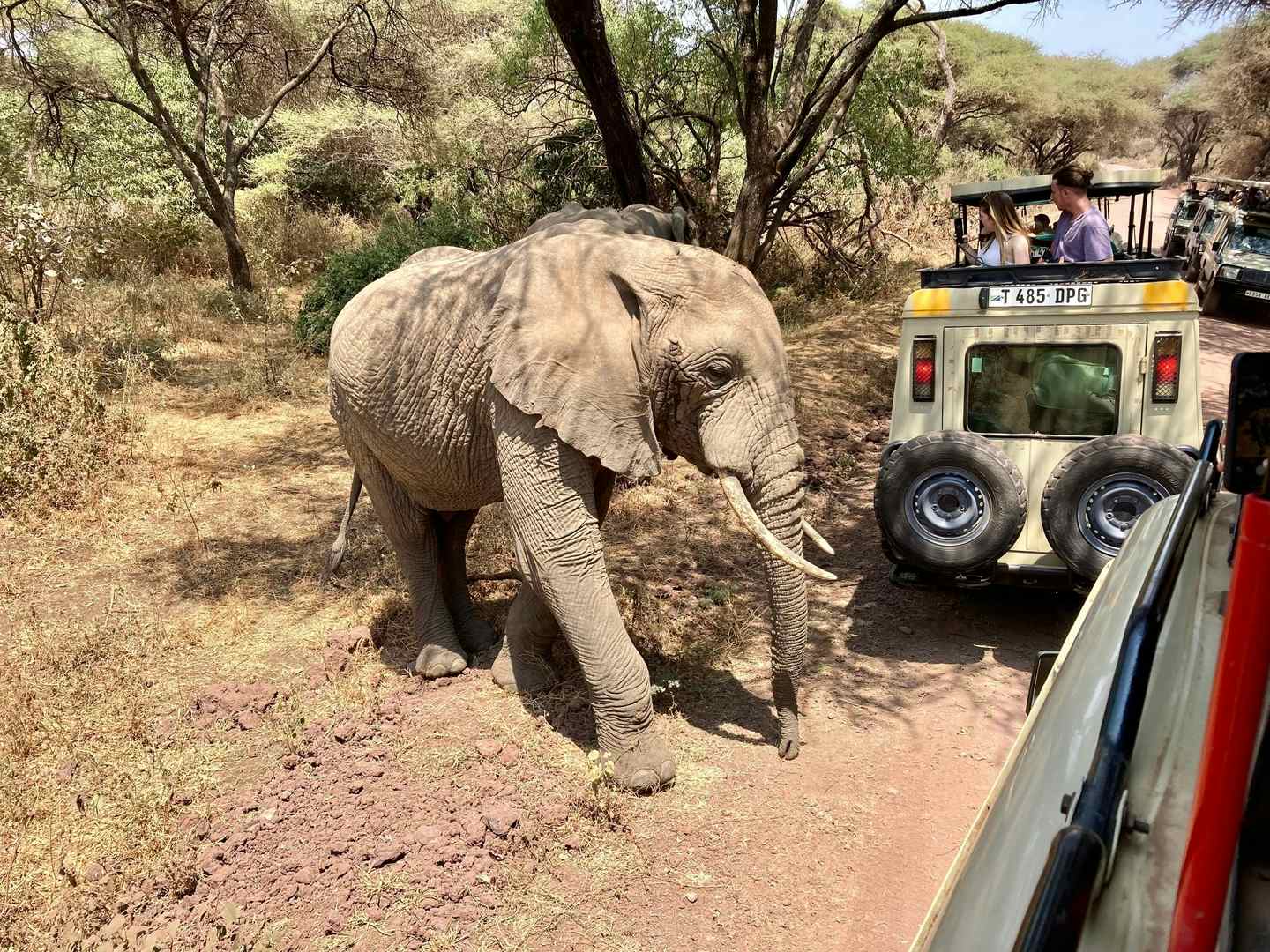
An incredible experience, the safari an absolute must after the mountain. The guides were brilliant and great care was taken of the group through the challenges of the climb. Veganism was catered well for and the food was amazing, especially given we were up a mountain! Take a nail brush tho, it’s a dusty environment. And get clear on tipping from the start.
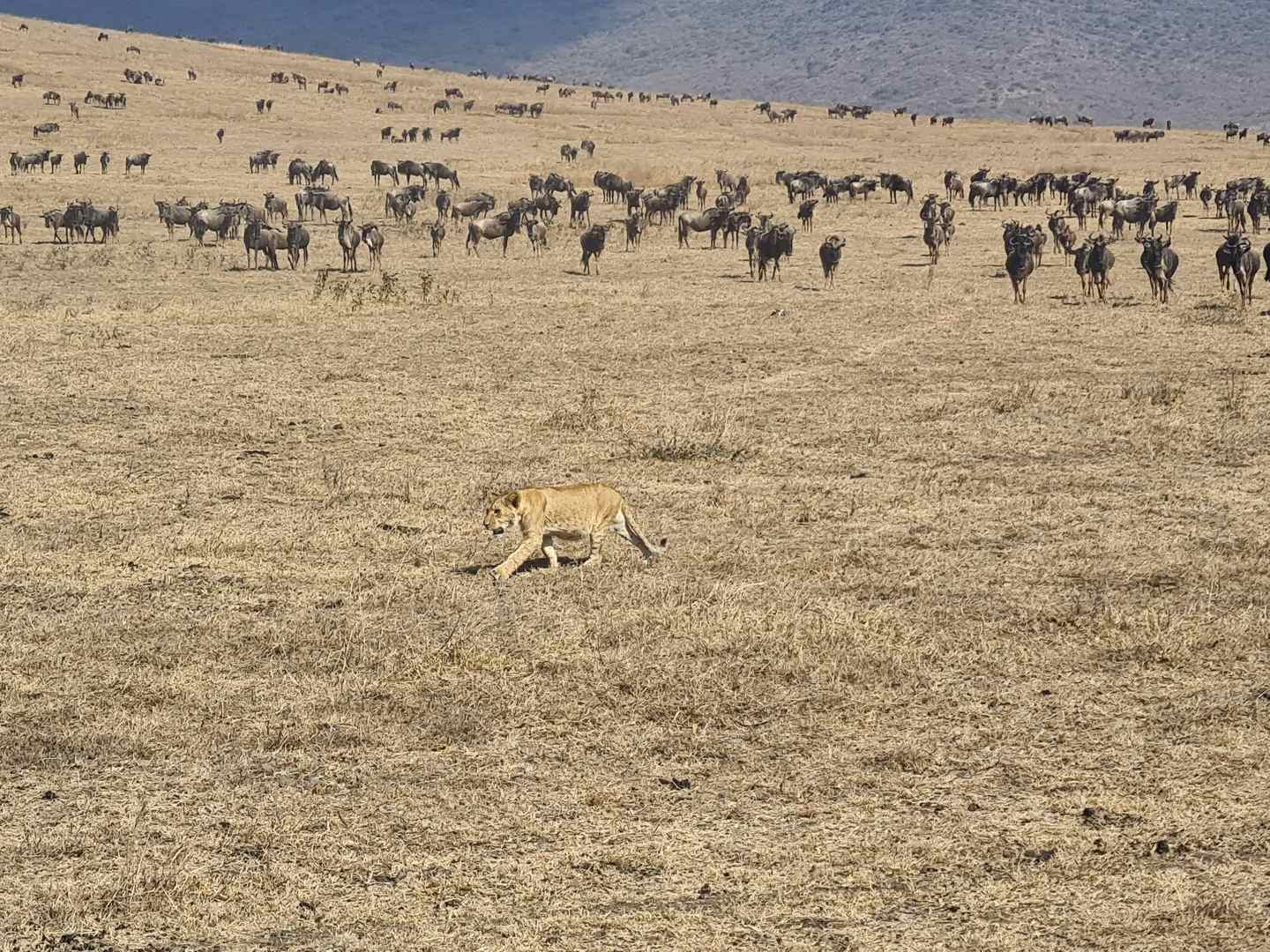
This is a trip of a lifetime.
The climb is of course hard (particularly the cold nights) but the guides and porters were an amazing team who kept morale up, kept us well fed and watered and made sure we would get to the summit for the most spectacular sunrise and all important photo at the peak. Such an incredible feeling that makes every ache and pain worth it. Special mention to our guides Stephen and Isaya and our "waiter" Shafii who all went above and beyond at times.
The safari was also bucket list stuff and the cherry on the Kili cake. It was great to visit three different areas, and we saw all big 5 (without unnecessarily stalking the animals like some of the other jeeps did...). Our driver/guide Josephad was very knowledgeable with a great eye.
Overall, another great experience with much better adventures, teaming up with another great (and ethical) local company.
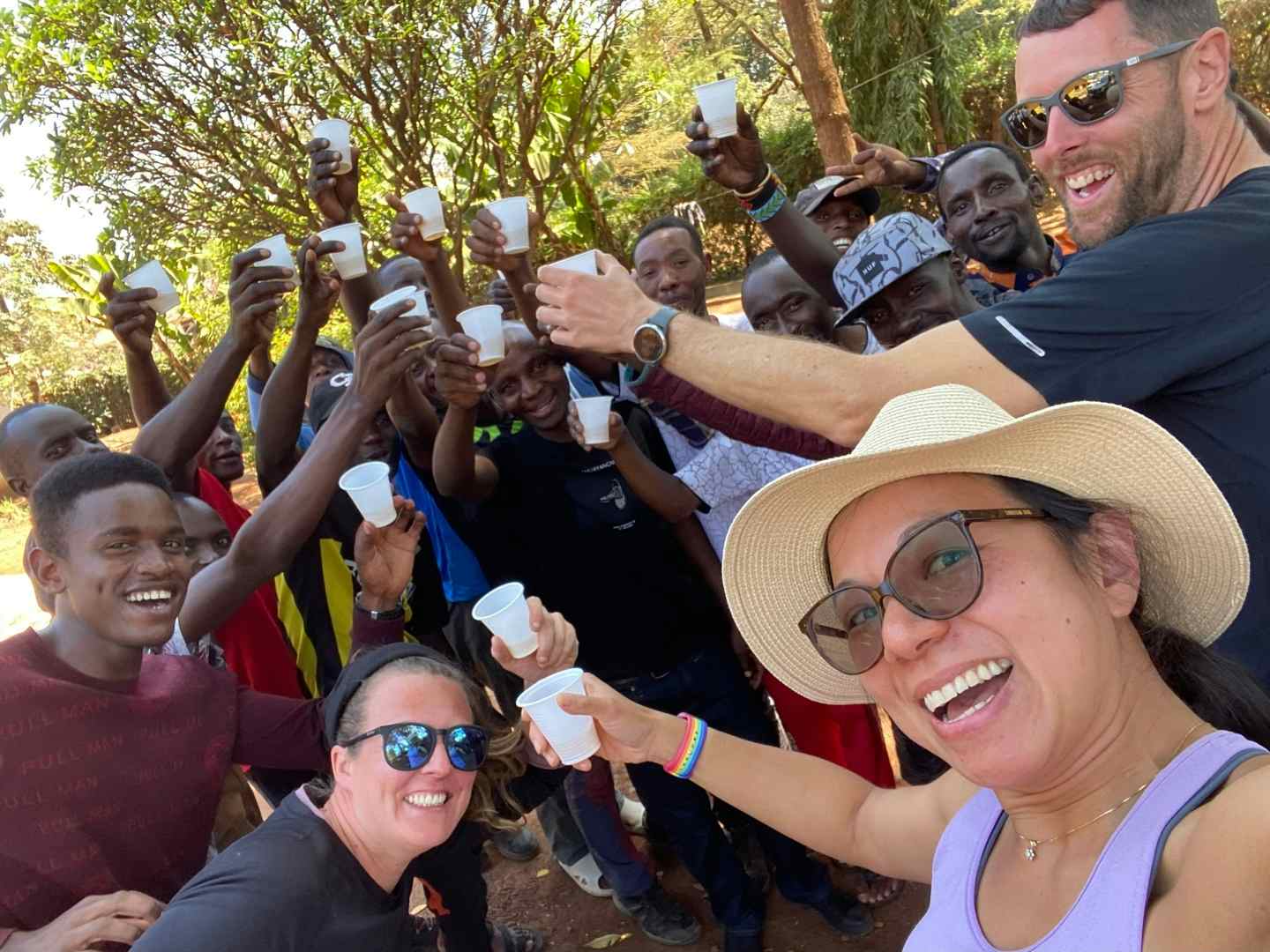
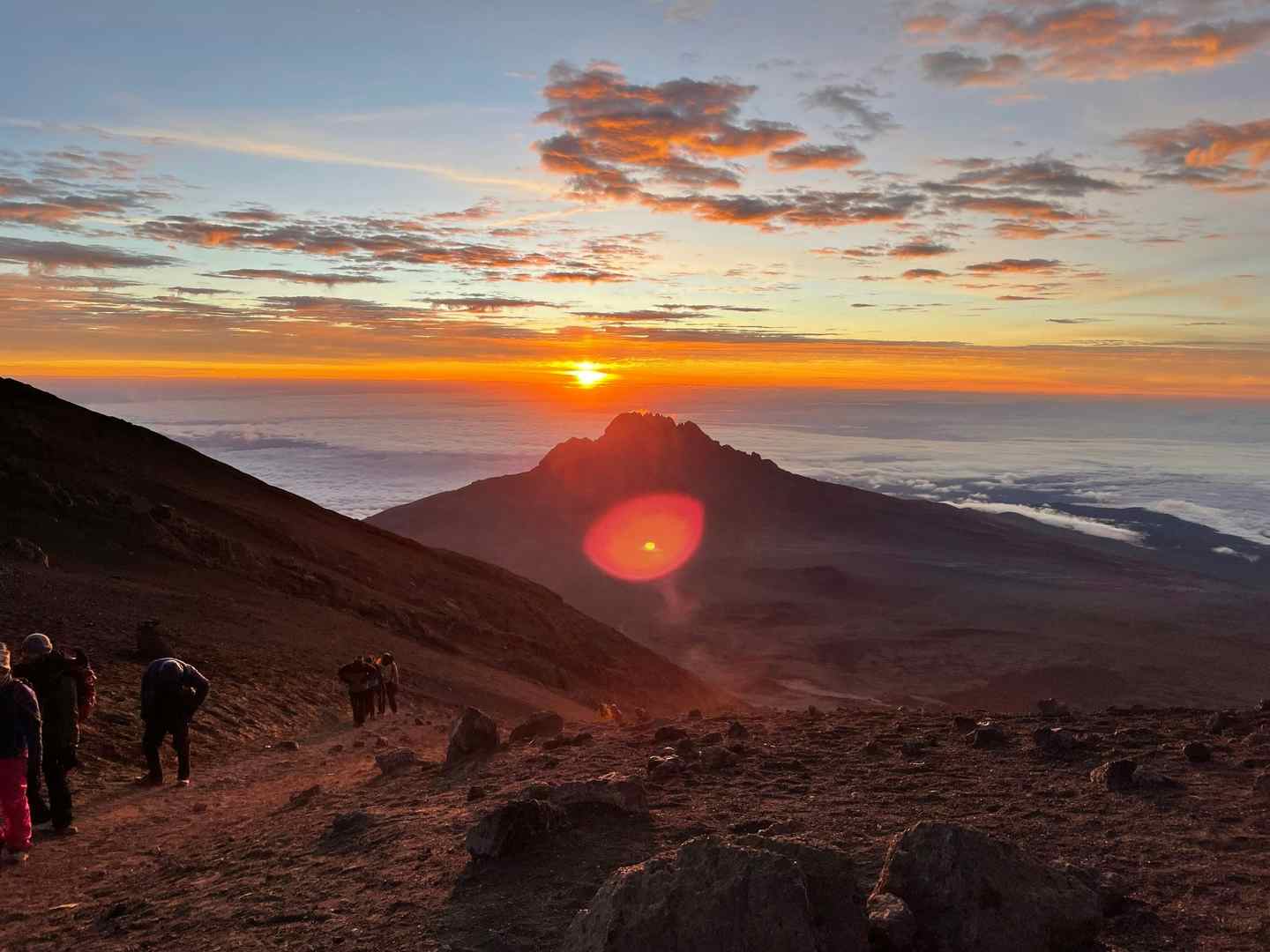
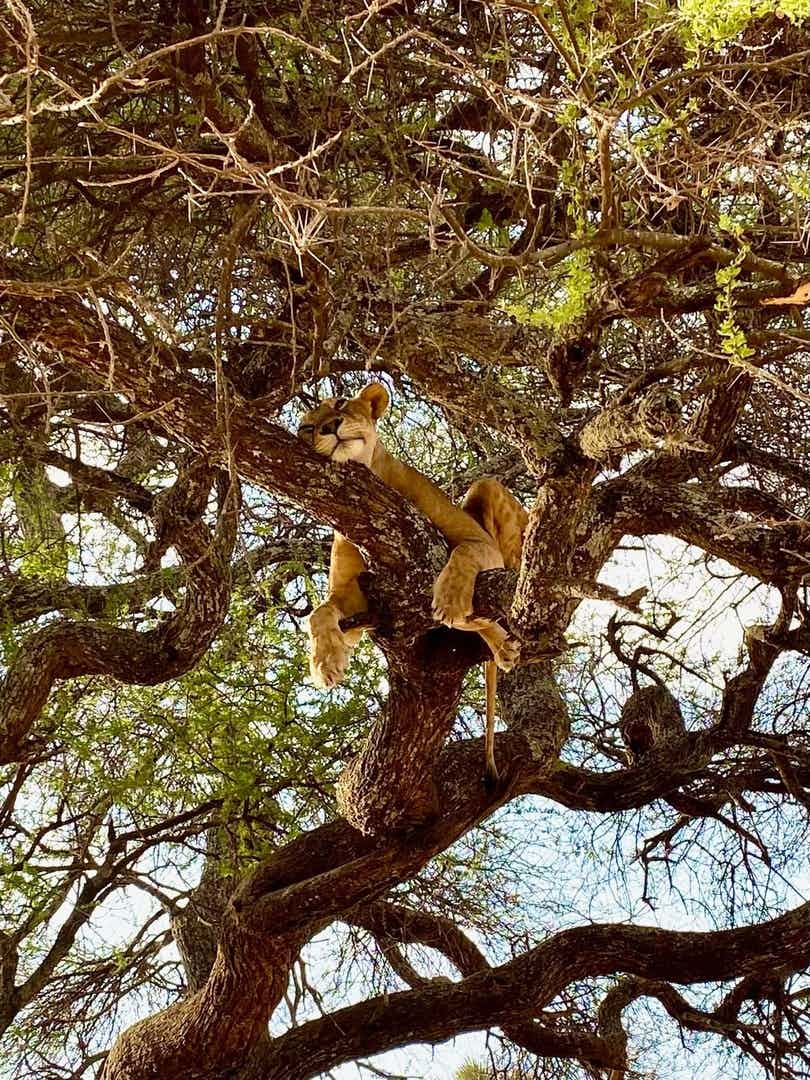
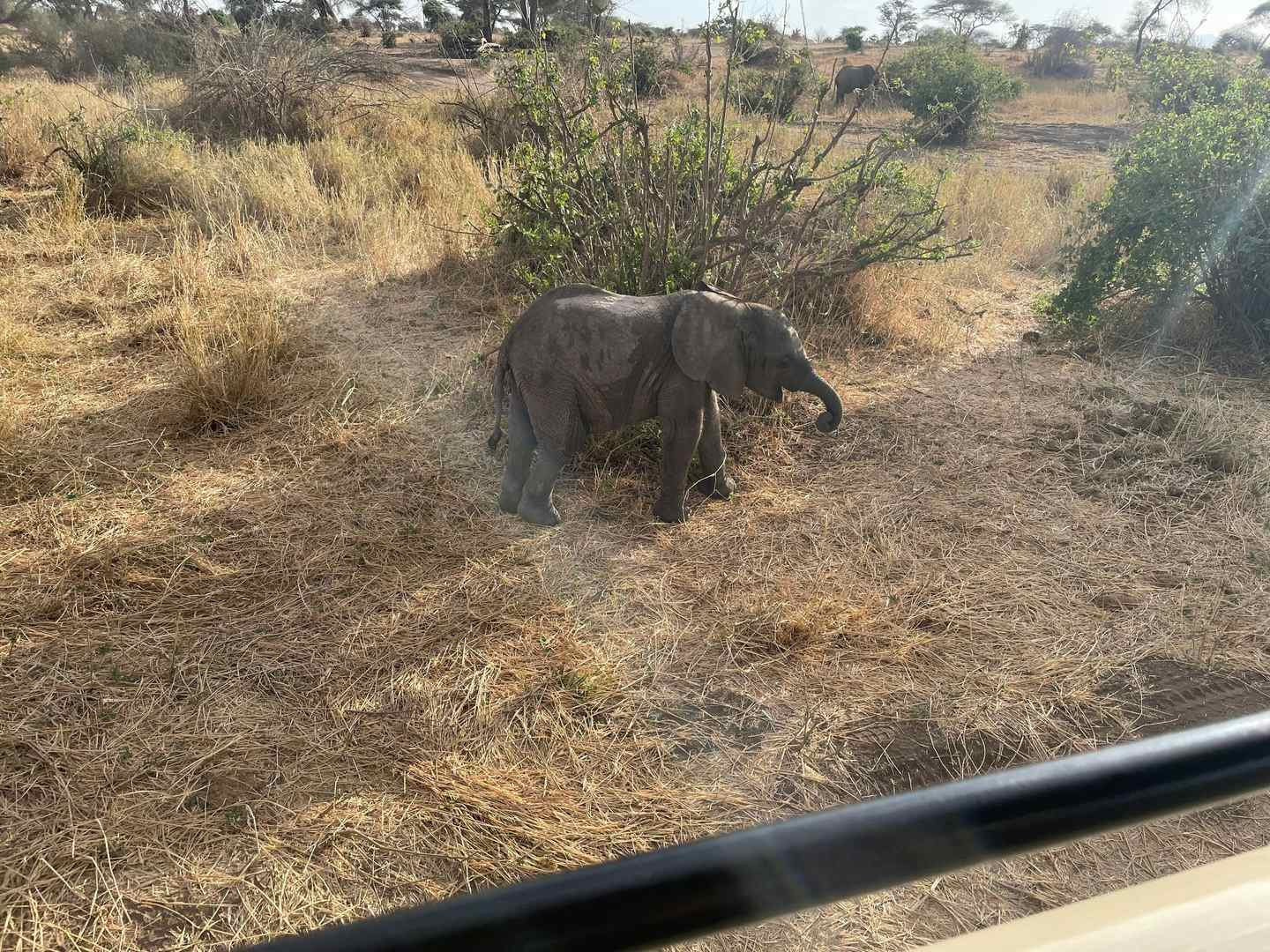
Such an amazing adventure. I’ve climbed Kili twice now and I forgot how tough it is. Anyone can make it though, you just need to dig deep! The safari was great too as we saw everything that you possibly can see. The team including the guides, porters and drivers were all so friendly and helpful, we couldn’t have done it without their enthusiasm and energy. I would highly recommend you take numerous small ($5 and $10…at least 10 of each) notes for tipping everyone.
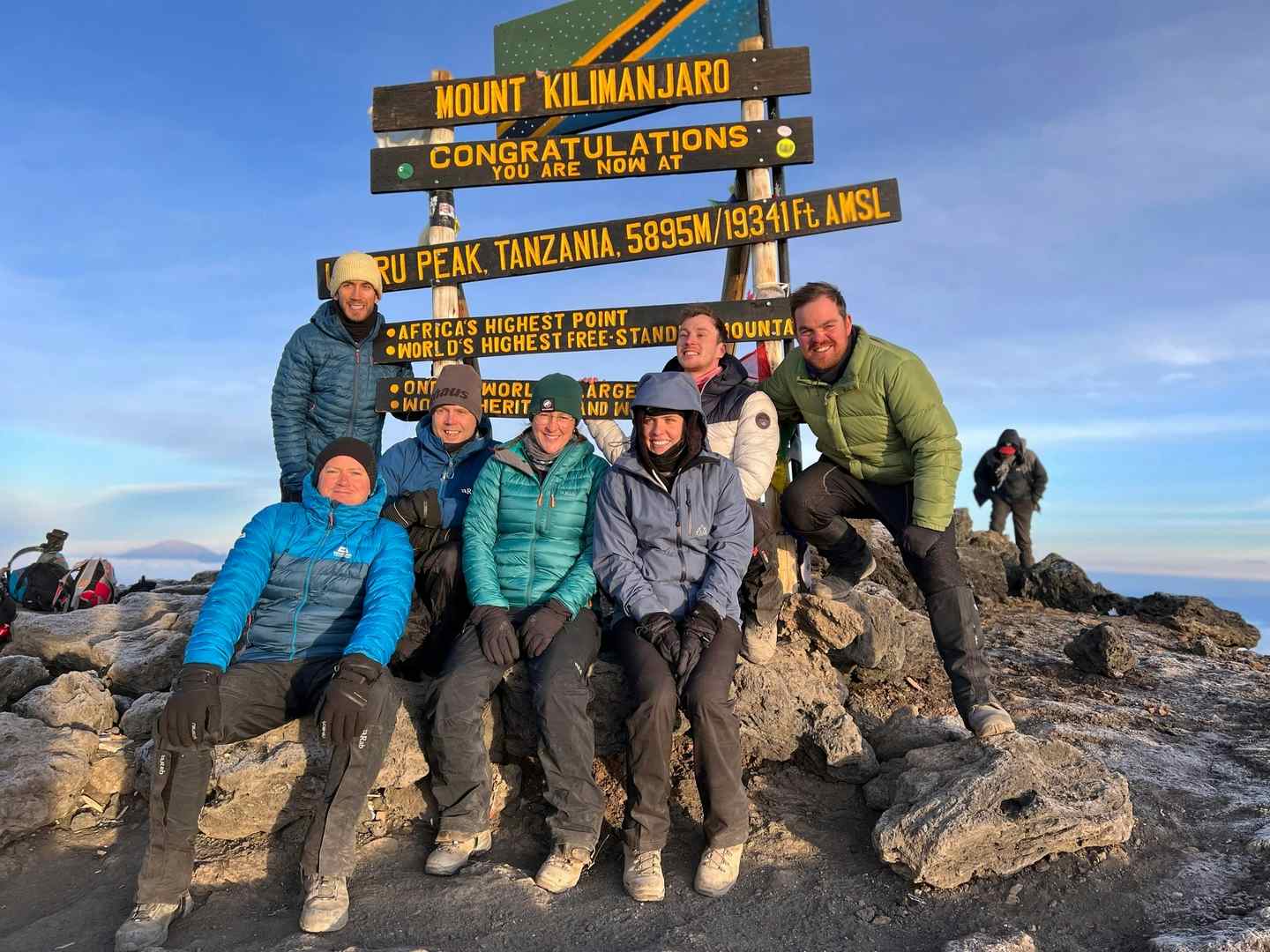
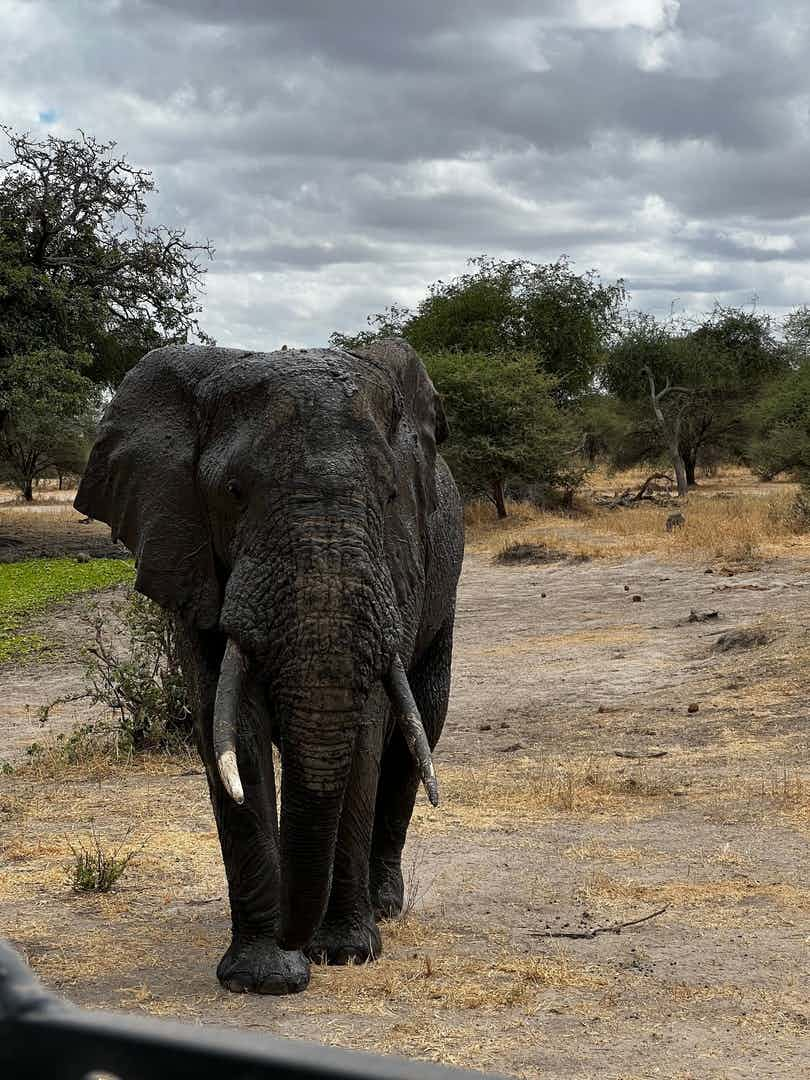
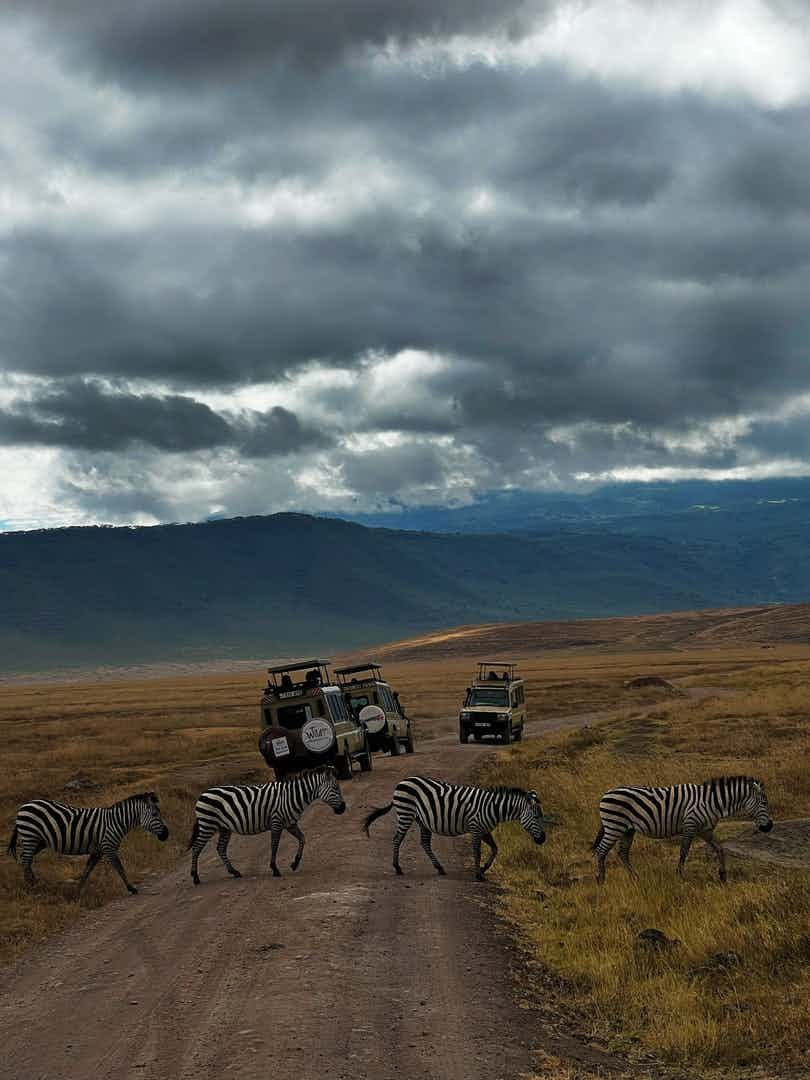
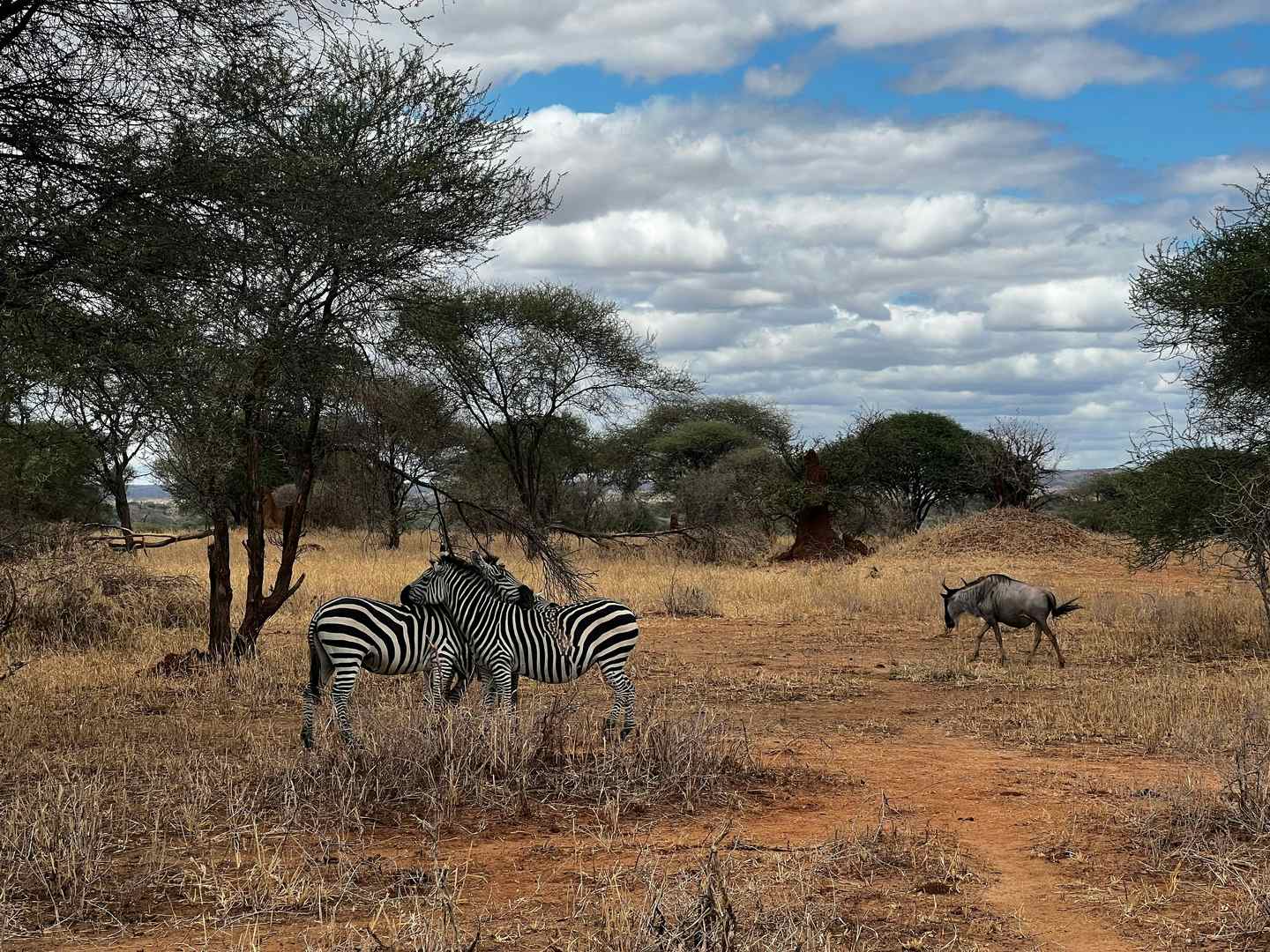
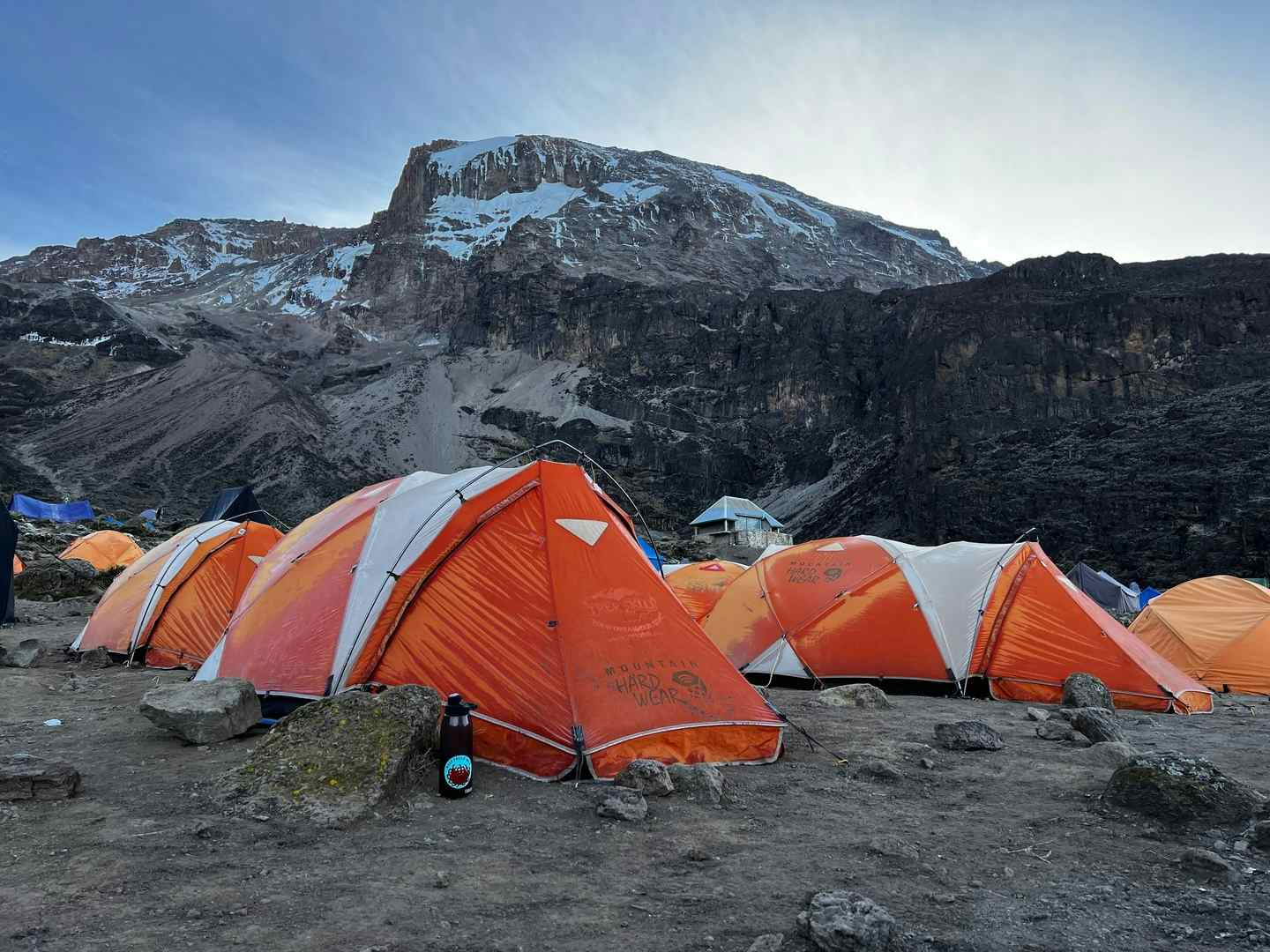
The only way to really describe this adventure is ‘once in a lifetime’. From airport pick up, to the hotels and of course the trek itself, everything was so well organised and smooth. We all reached the summit, and found the guides knowledge on dealing with altitude to be outstanding. The safari was incredible, and the amount of animals we saw was absolutely mindblowing
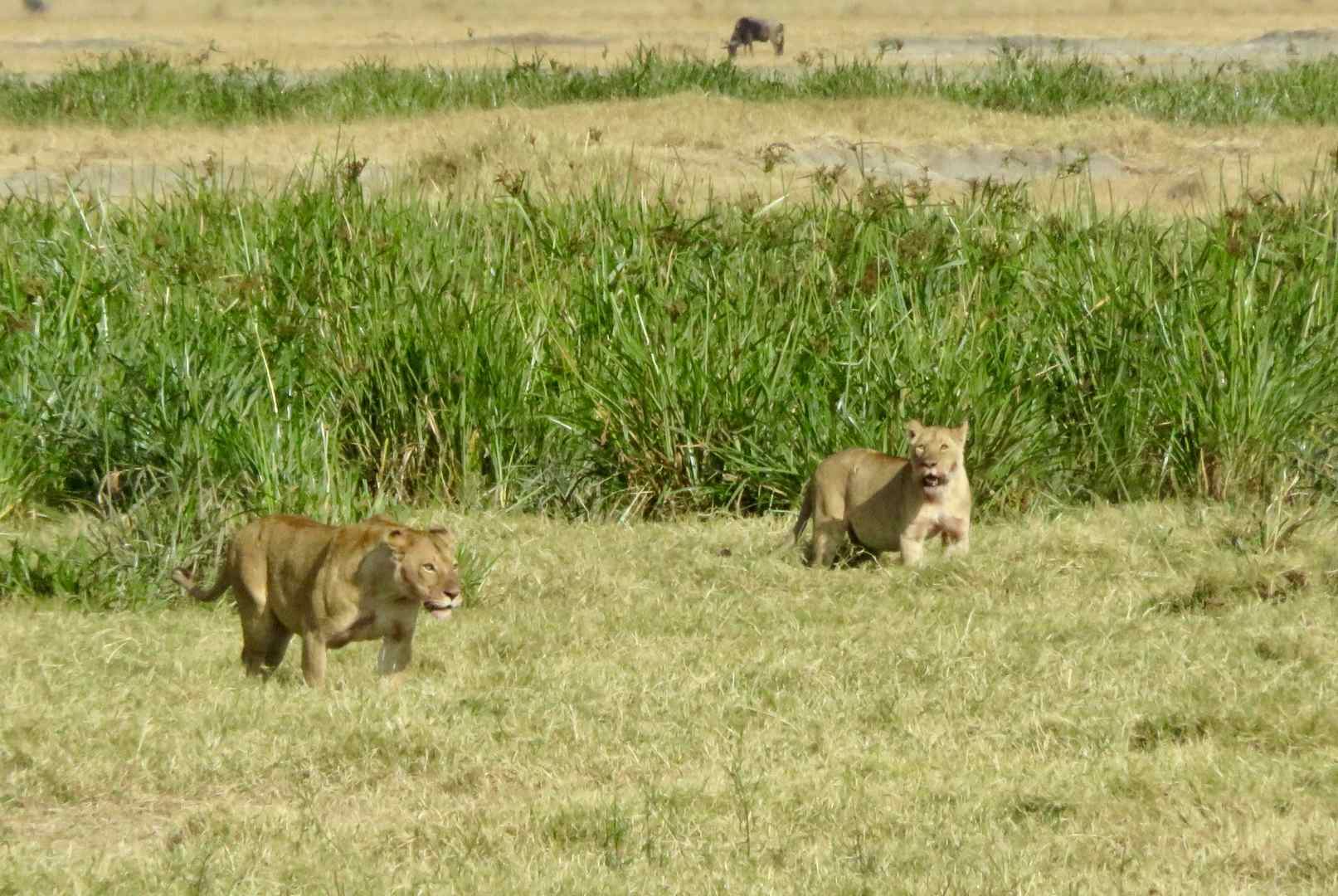
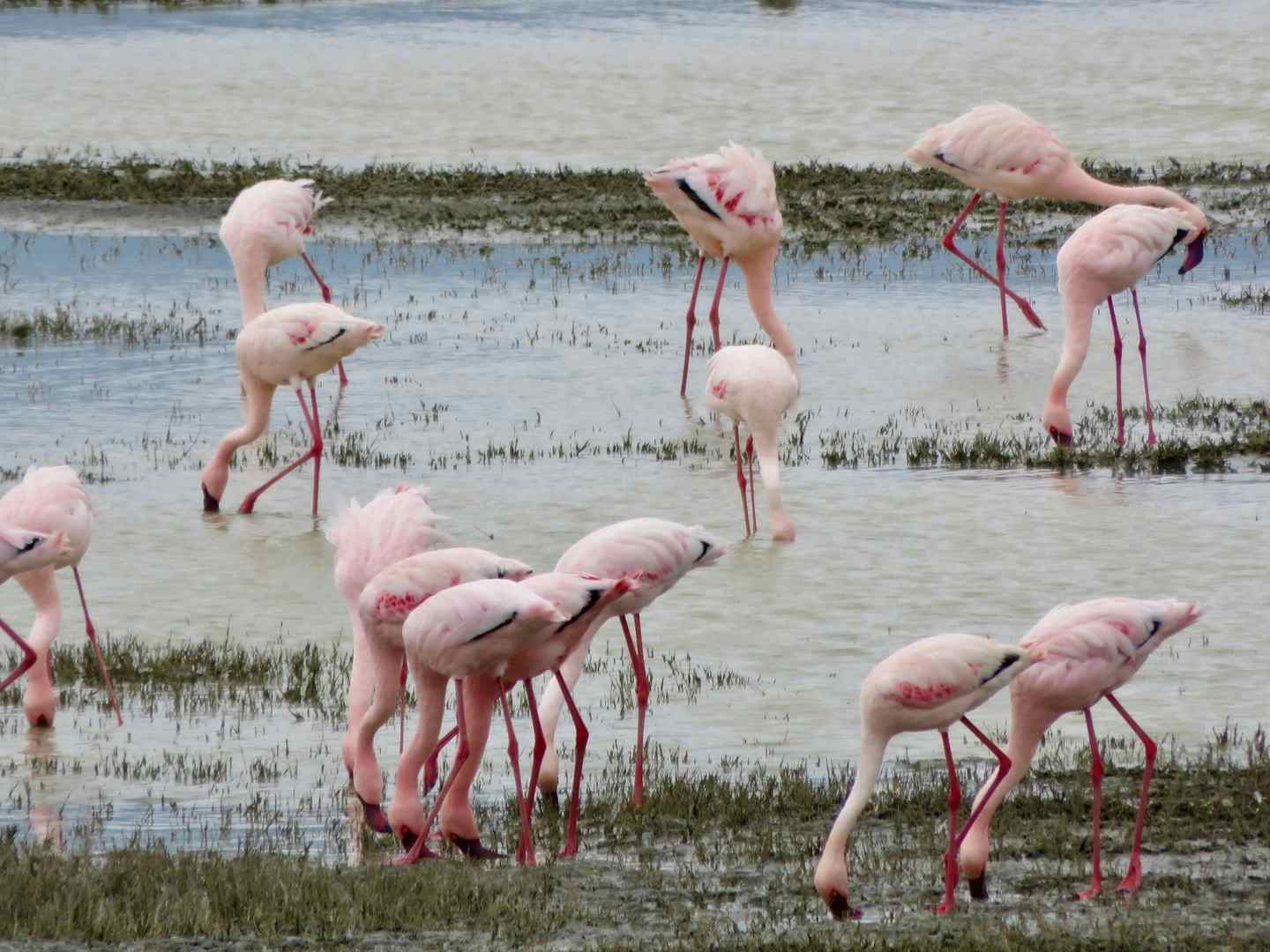
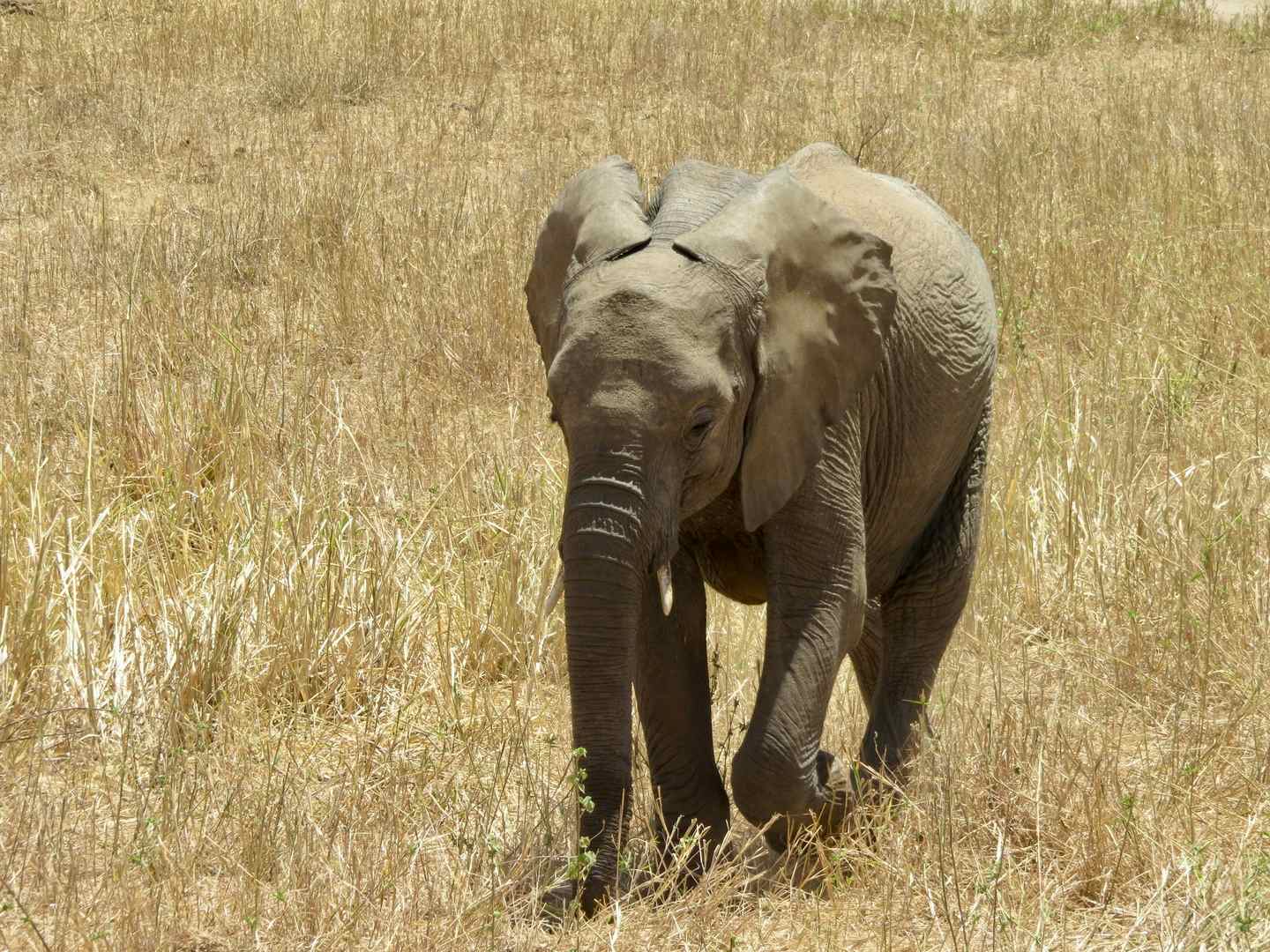
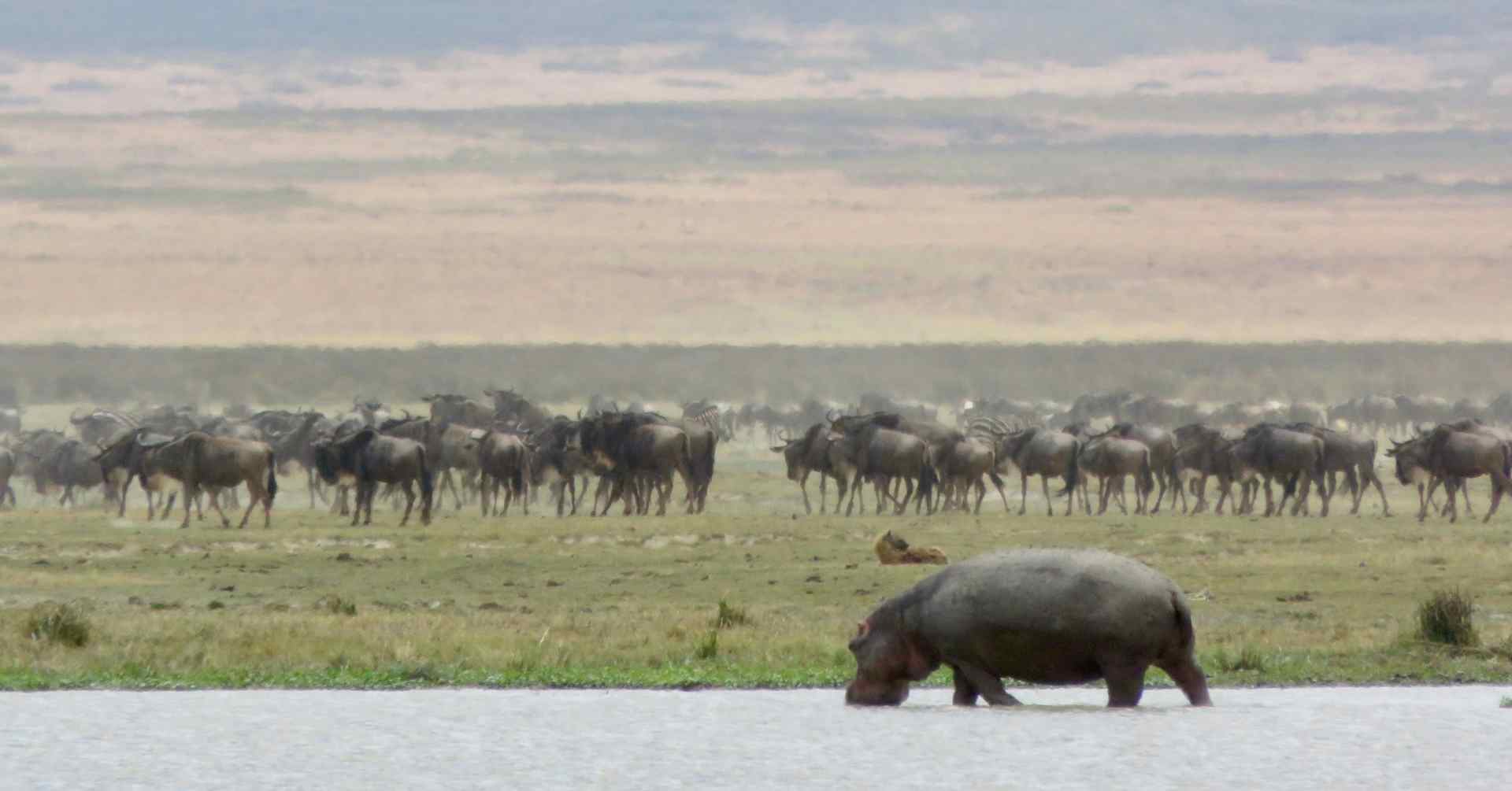
This was one unforgettable holiday from start to finish! Where do I begin? Tanzania is a wonderful country with such beautiful people, scenery and wildlife. The trek up Kilimanjaro - whilst not easy - was made all the more manageable due to a supportive team of porters and guides for whom nothing was too much trouble. I really must praise our guides, Stephen and Ferrida, for everything they did - they were EXCELLENT! Summit night was tough - be prepared to be sleep-deprived and to feel the effects of the high altitude - this is normal. However, it is all worth it for the truly magical views that await you on Uhuru Peak. The food provided throughout was delicious - a real credit to the cook who is essentially preparing meals on the side of a mountain. Top tips: bring LOTS of layers, a WARM down jacket, the warmest sleeping bag you can find, a hot water bottle (what a treat when it's cold on a night!), plenty of sunscreen and lip balm, painkillers, and make you drink LOTS! The safari part of the trip was also unforgettable. We were treated to so many sightings of animals in the wild across three days and three national parks. Our driver/guide - Josephad - was simply a wealth of knowledge on the wildlife and a real gentleman when it came to ensuring we were comfortable. If you're looking for the holiday of a lifetime, this is it!
Itinerary Activities
- 7 days guided trekking to the summit of Kilimanjaro via the Machame Route
- Afternoon safari in Lake Manyara National Park
- Full day safari in the Ngorongoro Crater
- Morning safari in Tarangire National Park
Guides
- Experienced, certified, local trekking guides
- Full support team on the trek
- Expert, local safari guides
Accommodation
- 6 nights camping along the trekking route
- 3 nights in a hotel in Moshi
- 2 nights in a countryside lodge near the Ngorongoro Crater
Meals
All your meals are provided for the duration of the trip. This includes:
- 11 filling breakfasts
- 10 picnic lunches
- 11 tasty dinners
Transfers
- Arrival transfer from Kilimanjaro Airport at any time on Day 1
- Departure transfer to Kilimanjaro Airport at any time on Day 12
- All transfers during the trip
Porterage
- Porters to carry your overnight luggage during the trek
- Porters to transport all the camping equipment (including a mess tent and toilet tent), food and water
Permits
- All permits, taxes and licenses
Our trips are hassle-free by design. We include all the activities and equipment, as well as many of the meals, so you can simply rock up with your rucksack and share the adventure with your new pals.
Travel to and from the trip
Our trips do not include flights, trains or other travel to the start point and back from the end point.
Tips
Tips are not included in the trip cost. These are, of course, entirely at your discretion but the norm in Tanzanian culture means there is an expectation to tip for good service. This particularly applies to climbing Kilimanjaro: while fair and sustainable wages are paid to all the support team, tipping culture is deeply ingrained and an important custom. Even if it may not be customary to you, it is of considerable significance to the people who will take care of you during your travels. After your climb, there will be a ‘tipping ceremony’ in which you’ll have the opportunity to show your gratitude to the team who have supported you along the way.
For the trek: we would suggest a minimum tip of $400 per guest in 2024. This complies with local guidelines to support the fair and ethical treatment of porters, cooks and mountain guides.
The tipping ceremony is a celebratory affair, and will take place after you share a meal with your support team following the climb. Your host will provide guidance on the appropriate split of the money between the team members. Each individual will be presented with their portion of the tip in a sealed envelope, and in turn you’ll be presented with your Kilimanjaro summit certificate.
For the safari: $70 per vehicle, per day for your driver (so $210 for the safari in total, split between the total number of people in the vehicle).
In Tanzania, many banks and businesses refuse notes that are old or damaged in any way, so tips with bills that are no more than 15 years old and in good condition are gratefully received.
Travel insurance
Travel insurance is compulsory for all of our adventures and you are required to provide your policy information before departing. Your insurance should include adequate protection for overseas medical treatment, evacuation/repatriation, your baggage and equipment and the specific activities involved on your adventure. We also strongly recommend it includes cancellation and curtailment insurance, should you be unable to join your trip for specific reasons such as illness. Our recommended travel insurance provider is Campbell Irvine, as their insurance offers all of the above.
Visas
You are responsible for obtaining any required visas for this trip. Please check with your nearest embassy or consulate for up-to-date advice. Information about visas can also be found on the Tanzanian Immigration website.
Personal Expenses
You know your own spending habits best, so please budget an appropriate amount for things like optional meals and drinks, shopping, optional activities, and laundry.
Mountain environments can be unpredictable. A layering system works best so that you can put on and remove items to adjust your temperature.
What's included?
- Tent
- Foam Mattress
What can I hire?
- Walking poles
- Headtorch (you will need to bring your own AAA batteries)
- Sleeping bag
- Day pack (with or without waterproof covers)
- Duffel bag
- Nalgene water bottle/water bladder
- A range of clothing (fleece pants, waterproof pants, walking trousers, windbreaker/ski trousers, waterproof jacket, light fleece jacket, heavy fleece jacket, down/ski jacket, hat, thermal top & bottoms, scarf, sunglasses, thin glove liners, thick ski gloves, hiking boots, gaiters, poncho, socks). Pricing ranges from $5-$50 per item for the whole trip. Please request any items you would like to hire with your host via your booking prior to departure for confirmation of pricing and availability.
What do I need to bring?
CLOTHING
- Waterproof jacket (good quality, breathable with hood)
- Weather rated insulated jacket (synthetic or down, with hood)
- Waterproof trousers (breathable)
- Hiking boots (warm, waterproof, broken-in with spare laces)
- Lightweight trainers/sneakers (to wear at camp and on safari)
- Fleece or soft-shell jacket
- Long sleeved tops (lightweight, moisture-wicking fabric)
- Short sleeved t-shirts (lightweight, moisture-wicking fabric)
- Hiking trousers
- Fleece/Thermal trousers
- Shorts
- Clothing to wear on safari (avoid blue and black coloured garments, as these attract biting tsetse flies)
- Knitted beanie hat
- Buff/Balaclava/Bandana (for face/neck coverage)
- Warm gloves (waterproof recommended)
- Something to sleep in (warm layers for camping at altitude)
- Underwear (moisture-wicking fabric recommended)
- Sports bra
- Socks (thick - wool or synthetic)
- Sock liners (tight and thin - worn under socks to prevent blisters - synthetic)
OTHER
- Duffel bag (for porters to carry your clothes and equipment-see related FAQ for guidance on weight)
- Backpack to carry your personal gear during the day (25-35 litres)
- Backpack cover (waterproof)
- Sleeping bag (warm, four season rated)
- Trekking poles (highly recommended)
- Waterproof gaiters / trail gaiters (highly recommended to prevent loose gravel and sand)
- Water bottle (Nalgene recommended) AND a water bladder (CamelBak type) - must have 2-3 litres combined; please note that disposable plastic bottles are not allowed on the mountain due to National Park regulations
- Headtorch with extra batteries
- Sun Protection (Sunglasses, Sun hat/cap, Sunscreen - SPF 35+ recommended))
- Lip balm
- Hand Gel
- Mosquito repellent (for Moshi and on Safari - not usually needed on the mountain)
- Trip receipt
- Mobile charger
- Universal plug adaptor
- Personal medication and first aid kit
- Earplugs
- Power bank
- Book/Kindle/playing cards, for downtime
- Passports (and visas)
- Travel insurance documents
OPTIONAL
- Sleeping bag liner (for added warmth - optional)
- Hot water bottle for the night (optional)
- Liner gloves (thin, synthetic - worn under gloves for added warmth - optional)
- Poncho (during rainy season - optional)
- Towel (lightweight, quick-dry - optional)
- Pee bottle (to avoid leaving tent at night - highly recommended)
- Stuff sacks or lightweight dry bags (various sizes, to keep gear dry and separate - highly recommended)
- Swimwear (there is a pool at the accommodation in Moshi - optional)
- Extra water purification tablets (water will be purified by your trek team so this is optional)
- Extra Energy bars and snacks - read our article on Best Hiking Snacks
Extra night in Moshi (single)
Payable Before Departure
Extra night in Moshi (single)
… Per night
Extra night in Moshi (twin / double)
Payable Before Departure
Extra night in Moshi (twin / double)
… Per night
Optional Private Room & Tent Upgrade
Payable Before Departure
Optional Private Room & Tent Upgrade
…
Private airport transfer - Kilimanjaro to Moshi - each way
Payable Before Departure
Private airport transfer - Kilimanjaro to Moshi - each way
…
We partner with the World Land Trust to ensure this trip achieves Net-Zero emissions. We also support their Buy an Acre programme, helping local communities to buy and protect natural habitats in perpetuity.
What's the number?
It works out on average at 504kg of CO2 emissions per person, including all local transport, accommodation, food, activities, guides, staff and office operations.
The only thing it doesn’t include right now is flights and travel to the destination. We do make an overall estimate across all our customers separately, but as we don’t book flights, have customers from all corners of the world, and no way of reliably knowing their travel plans, we simply can’t include an individual number in the figure on display here. We’ve got a goal to fix that, so that when you book, there is a way to measure and mitigate the carbon emitted by your flight too.
But what does the number mean?
Yep, hard to picture eh? To give you an idea:
- Driving 1000 miles/1609km would be approximately 281kg of CO2 in an average car (or 140.5kg per person, if there were two of you in it).
- A return economy class flight between London and New York would be approximately 1619kg (1.66 tonnes) per person.
- 10 trees in a temperate forest are estimated to remove approximately 250kg of CO2 from the air in a period of 5-10 years.
What are we doing about it?
Our trips are relatively low-carbon by design, and we're working with all our hosts to develop long term carbon reduction plans. We partner with the World Land Trust to ensure this trip achieves Net-Zero emissions. We also support their Buy an Acre programme, helping local communities to buy and protect natural habitats in perpetuity, ensuring the protection of the reserve and its wildlife.
Want to know more?
Amazingly, no international travel company has ever publicly published their carbon measurements before, as far as we know. We believe that must change, quickly. So we’re openly sharing the method we used in the hope that other companies will be able to more easily follow suit and build on what we've done so far. You'll find it all here.
Much Better Adventures offers three routes on Kilimanjaro. Depending on your preferences you can choose a route that is best suited to you; whether that's escaping the crowds on the quieter sides of the mountain, spending more time in Kilimanjaro's forest and moorland environments for best wildlife spotting, and of course finding a trip that suits the time and budget you have available.
Rongai Route (7 days on the mountain): A much quieter and more remote trek away from the crowds. Approaching from the north, your climb starts on Kilimanjaro's second peak, Mawenzi, before crossing a high saddle onto the main peak, Kibo, where you reach the same high point of the other routes, Uhuru Peak. The days are generally considered more moderate, with gradual climbs and avoiding the Baranco Wall scramble. However, the challenges of altitude and a long summit day remain. To reach the start of the Rongai Route involves a 3-4 hour drive.
Lemosho Route (8 days on the mountain): Our longest route with the highest success rate, if you have the extra day available this is probably the best all-round route for most. The Lemosho Route starts to the west of Kilimanjaro and enjoys three days of relatively quiet trails before joining the Machame Route at Lava Tower. These first days are through temperate forest, with good potential for wildlife spotting, before climbing up and across the Shira Plateau. With the extra day on the mountain, it is a more complete experience, seeing all sides and zones of the mountain, as well as allowing more time to adjust to the altitude – it is the route with the highest success rate and growing in popularity because of this.
Machame Route (7 days on the mountain): Considered to be very scenic, the Machame Route strikes a good balance between a safe acclimatisation profile and an efficient itinerary – the Machame Park Gate is only a 45-minute drive from Moshi, so it's the quickest to get to. As with Rongai and Lemosho, you have a different descent route for your way down the mountain.
See our guide to the Best Routes on Kilimanjaro for the full lowdown.
We do everything we can to give you the best chance of summiting Kilimanjaro successfully and safely. From the routes we choose, to the care and food provided on the mountain, our local host is very well placed to get you to the top! We have an average summit success rate of around 95% for all routes!
Over the three days on safari, your guides will try their best to find the perfect spot to see the local wildlife in their natural habitat. The animals you may see include:
- Lions
- Cheetahs
- Giraffes
- Elephants
- Water buffalos
- Rhinos
- Hippos
- Monkeys
- Flamingos, and a wealth of other birds
While it cannot be guaranteed that all of the above will be spotted, your guide's experience will increase your chances tremendously.
The guides have been extensively trained at the Mweka Wildlife Centre and are familiar with the routes, terrain and conditions. With over 10 years' experience, they have also been to the summit more than 100 times. Additionally, all of the guides are certified First Aid Responders and CPR trained.
For every customer, you'll be accompanied by approximately 4 supporting crew members on the trekking part of your trip. For example, a group of 8 is likely to be accompanied by 33 support crew. This is broken down as one lead guide, three assistant guides, one cook/chef, one waiter, one pilot (toilet porter), one tent crew, four summit porters (to carry day packs on summit day) and 21 regular porters who carry any additional equipment.
Your host prides themselves on treating their porters and mountain crew as part of their extended family, and advocate for fair pay and treatment of porters through membership of key local associations, Kilimanjaro Porter's Association (KPA) and the Tanzania Tour Guide Association (TTGA). These associations work with the Kilimanjaro National Park Authority (KINAPA) to set minimum pay rates and regulations that all operators must abide by within the national park. Your host is committed to meeting or exceeding these expectations, as well as providing further benefits such as training opportunities so porters can progress on to roles of cooks or guides as they gain experience on the mountain. As a baseline MBA commit to ensuring:
· Porters are paid a minimum of 25,000Tsh per day (US $1 = approx 2,000 Tsh)
· Salaries must be paid within two days of the descent of ALL climbs
· A transparent tipping procedure, so porters receive the full tip amount intended for them
· Loads carried by the porter should not exceed 20kg for the company (excluding porter's personal kit)
· Porters are provided with three meals per day
· Porters have proper shelter conditions and sleeping equipment
· Porters are outfitted with proper gear
· Sick or injured porters are properly cared for
Tips are not included in the trip cost. These are, of course, entirely at your discretion but the norm in Tanzanian culture means there is an expectation to tip for good service. This particularly applies to climbing Kilimanjaro, where tipping culture is deeply ingrained and an important custom. Even if it may not be customary to you, it is of considerable significance to the people who will take care of you during your travels. After your climb, there will be a ‘tipping ceremony’ in which you’ll have the opportunity to show your gratitude to the team who have supported you along the way.
For the trek: we would suggest a minimum tip of $350 per guest in 2023 and $400 per guest in 2024. This complies with local guidelines to support the fair and ethical treatment of porters, cooks and mountain guides.
The tipping ceremony is a celebratory affair, and will take place after you share a meal with your support team following the climb. Your host will provide guidance on the appropriate split of the money between the team members. Each individual will be presented with their portion of the tip in a sealed envelope, and in turn you’ll be presented with your Kilimanjaro summit certificate.
For the safari: $70 per vehicle, per day for your driver (so $210 for the safari in total, split between the total number of people in the vehicle).
In Tanzania, many banks and businesses refuse notes that are old or damaged in any way, so tips with bills that are no more than 15 years old and in good condition are gratefully received.
There is a limit to the weight that the porters can carry and your main kitbag must be no heavier than 15kg. Your sleeping bag can be packed separately, so this doesn’t need to be included in this weight limit. We would ask that you only bring essential items on the mountain to minimise the loads that the porters carry.
You will also need to have a daypack to hold your basic kit for each day of walking. We recommend that this is not over 6kg, and the lighter the better. Please bear in mind that you will need to carry a significant amount of water, so this will add to the weight of your daypack.
Extra items not required on the mountain can be left in Moshi.
You can securely leave any excess luggage at your host's base before you set off on the trek and again before you go on safari.
If you have any hiking gear that’s in good condition but you don’t need after your trek, donations to your team of porters will be gratefully received. Talk to your host if you’d like donate any of your gear.
Your team of porters will provide you with boiled and filtered water throughout the trek. Drinking water will also be provided whilst you are on safari.
If you need to be taken down to a lower altitude as a matter of urgency, there are two options in place. In most instances, steel-framed, mobile stretchers can be pushed by porters to descend quickly. Most people feel immediate relief at lower altitudes where you will be evaluated and if the guides determine you are well enough, you will wait for your group at a lower camp or be taken to the gate for transfer to Moshi for medical treatment (if necessary). For more serious concerns, through a partnership with Kilimanjaro SAR, emergency helicopters can be deployed within 5 minutes for evacuation, complete with in-flight medical treatment. If you require further medical attention upon landing, you will be taken to their modern, private High Altitude Medical Clinic, designed to tackle Acute Mountain Sickness (AMS). Please ensure that you have appropriate insurance coverage for trekking with evacuation coverage for up to 6,000 metres above sea level.
Yes! Oxygen cylinders are carried on all of our climbs for emergency use only. In addition to this, our guides perform daily health and pulse oxymeter checks, which measure both your heart rate and the percentage of oxygen in your blood. Ensuring and monitoring your health and safety at all altitudes is your host's top priority, and all guides are well-trained to identify the signs of AMS and act accordingly.
Yes! Just mention this in the enquiry form when you book or message your host after you have booked and they can help you to arrange this. Prices are shown above in the Optional Extras section.
A plastic bag ban went into effect across Tanzania from 1st June 2019 and the use, manufacture or importation of plastic bags, including garbage bags and shopping bags, is now illegal and convicted offenders, including tourists, can face heavy fines, imprisonment for up to two years, or both. Visitors are advised to avoid packing any plastic bags in their suitcases or hand luggage before flying to Tanzania. Items purchased at the airport before boarding the aircraft should also be removed from plastic bags. Please check your hand luggage before disembarking at entry points and any plastic bags should be left on the plane. Similarly, the transparent zip-lock plastic bags that some airlines require passengers to use for keeping liquids, cosmetics, toiletries etc are also not permitted and should be removed and left on the plane before disembarking.
You are responsible for obtaining any required visas for this trip. Please check with your nearest embassy or consulate for up-to-date advice. Information about visas can also be found on the Tanzanian Immigration website.
If you are eligible for an e-visa and are required to provide the address of your accommodation, please use the following details:
Weru Weru River Lodge
Address: Mailisita, Moshi-Kilimanjaro Tanzania
Email: [email protected]
Phone: +255 788 829 777
PO Box 855
This trip reaches elevations above 4500m, where the risks associated with Altitude Sickness (AMS) are higher, and where more serious conditions like HAPE (High Altitude Pulmonary Edema) and HACE (High Altitude Cerebral Edema) can occur.
Previous high-altitude experience doesn’t guarantee the same reaction every time, but it can be a helpful indicator. It gives you insight into how your body might respond, helps you recognise symptoms early, and prepares you mentally and physically for the demands of high-altitude trekking.
Your guide is trained to manage altitude risk by carefully managing the rate of ascent, monitoring group wellbeing, and taking action if anyone becomes unwell.
Before travelling, think about your own physical condition and consult a medical professional if you have concerns – especially if you have underlying health issues. If possible, arriving a day or two early at altitude is a great way to help your body adjust.
Your travel insurance must cover the maximum altitude reached on this trip and include emergency evacuation.
This trip takes place in environments where wild animals are present in their natural environment, where protections and controls on their movement may be limited or non-existent. Some species may be dangerous, venomous, or unpredictable. Sightings are a privilege, but safety is key. Always follow your guide’s instructions and any posted signage.
We recommend considering your comfort around wildlife and discussing any concerns with your host before travel, particularly if you have allergies, phobias, or related health conditions.
Sure can! Over 70% of our travellers travel solo, it’s a great way to meet like-minded people.
Our team of Adventure Hunters co-create exclusive adventures which are run by highly vetted, specialist hosts. The trip is run by our trusted host partner in the destination. We only work with independent, local, in-destination experts who know the very best places to explore and how to stay safe. Read more information about the local teams we partner with. You’ll be introduced to the host straight after making a booking via the Much Better Adventures platform.
Much Better Adventures refer to the UK Government’s official travel advice when designing trips and monitoring trip operations. We recommend that all customers are familiar with the practical information provided on the Government’s FCDO website, where current travel advice can be found by searching for the applicable destination(s).
For customers joining this trip from other international destinations – please also read the official travel advice applicable to your country of residence/origin, as this may differ.
We recommend checking out the country-specific information and also talking to a travel nurse.
We automatically convert prices from the local currency that a host receives to your chosen currency. We update our exchange rates on a daily basis so this does mean that prices displayed on the site are subject to currency fluctuations, which is why you may see them change over time.
If you wish to change the currency you pay in, head to the bottom of the page.
All of our group adventures are specially designed for adults to enjoy as we want these adventures to bring together outdoorsy people who are truly like-minded. You must be over 18 to join one of our trips.
You're always in good company on one of our adventures.
Our trips are typically made up of a mixture of solo travellers and small groups of 2 or 3 friends, with most in their 30s-50s.
Our sociable adventures are solo-friendly by design and naturally attract outdoorsy people with a shared mindset; a love for adventure, a desire to push themselves and meet awesome, like-minded people along the way.
It’s this camaraderie that has so often turned a great adventure into a life-changing one.
Don't just take our word for it:
- 95% of people rate the group dynamics on our trips 5/5
- 90% of people recommend joining a trip to make new friends
- 75% of people have met people on our trips that they would now consider friends
See here for more info about the Much Better Adventures tribe.
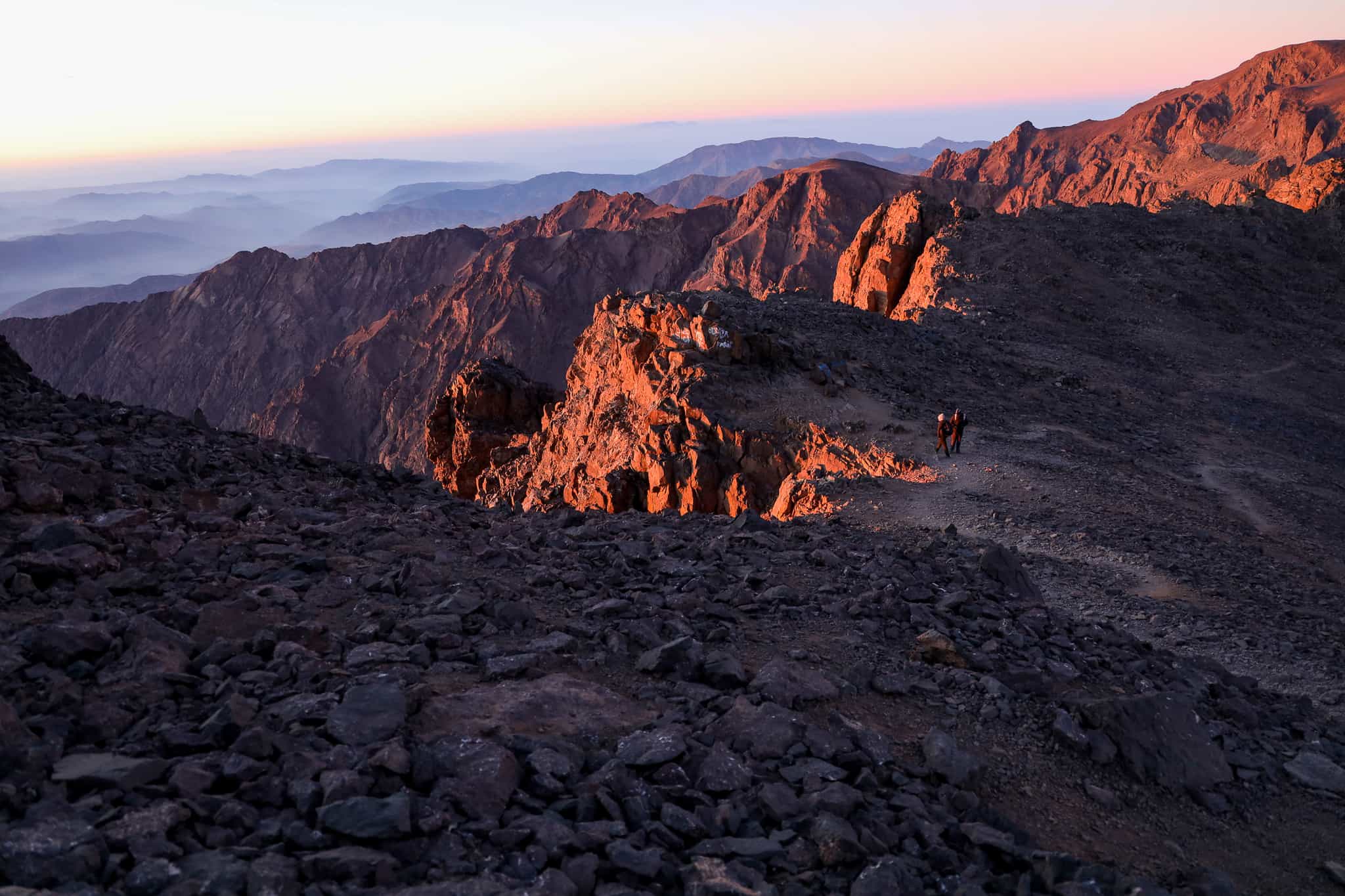
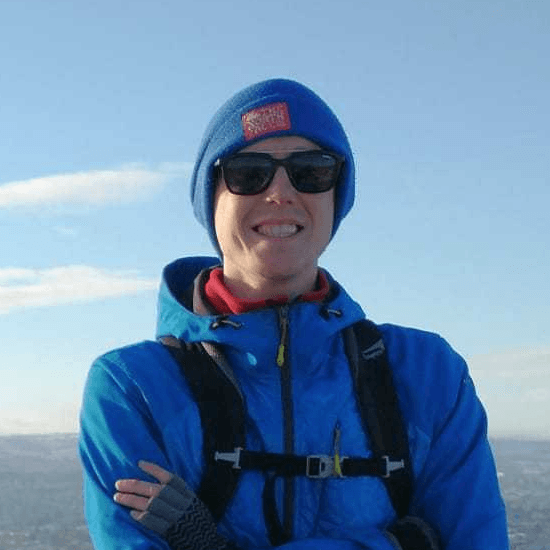
Need help finding flights?
From logistics and how to get there, to fitness, group dynamic and trip difficulty, Rory and his team of friendly experts are on hand to help.
We've got your back
Guaranteed to run
All Much Better Adventures trips are now guaranteed to run. Once you’ve booked your spot you can immediately make your travel arrangements, no uncertainty, no hanging about (excludes 'request to book' departures). Full details
Flexible payments
Secure your spot with the minimum deposit and pay off the remaining balance in as many instalments as you like, with no interest or fees. Full details
Happiness Guarantee
We’re so confident you’ll have an amazing time we’ll put our money on it. Full details
Full financial protection
To give you complete peace of mind Much Better Adventures is backed by ABTOT, ABTA and ATOL memberships. Full details
Tried & Trusted
Much Better Adventures is rated ‘Excellent’ on Trustpilot with over 1000 verified trip reviews averaging 4.8/5.
Connect before you go
You'll be invited to join a WhatsApp group to get to know each other before your big adventure together. Full details
DEPARTURE DATES
Monday 4th August 2025
to Friday 15th August 2025
Hurry; only 2 spaces left
